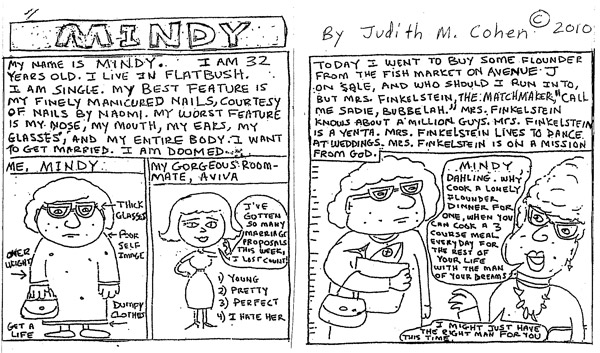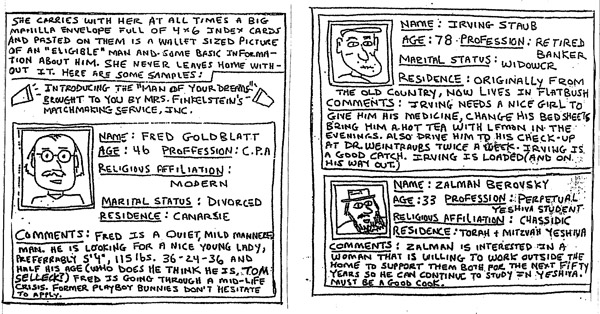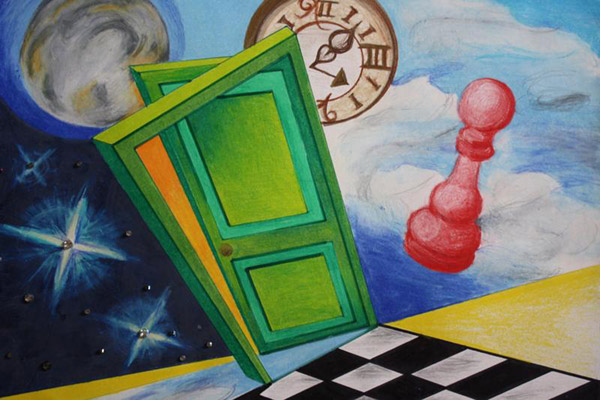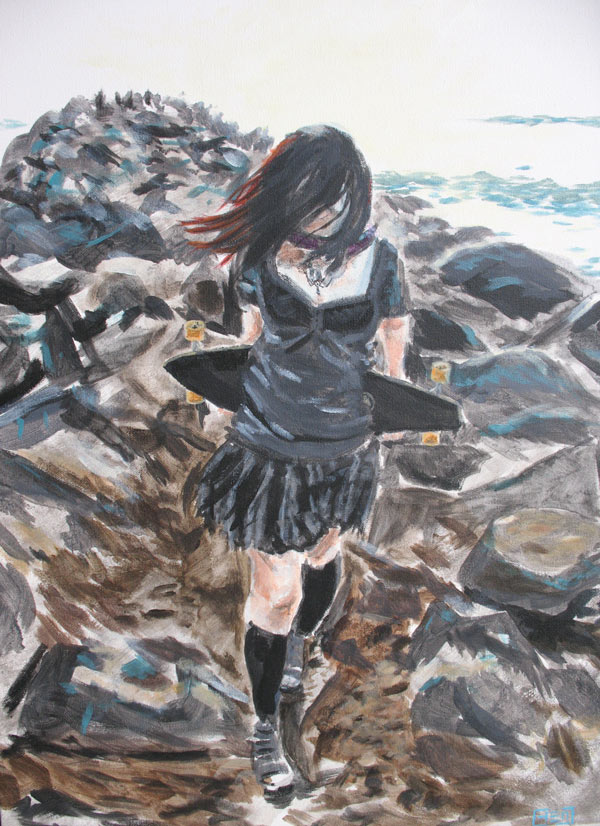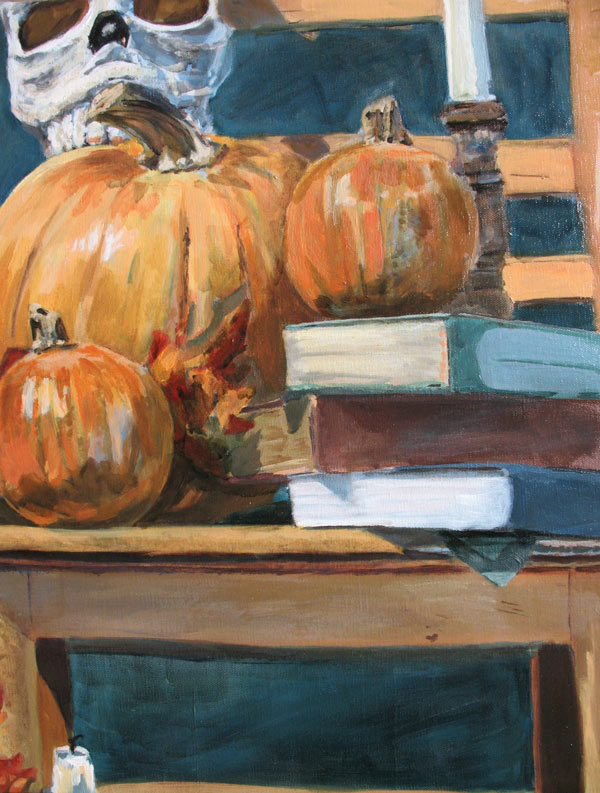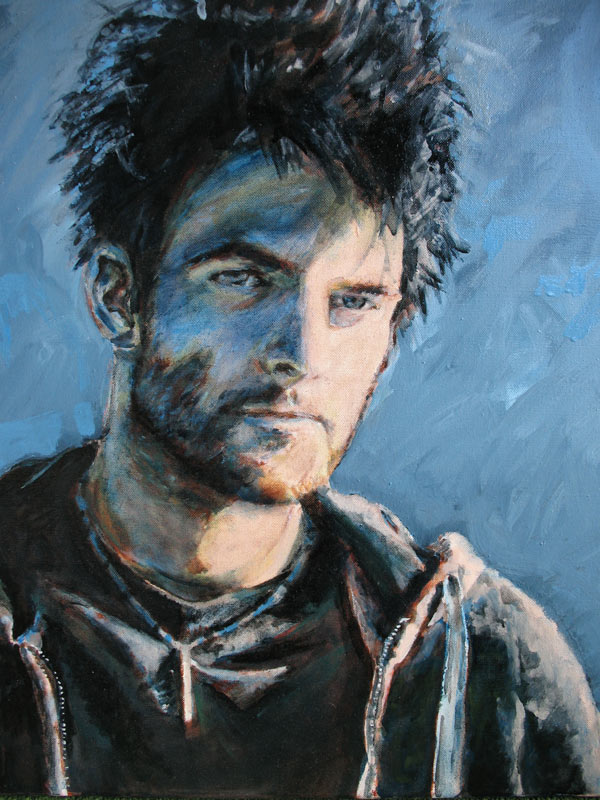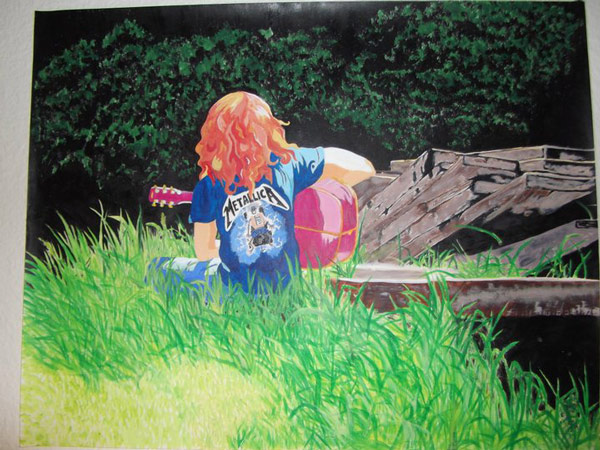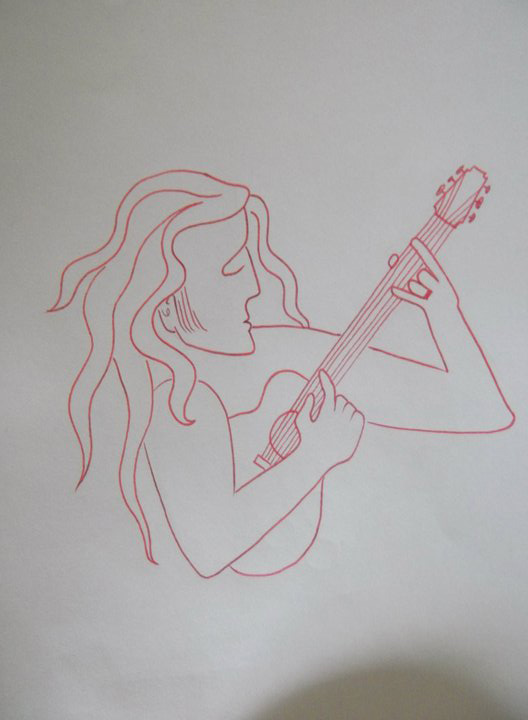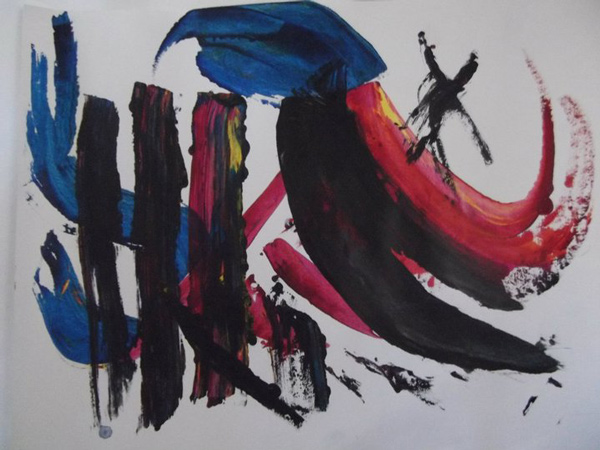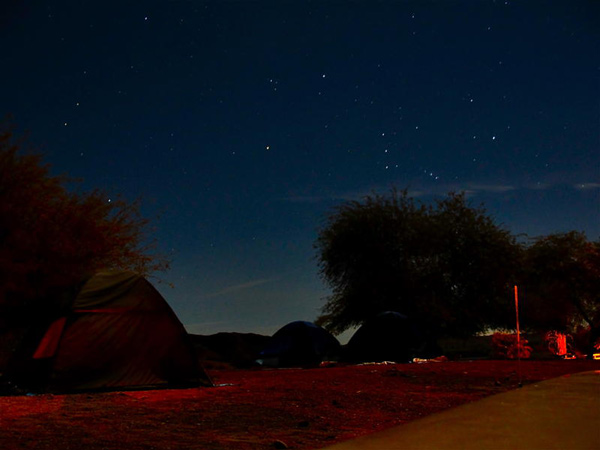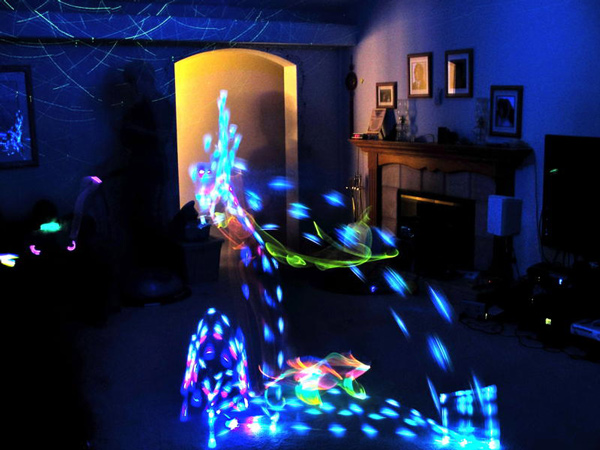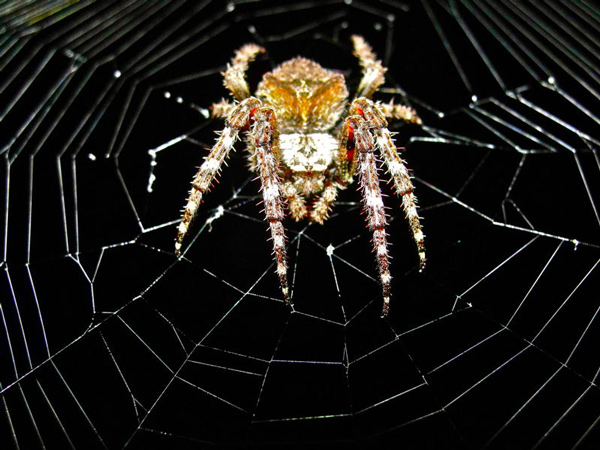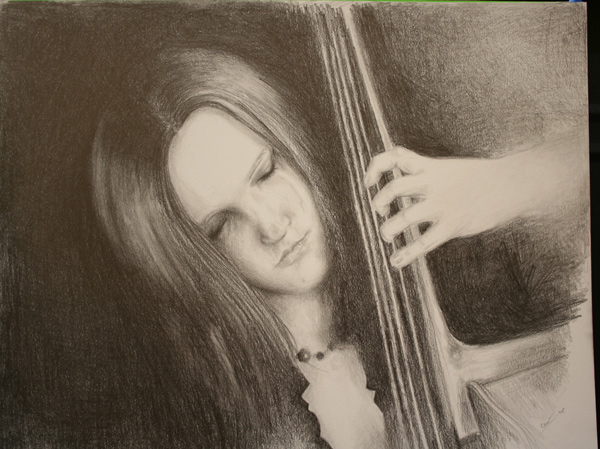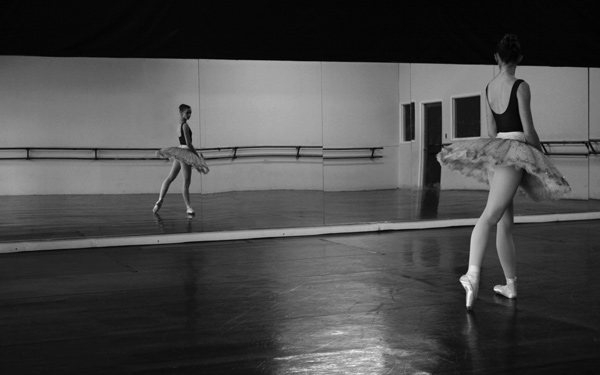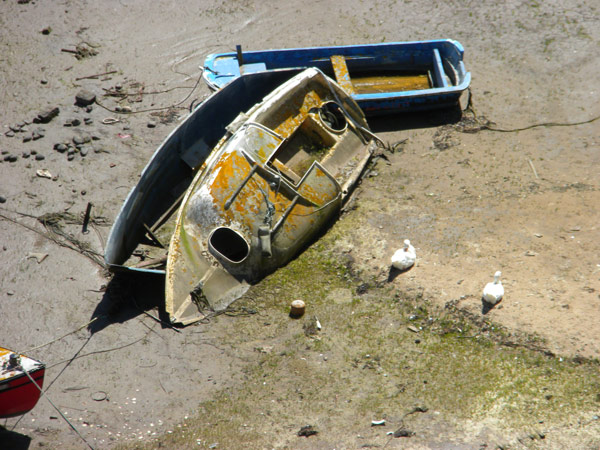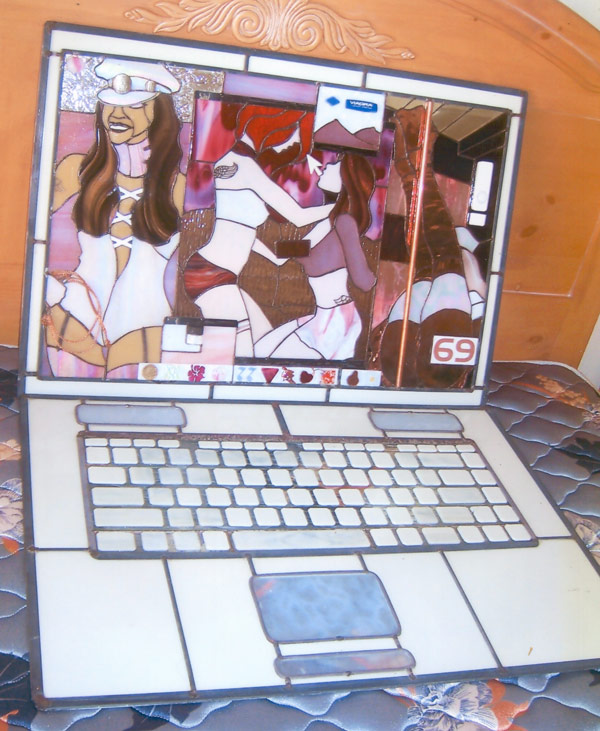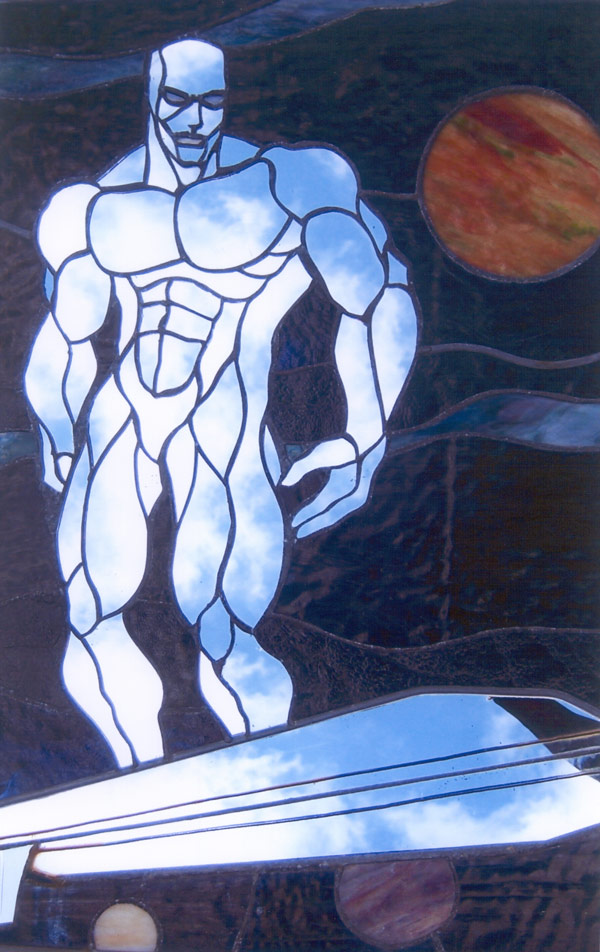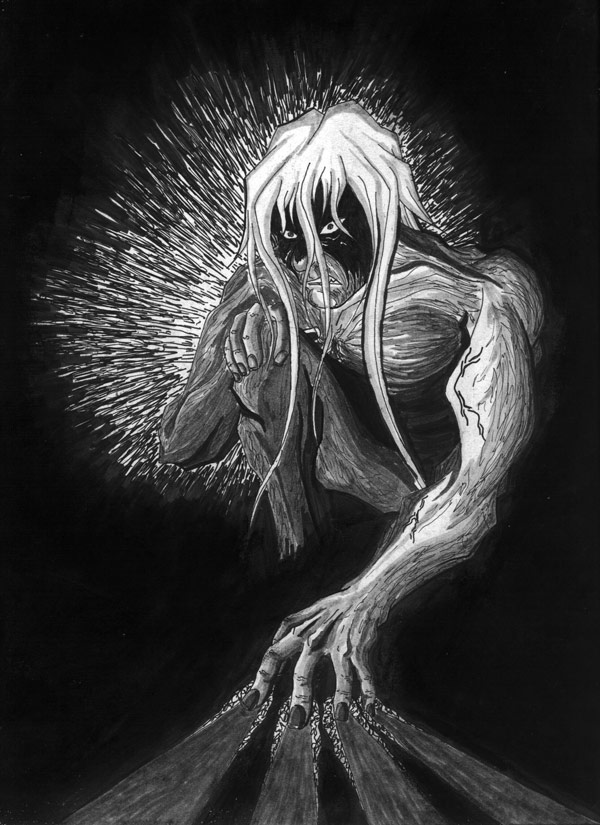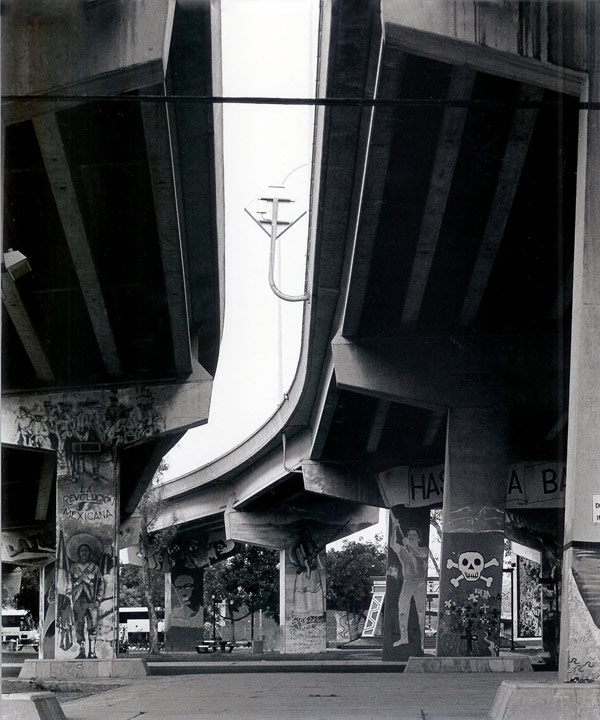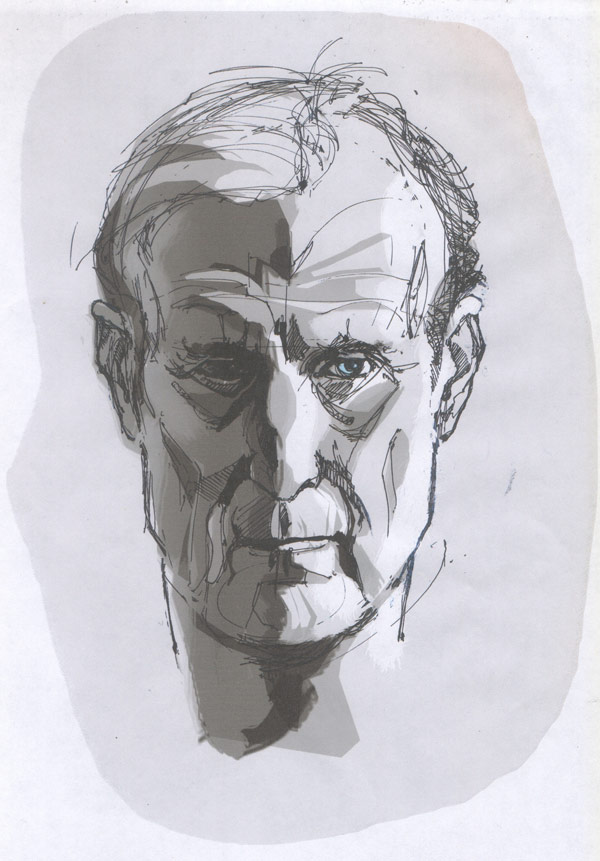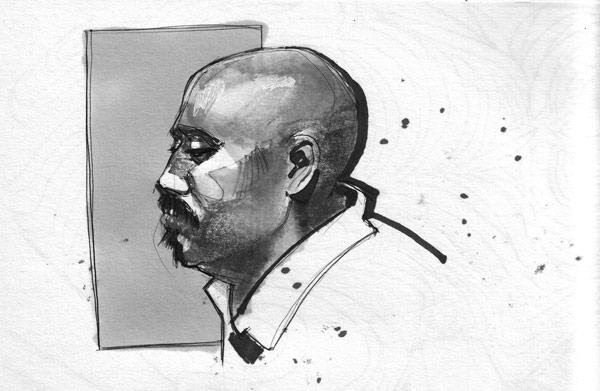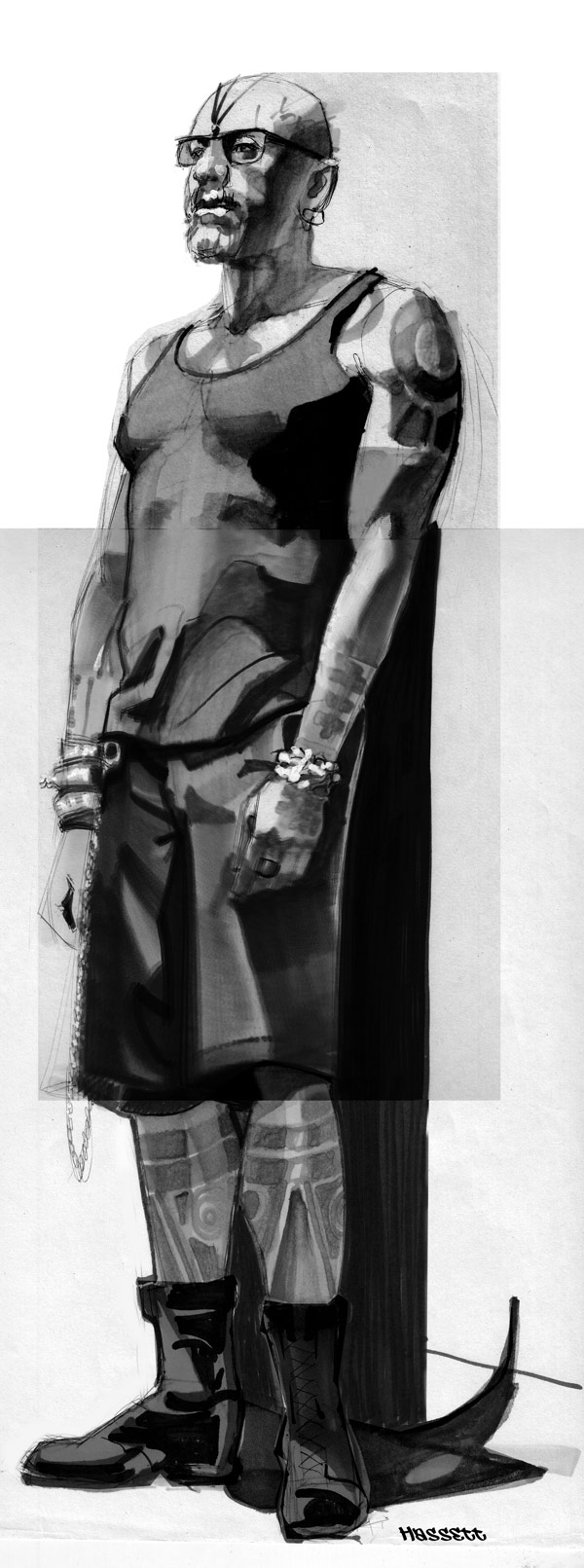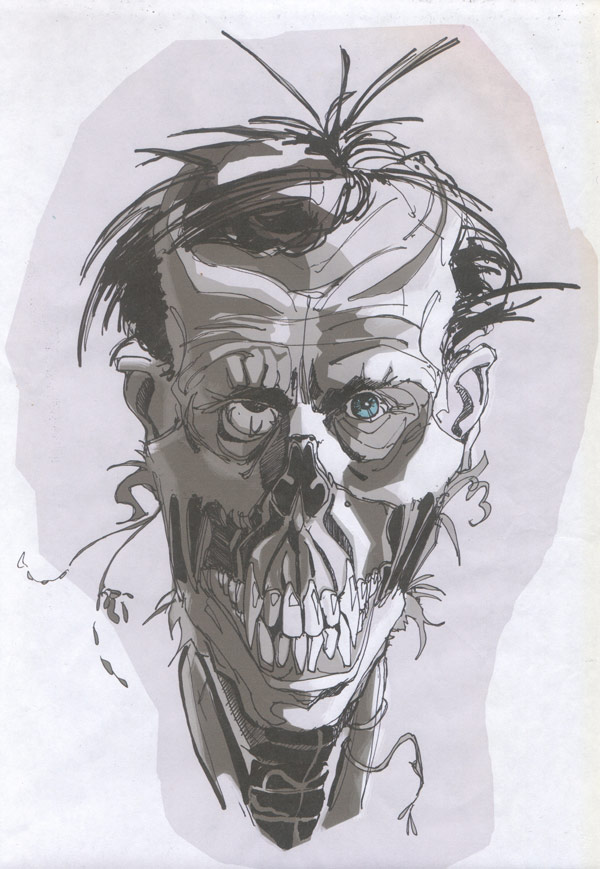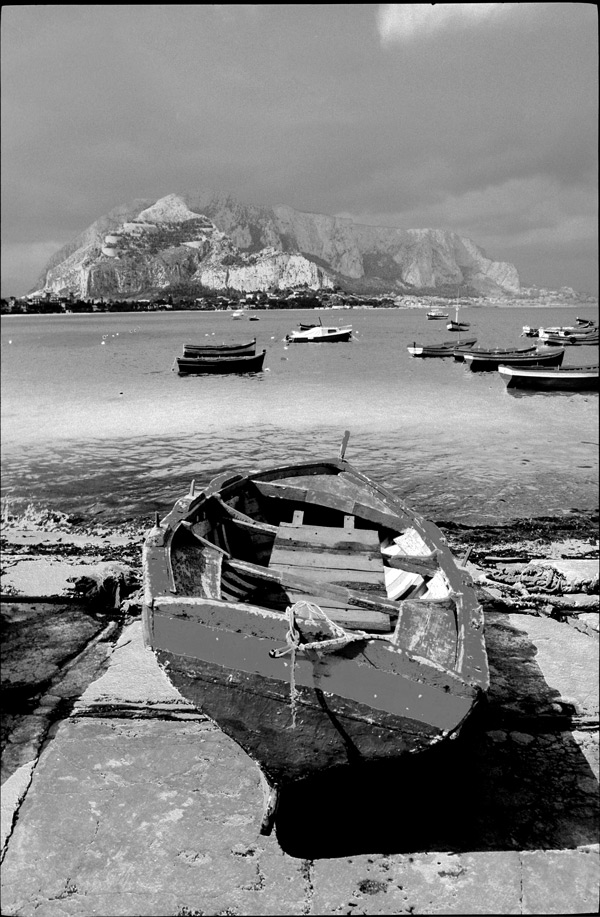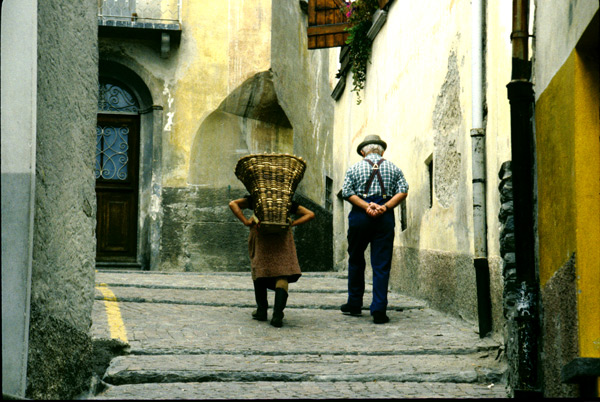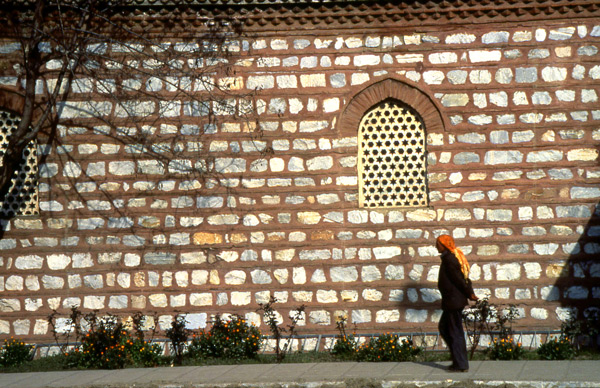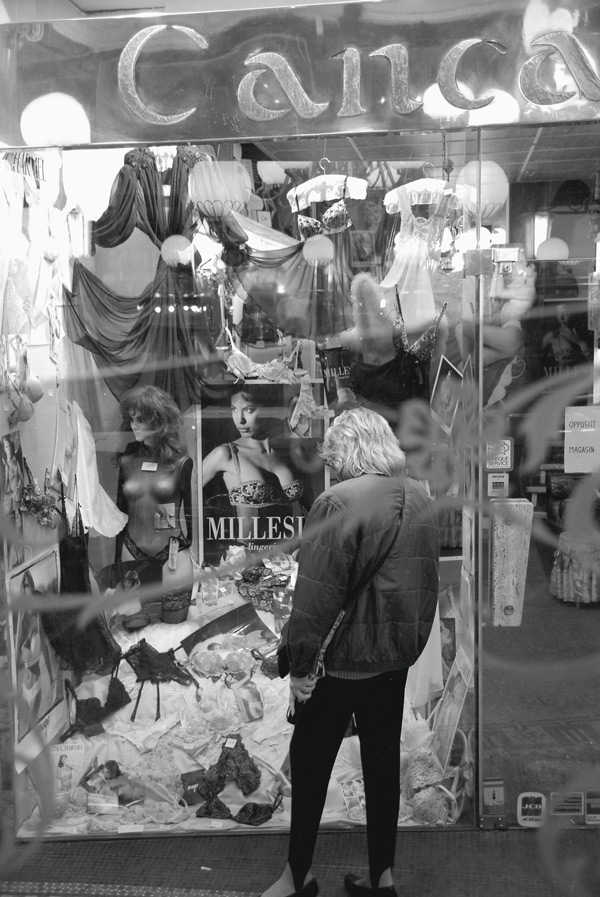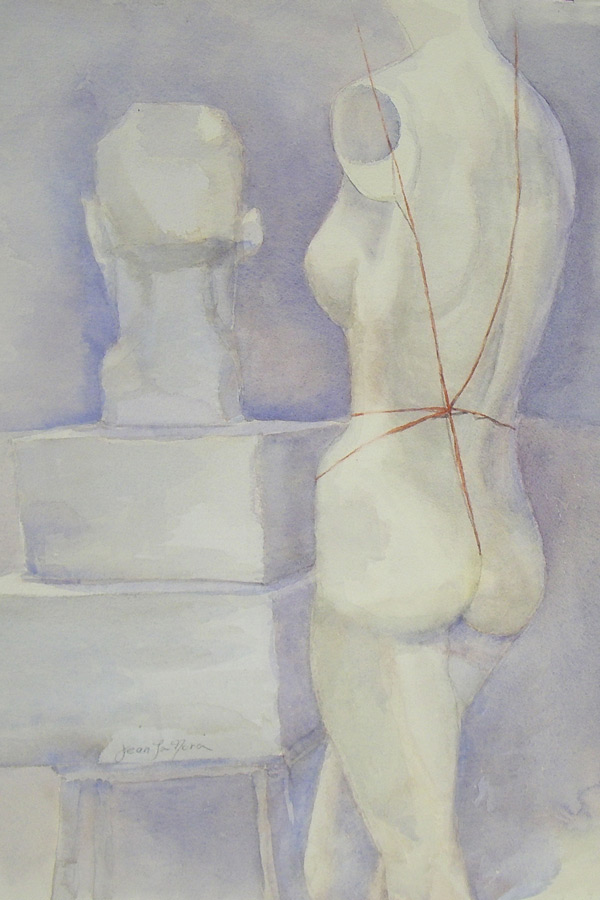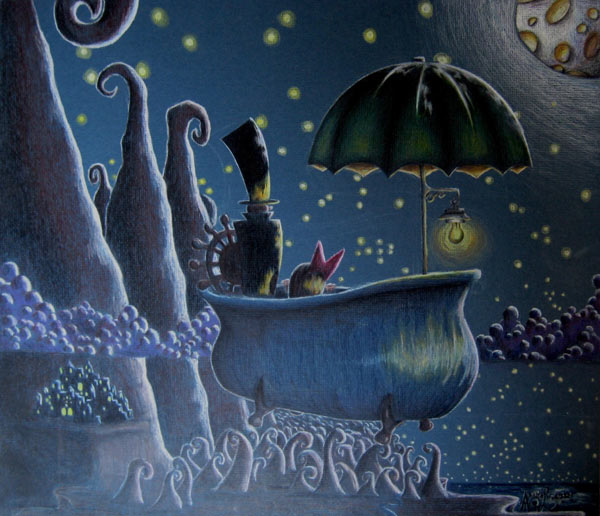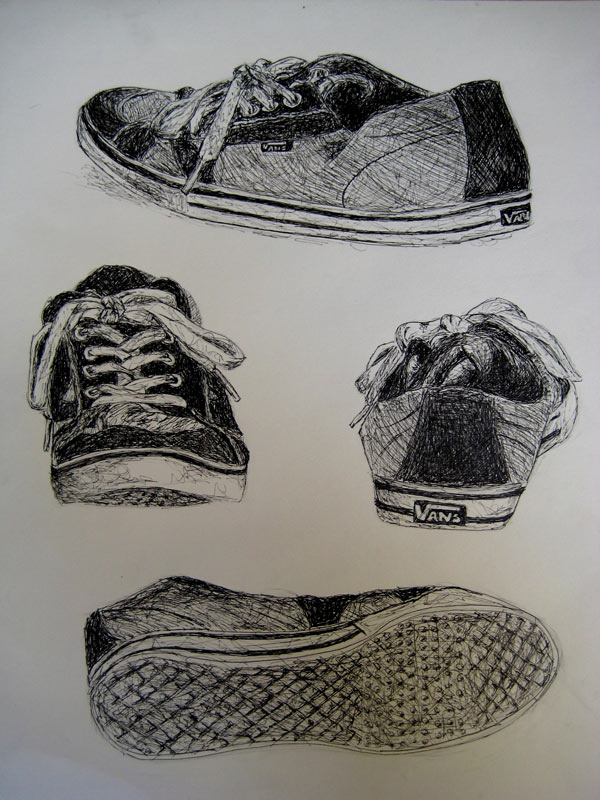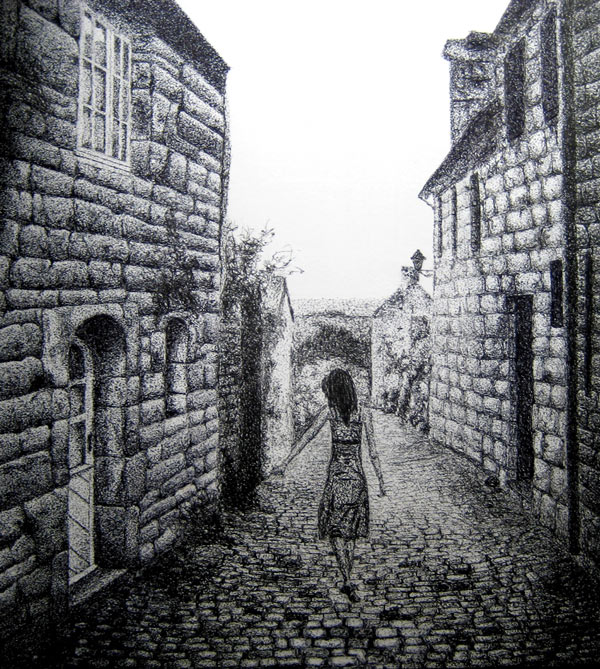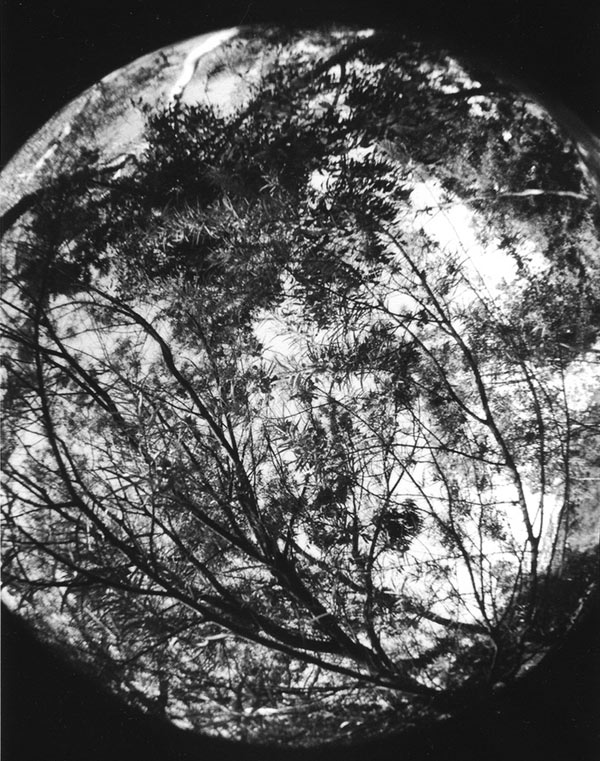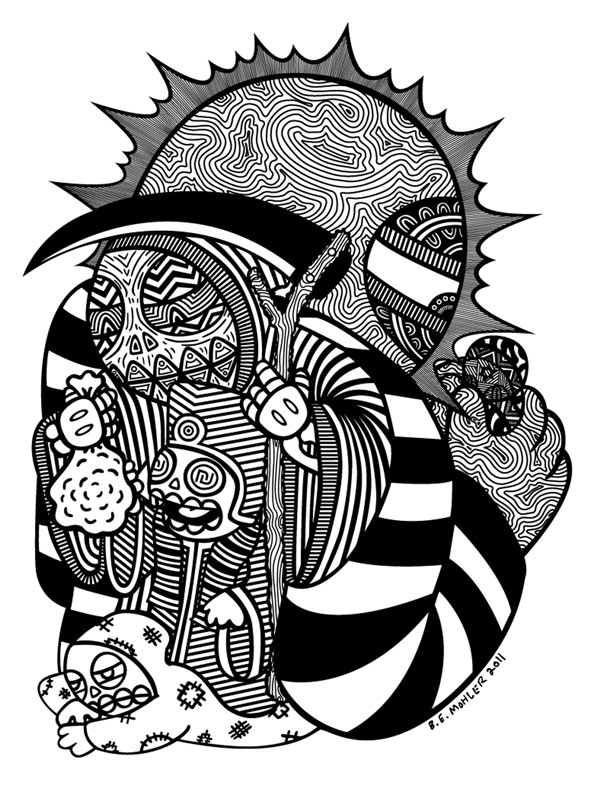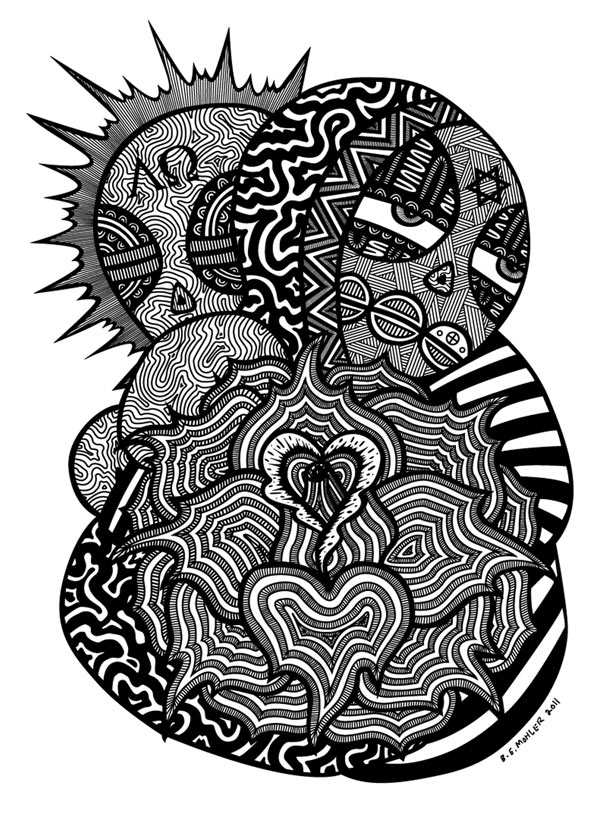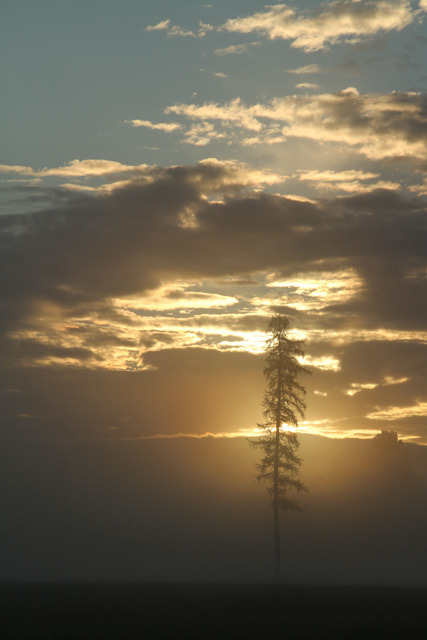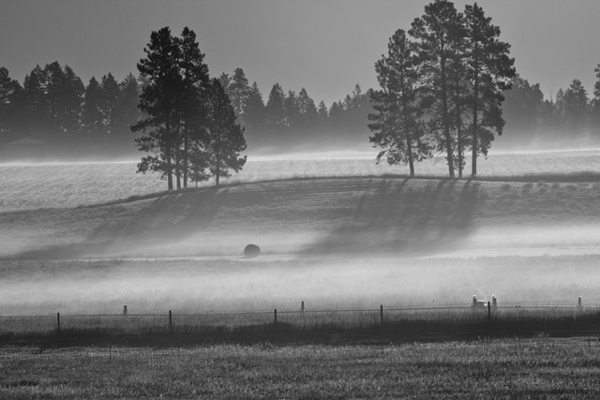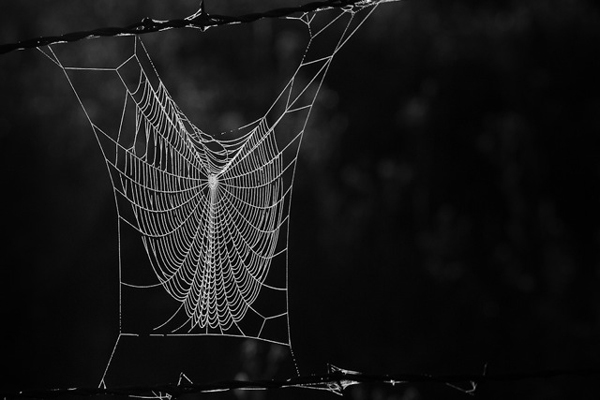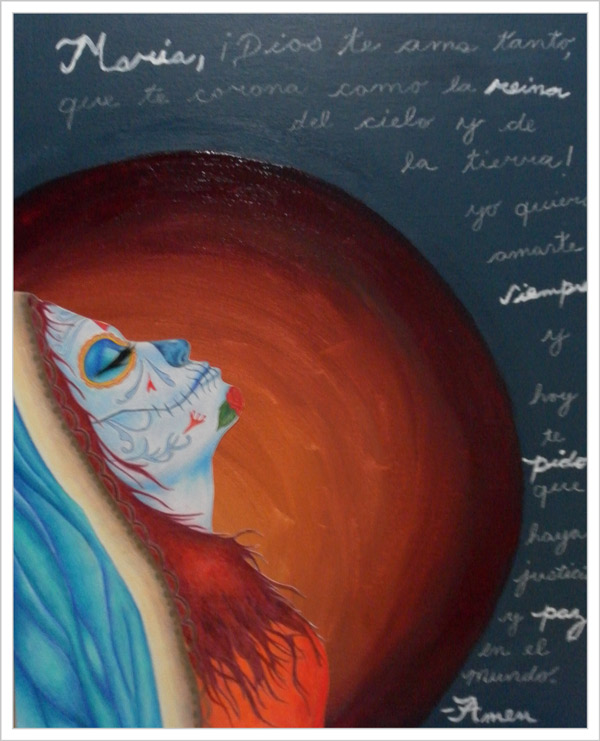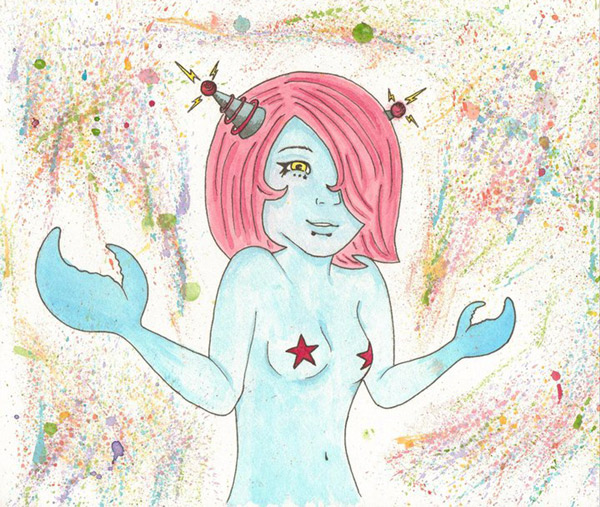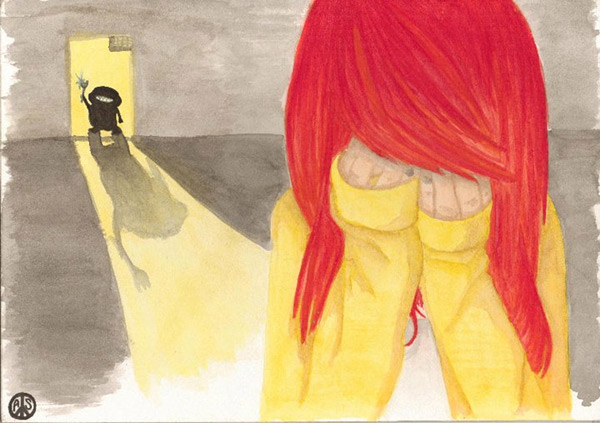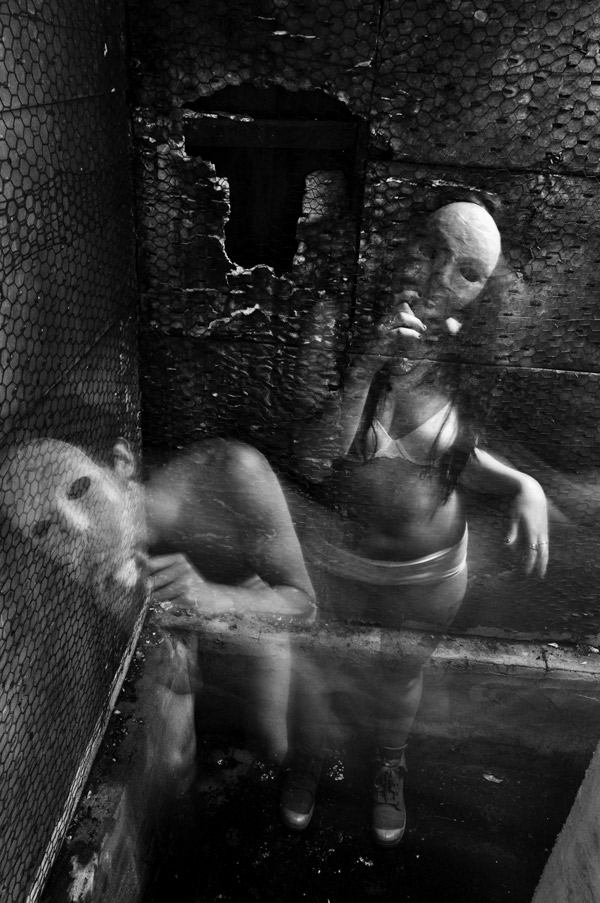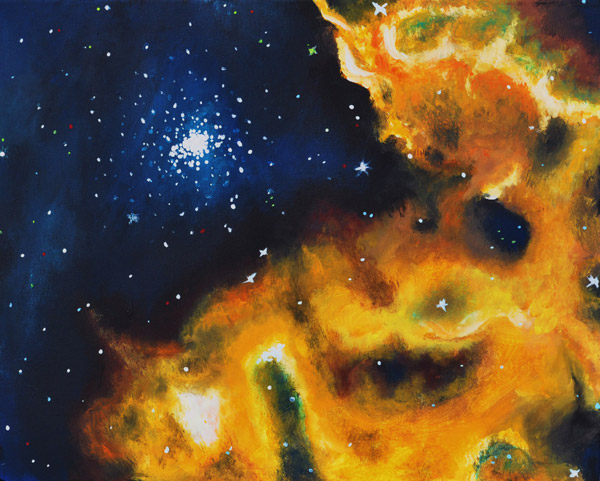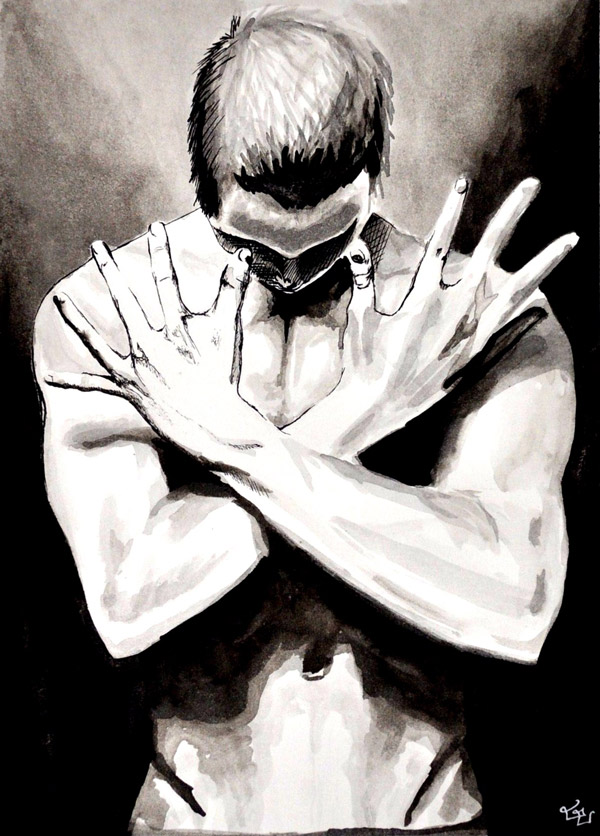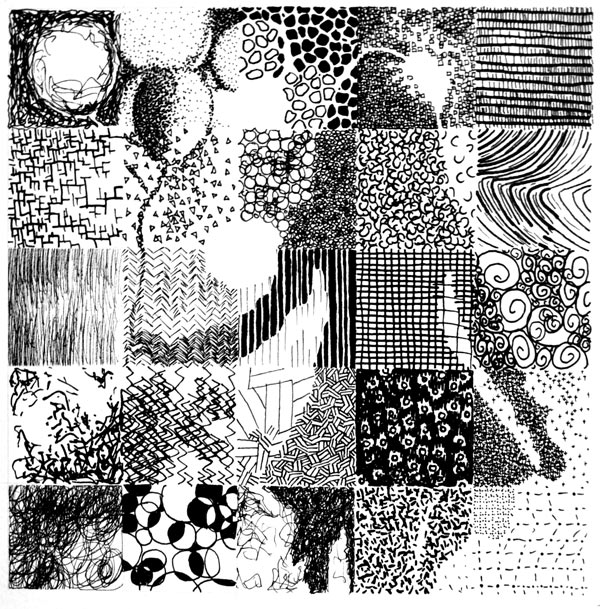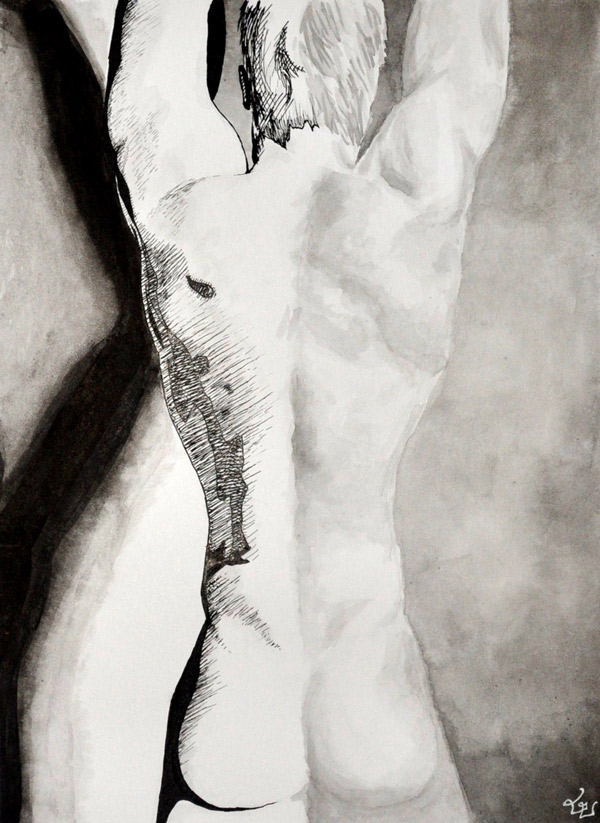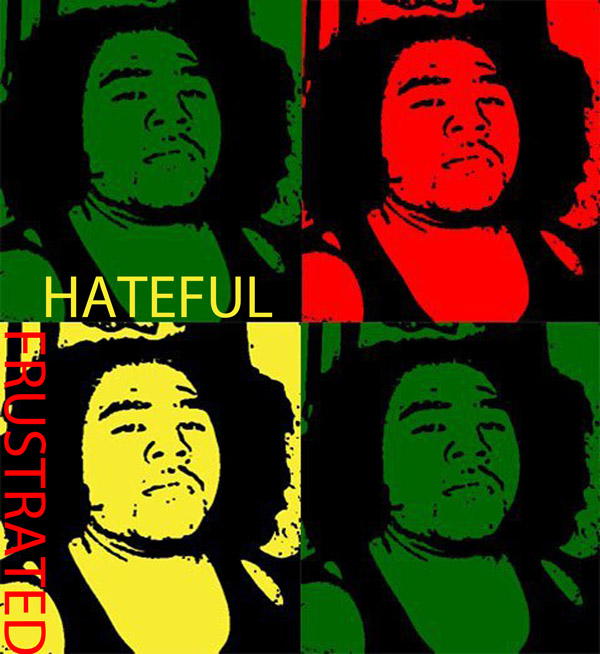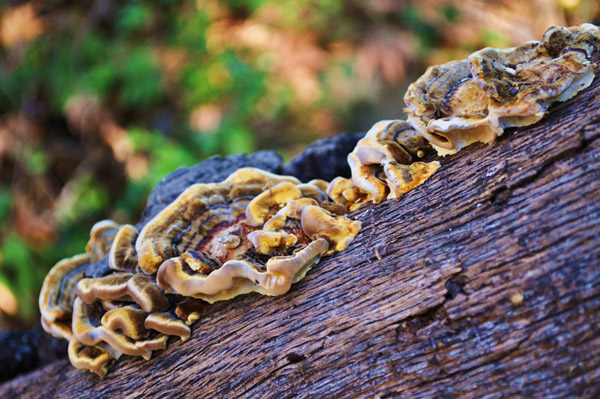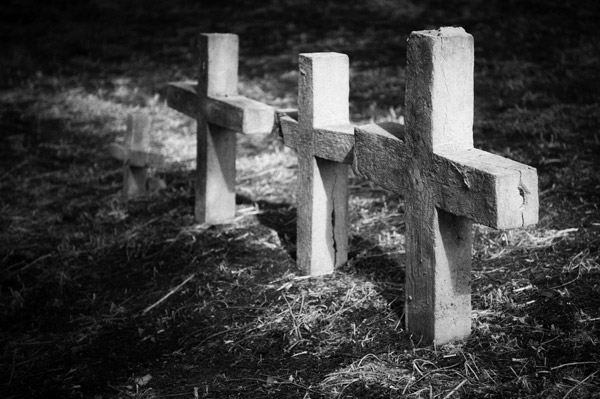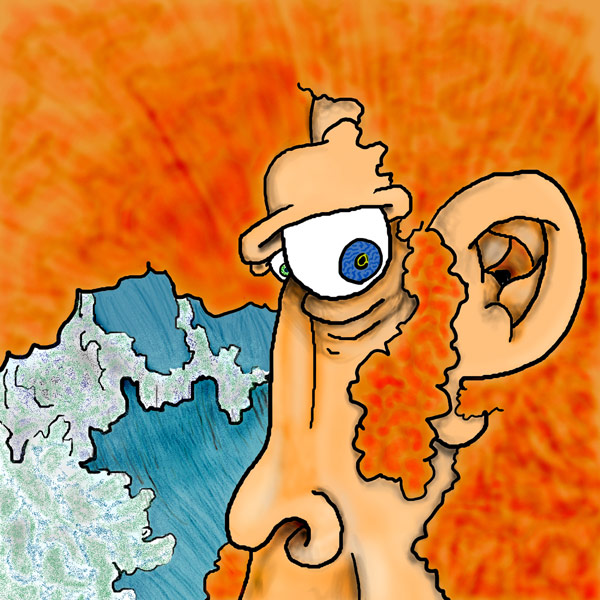A Fragment of Melancholy
Bianca Beloiu
Sitting there in the rain, watching the mists devour the sunlight, she pondered her solitude. Rilke had said that one needs to learn how to listen to the silence, letting herself be part of the “harmony”. She gave in, to the waves, became part of the rhythm, the merciless crushing water on the sand. And yet, this pathetic effort of the self-will w as worthless, the apparent melancholy surged in her even more roughly, as if it was telling her not to forget it. This deep sadness had come into her life for no reason, had dominated her for such a long time, taking everything from her. It laughed at her while she tried to become part of this beauty, mocking her admiration for “the Beautiful and the Sublime”. This sadness was abnormal, it emphasized itself in the most breathtaking moments, comparing itself to the majestic: A blasphemy in itself. Filth that is to be found in the human soul tries to rise itself to the level of the crude beauty that nature provides, which in essence is divine, and this dirt tells itself that it is indeed one of the angels- while it wallows in the stink of human nature! And yet the mind gladly drinks in the lies of this germ, and ends with convincing itself of this blasphemy, instead of throwing itself on the threshold of the universe in sincere wonder. But how was she to live, this girl of ours who has such sorrow for no apparent reason? One has to lie to oneself in order to keep oneself there, and not be abandoned.
And this lie continued to dig, telling her that this melancholy was just a romantic ideal, a sort of encouragement to cover oneself even further with the blanket of solitude. And why did she need to join the outside, when the inside was so warm, so welcoming? Why, cannot the mind offer more than the reality? It can soar to the heavens on the wings of thought, and scrape the peaks of mountains while flying into the sunrise…are we not limited by our bodies? The mind is the escape to better realms!
She left the waves, the mist, and visited the dark woods within herself. Hearing the relieved sigh of the sadness within her, she started to regret this choice, but caught herself in time, just as the blow delicately breathed upon her.
Standing on the edge of her life, looking out into the darkness, thick as a liquid shifting smoothly, she breathes in the air of nothingness. Empty air that does not cool or warm the heart. It does not serve a purpose, it merely is. Just like her existence: a ghost wandering the earth not knowing where to go, and for what reason.
House of Butterflies and Stinging Ants
Aidan Diaz
Released from school, the girls flee, heading for Pipeline Road. The road parallels the Panama Canal for a few miles before disappearing into the jungle overgrowth. With arms intertwined, the girls run until they reach the waist-high grass at the edge of town. At this point, they walk carefully to avoid cutting their legs on the sticky-sharp edges of the elephant grass.
Arriving at the old road, Olivia pulls out the pack of cigarettes she stole from her mom.
“Ugh,” says Gina, “these are menthols.”
They prefer the brand Olivia’s dad smokes, but he’s become suspicious of his missing cigarettes. Olivia’s mom claims she has quit smoking, although she still keeps a stash in the glove box of her car.
The girls light their mint-infused cigarettes and continue down the single-lane road. They come to a turnabout and spot a military Humvee parked in the grassy area. Two soldiers acknowledge the teenagers with casual waves, puffing on a shared joint. The girls are relieved to see the soldiers are American. Usually they come across other kids, weekend cyclists, or the occasional bird watcher. But recently, they have seen members of the local military defense force who have been prowling around town, looking at the American residents like they are the ones that don’t belong.
Olivia’s dad found out that the vacant building where he stores his fishing boat will soon be converted into barracks to house a garrison of the local defense force. Her dad said the current dictator wants to secure a presence in the area because of the town’s proximity to Madden Dam, which regulates much of the water draining into the canal. Her mom is nagging her dad about moving them closer to the city. Olivia knows her dad enjoys the convenience of living close to work. He is used to coming home for lunch and taking his boat out in the afternoons. Olivia doesn’t like to think about living anywhere else.
As dusk approaches, the girls return home. Olivia reaches her house on Sibert Street just as the yellow streetlights come on. For as long as she can remember, the lights have signaled when it’s time to go inside. Olivia races through the side-yard, ducking underneath the laundry lines tethered to their concrete posts.
She fumbles for the key she carries in her pocket. The house’s louvered windows are shut tight, allowing only a tiny fraction of light to shine through. Her family is more careful about locking doors and windows since the homes on the surrounding streets have reverted to Panamanian control. The new occupants string up Christmas lights that remain year -round, enclose the yards with chain link fences to corral their chickens and dogs, and install intimidating security bars over the doors and windows.
Inside, the house is dark, except for the light over the kitchen stove. Olivia peers down the empty hallway leading to the back of the house and hears voices coming from her parents’ bedroom. Sam is in the living room with bits of masking tape stuck to his fingers. By the number of drinking straws and bundles of holiday ribbon affixed to the wall, Olivia figures her parents have forgotten about her brother.
Going into the kitchen, she removes several foil covered plates from the oven. Her mom has prepared fried sea bass with toasted almonds and plantains baked in brown sugar. Olivia does her best to separate the food on Sam’s plate. He will complain if the food is touching.
When Olivia’s parents come into the kitchen, Sam pounces, showing off a rhinoceros beetle he found in the backyard. Olivia and her mom feign interest at the armored bug, defenseless on its back with its barbed legs wiggling in the air. Olivia’s dad nudges Sam towards the door, so they can go outside and release the captive.
Standing at the counter, picking at what’s left of the meal, Olivia’s mom asks about her day. Olivia breathes in the comforting smell of her mom’s citrus scented lotion and says, “Mr. Kelly was being a real jerk today.”
“What did he do now?” her mom asks, taking a bite of the fish.
“He stopped me on the way to school and said something mean about Albert,” Olivia replies. Mr. Kelly had seen her with Albert Cook at the baseball fields, practicing their bicycle kicks. Olivia was determined to make the varsity soccer team this year, even it meant being leered at by Mr. Kelly with his paunchy belly and balding hair slicked back into a greasy pony tail.
“You won’t believe what he said. He asked me why I was hanging out with a nigger,” Olivia says, fidgeting with the delicate butterfly pendant on her necklace. “I can’t believe he would say something like that.”
“That man is an idiot,” her mom says, walking towards the trashcan. She scrapes the food residue off the plates, shaking her hands to dislodge any remaining food particles.
The telephone rings, but before Olivia can answer, her mom reaches for the receiver. Covering the mouthpiece with her hand, she motions for Olivia to go downstairs. On the way out, Olivia hears her mom say, “Diane, thank goodness. I need someone to stand behind me on this one. I’m so tired of the boy’s club crap from these guys. They always clam up, trying to cover for each other. It feels like I’m talking to a brick wall.”
Olivia finds Sam crawling through the sweet smelling hibiscus bushes that surround the house searching for more insects. Nearby, her dad is making adjustments to the bamboo trellis he constructed for his orchids. Olivia admires how the elegant flowers flourish under her dad’s careful tending. Even the Smithsonian botanist who lives down the street stops by to gaze at the orchids. Her dad claims the secret is mixing kitty litter and coffee grounds with the soil.
Olivia and her dad look up at the house, hearing the sound of her mom’s voice reverberating off the high ceilings and hardwood floors in the house above. “It sounds like Crusader Rabbit is at it again,” her dad says.
Olivia agrees, thinking her mom is still upset about last week. A few of the neighborhood boys had gotten carried away again, smearing girls with shaving cream outside of the school, targeting the attractive girls as usual. Olivia had come out of the incident unscathed but her mom caught wind of it and complained to the school officials. They shrugged it off as boys being boys.
Heading over to the refrigerator under the house, her dad takes out two beers, holding the chilled bottles between his fingers. He offers one to Olivia.
“Gross, dad. No thanks,” Olivia responds.
Her dad knows she only likes to drink the last bit of his lukewarm beer. She has been doing this since she was little, and it is their game.
Popping the cap off one of the beers, her dad tells her that Albert’s mom spotted a couple of men attempting to break the lock on the refrigerator under the house the other day. Olivia laughs as she imagines how surprised those men would have been if they managed to open the fridge. Besides the chilled drinks, her dad has been storing a dead owl he found on the road, preserving the feathers to use in making his fishing flies.
Olivia misses the weekend fishing trips with her dad. He’s been working extra shifts at dredging division as they prepare to enter the landslide season. Fishing with her dad is the time when she has him all to herself, even though she complains about waking up early and pretends to be annoyed when he asks too many questions about her friends and school.
That night, she goes to bed thinking about tomorrow’s community dinner at the Civic Center. Each year there were less and less residents to attend, but she still looked forward to the event. One of her friends was bringing some kind of new singing machine called a Karaoke machine. At Gina’s urging, they had been rehearsing the song “Just Like Heaven” by The Cure.
The next morning, Olivia finds the door to her parents’ bedroom open, and sees her mom propped against the bed pillows, furiously filing her already manicured nails. Her dad sits at the opposite side of the bed with his back to the door, staring ahead at the wall. Olivia follows his gaze to the framed display of butterflies with the carcasses pinned and matted, and the wings arranged so the insects look frozen in time.
“Can you keep an eye on your brother today?” Olivia’s mom asks, continuing to fiddle with her nails. “I promised to help set up for tonight’s dinner. Apparently, your father volunteered for an extra shift again. If he’s not at work, he’s on that damn boat, and when he’s home, he’s passed out on the couch,” she says, bending the nail file, almost breaking it in half. Olivia’s dad heaves up off the bed with a sigh and leaves the room.
To keep Sam occupied, Olivia takes him looking for bugs. They find a mound of tiny red ants on the playground, beneath the rusted merry-go-round. Too late, she realizes the bugs are fire ants. The aggressive ants swarm, and Sam runs home wailing with Olivia chasing behind, both of them receiving blistering bites on their sandaled feet. Her mom slathers a baking soda paste over the bites to ease the burning. Olivia has to spend the rest of the day watching The Goonies on VHS, rewinding all of Sam’s favorite parts.
That evening they walk to the Civic Center, scratching at the irritated bites, and get caught in a downpour. Olivia runs with Sam from house to house, taking shelter under the overhanging eaves of the houses along the way. Arriving at the Center, Olivia is pleased to see that the spread of food holds the usual crowd favorites, including the ribs and sauerkraut her mom let simmer on the stove all day.
While savoring the slow cooked ribs and tangy kraut, Olivia notices a disruption toward the back of the room. Mr. Singh, her dad’s deck boss, is speaking with her mom and Mrs. Espinoza. His hands are gesturing wildly, and Olivia sees that his clothing is drenched. She watches as he removes his baseball cap to wipe his brow, but cannot understand what he is saying. Her mom appears upset, standing there covering her mouth with the back of her hand.
Olivia sees her mom cross the room, hesitate at the table where Mr. Kelly and a few of his co-workers are passing a flask back and forth under the table, finally stopping at the table where Albert and his friends are sitting. Her mom plucks Albert from the table and motions for him to head towards the back door. She walks over to tell Olivia that she has to leave. She explains that Olivia’s dad has been in a car accident, and assures her that he is okay. He’s been taken to the hospital and her mom needs Albert to translate for the police. Olivia knows her parents struggle to even use Spanish when ordering at restaurants.
Seeing Sam’s untouched bowl of Mrs. Espinoza’s sancocho with its chunks of chicken and starchy yucca in the herbed broth, her mom says, “Make sure he eats something, even if it is chocolate ice cream.”
“With color sprinkles,” her brother adds.
“With sprinkles,” her mom acknowledges before going out the back door with Mr. Singh and Albert.
Later at home, Olivia is giving Sam his bath, scrubbing behind his ears the way her mom does. She hears the doorbell ring but hesitates to leave her brother alone in the bathroom, in case he tries to flood the house. Olivia ends up answering, surprised to see Mrs. Espinoza standing on the front steps. Only complete strangers use the front door.
Mrs. Espinoza has probably been to the house a dozen times over the past year. Every other Monday the neighborhood women converge to gossip while having their nails done by a manicurist who drives in from the city. Now, her mom’s friend is holding the covered ceramic dish her mom brought to the dinner, passing it carefully over the threshold. “Tell your mom to call if she needs anything,” says Mrs. Espinoza before retreating back down the stairs, navigating the maze of potted plants her mom has arranged to detour unwanted visitors.
The soft green glow of the alarm clock reveals that it is 3:47 a.m. Bits of an argument come through to Olivia’s room. Fragments of the discussion hit the wall like tiny verbal explosions. Olivia wonders if her dad has wrecked his truck. She hopes not, because he promised to give her another driving lesson. After a while, things quiet down and Olivia falls back asleep.
In the morning, Olivia goes to their room. After the argument last night, she expects to see some physical signs of disarray, but the room looks the same as always. Her mom’s night-stand holds stacked Bon Appétit magazines, and an assortment of allergy and migraine medicines in their opaque prescription bottles. On her dad’s side are his Analog sci-fi magazines, and several empty beer bottles.
Olivia turns and finds her mom standing in the doorway, holding a cup of coffee in her hands. Her mom says, “Your father’s all right. He’s lucky it was the local cops that found him out on Pipeline last night.” Olivia pictures the local band of cops that hang out in front of the gas station drinking soda pop and shooting the breeze with the dredging division workers. The local police have been stationed in town for years, and only patrol periodically, usually with the town’s stray dogs in tow.
“If it had been military police, he would have been hauled in for a DUI,” her mom adds. Olivia imagines the local military force, discomforted at the thought of the Panamanian soldiers in their dark green uniforms with pant legs tucked tightly into black combat boots.
“What was dad doing out there?” Olivia asks. “That road doesn’t go anywhere.”
Staring down into the coffee, her mom says, “He was just out with some people after work. You know they can’t get away with drinking at the office anymore.”
Olivia recalled her dad telling them about the canal administrator who came to tour the dredging operation, and found a display of unopened liquor bottles in the employee break area. Next to the bottles was a sign that read “Do Not Open Until December 31, 1999.” Her dad said the guy had not been amused at the reference to the day the canal would revert to Panama in its entirety. Even with ten years left to go, the date loomed in the minds of the American residents living in the canal area. The Dredging Chief ordered that the bottles be removed, and as further precaution, began strictly enforcing the no alcohol on premises rule.
At this point, Olivia’s dad emerges from the bathroom with his face clean shaven. She’s never seen her dad without his beard, except in pictures taken while he was still in the army.She winces at the stitches over the gash on his chin, and the bruise swelling along the side of his jaw. He appears young and vulnerable without his facial hair.
Olivia follows her dad into the kitchen where he slumps into one of the kitchen stools. She sets out his coffee mug and the elongated teaspoon he uses to add sugar to his coffee. He drinks slowly, glancing at Olivia. He asks if she wants to go fishing after he finishes some things at work. Olivia is surprised; she knows they will be unlikely to catch any bass so late in the day.
After her dad leaves for work, her mom comes into the kitchen and begins to shakily unload the dishwasher. Each plate and cup rattles as she places it in the cabinets. Olivia tries to help, but startles her mom, causing her to drop a glass. Olivia sweeps the broken pieces into the dustpan her mom holds, watching as tears drop from her mom’s eyes onto the glass chards. Olivia rarely sees her mom cry and is unsure what to say. Sam thuds back and forth over the hardwood floors, engaging in an invisible race with an unseen competitor.
“Let’s go. You drive,” her dad says, as Olivia stops to examine the dent on the driver’s side door before climbing in through the passenger side. She has to slide across the bench seat to reach the driver’s side. Olivia carefully puts the truck into gear, mindful that her dad has not let her drive since she drove up over the curb last time, and ended up too close to the neighbor’s house. Her dad keeps his foot pressed on an imaginary brake pedal as she drives to the building where the boat is stored.
At the boat launch, Olivia guides her dad as he backs the boat trailer into the water. She stands barefoot in the water, gripping with her toes to stay upright on the slippery slime that covers the ramp. “It looks like rain,” her dad says, his hands stroking the tender and exposed skin where his beard had been.
He takes the boat to the middle of the channel where they pass the Goliath, a dredging vessel. Her dad stands and mock salutes his co-workers aboard the floating crane. In the distance they spot a large container ship rounding Tabernilla Point, trailed by an oncoming wall of rain. Her dad turns the boat back towards the dock. Before they reach the shallow water, he turns off the engine.
“Well, I guess you’ve heard,” her dad says, removing the pack of cigarettes nestled in his shirt pocket. Lighting a cigarette, he begins telling Olivia about a woman. The woman he was found with last night out on Pipeline Road. The two of them in his truck, flipped over on its side in the ditch. Olivia watches as her dad slowly removes the cigarette from his mouth, and taps it repeatedly against the side of the boat his eyes following the ash that falls to the water.
Her dad explains to Olivia that he works with the woman. He describes her, insisting that Olivia remembers her. “She’s a skinny little thing, cute as a button,” he says. Olivia blocks out his voice. She thinks about how her dad has begun to make fun of her weight, poking her stomach, pinching her bottom, and telling her to be careful or she will end up with a butt like her mom.
Her dad continues, telling Olivia that the woman is going through a tough time. Her husband left her, and she has two children, a son and a daughter. He’s done a few things around the house for her and has given the kids some of Olivia and Sam’s old toys. He tells Olivia how much the woman and her children appreciate everything he does for them. Olivia wants the river weeds of the Chagres to pull him down, their slimy plant tentacles dragging him into the muddied depths.
“What is she to me, or to mom, or to Sam? I don’t want to hear anymore,” Olivia says, continuing to imagine the under water fight and struggle for air that will further entangle him in the river weeds.
“Really Olivia, the woman is just a friend,” he says. “I promised your mother I would not see her again,” he adds, his gaze fixed on the water.
“If she’s just a friend, why would mom care?” asks Olivia.
Looking directly at Olivia, her dad holds up his cigarette, points it at her and says, “You don’t get to question me. I’m the parent.”
It had been years since Olivia thought of him as her step-dad. She was eight when he came into the bank where her mom was working in San Bernardino. He took them both to a restaurant with white cotton tablecloths, chilled glasses, and breadbaskets that were refilled on request. Olivia refused the steak her mom ordered for her, asking for a hamburger instead. Coaxed by her mom she eventually tried a bite of the steak, and then gobbled up the buttery meat.
Fresh out of the army, her dad was struggling to readjust to life in the states after being stationed at a military base in Panama. He was contemplating a job offer that would take him back to Panama, as a civilian. He took them away from the tiny apartment where Olivia and her mom slept on a pull out sofa, her mom’s menial bank job, and their dependence on Olivia’s paternal grandparents to make ends meet. He paid for the court costs to finalize her mom’s divorce from Olivia’s biological father. According to her mom, Olivia had not seen her real father since she was three, although Olivia suspects it had been longer.
The rain finally reaches them. It hits the water with a ferocity that makes the rain bounce off the lake and into the boat. Olivia wishes the storm would wash them away. She sees her dad fling his water-logged cigarette overboard. She thinks about removing her butterfly pendant and tossing it into the water as well, her dad’s gift to her on her sixteenth birthday.
At home, Sam is stretched out on the drying concrete in front of the house, propped on his elbows, quietly observing a steady trail of red leaf-cutter ants bearing their leafy loads. The ants never straying from their path. Olivia watches as Sam inserts a stick between the ants, causing the creatures to clump together, a tangle of bodies piling up in confusion at the unexpected detour in their bug highway.
Distracted by the sounds of her dad hammering at the dents on his truck, Olivia is unaware that her mom has come down the stairs, gripping a stack of paperwork in her hands. Her mom goes over to the truck and slams the paperwork down on the hood. Olivia sees the housing application her mom has been nagging her dad to submit, so they can move closer to the city. Olivia wonders for a moment if it could just be her and her mom again, with Sam of course.
Going into the backyard, Olivia watches a butterfly as it settles on the orchids. The botanist had said the orchids mimicked the color and shape of the flowers favored by the butterflies. The orchids trick the butterflies, because they offer no nectar. The orchids simply use the visiting insects to spread their pollen from flower to flower.
Upstairs, Olivia’s mom is blaring “The Devil Went Down to Georgia” over the stereo, loud enough for the entire neighborhood to hear. Her dad shakes his head and begins to hammer louder.
Caution: Dangerous Curves Ahead
Jamie Farthing
The Charger thundered down the dusty desert highway, its midnight metal a blotch of darkness against the backdrop of nature’s canvas of red’s and deep gold. Rubber wrestled with pavement as he navigated the steel beast closer to what he hoped would be his salvation. She would never let him have a car like this one, he thought slamming the stick shift into gear. She would find him, he was sure. She was good at finding things, even when he tried to keep it hidden away. Like the last shred of manhood he possessed.
Tires protested in a series of wines and chirps as he took a sharp turn too fast, just like his relationship. Her voice, so much like his mothers, telling—no—demanding he get a better job, better clothes, better life. Another sharp turn and he was barreling down an unpaved road picking up speed, the speedometer a reflection of how quickly his life had ceased to be his own and more her idea of what it was supposed to be. Buy the cookie cutter home, go to garden parties, have 2.5 children…marry her. The car jostled as the dirt road disappeared. Rocks tore at the undercarriage and the steady slap of dried brush scratched along his windows before he brought the car to a sudden stop.
Lavender and B.O. drifted from the passenger seat, and he knew.
She’d found him. Graying fingers strummed the dashboard.
“I told you.” Her mouth, set in comical grimace, made the words sound as though they were being forced through a cheese grater. Every hair on the back of his neck shot skyward as she turned toward him. Bits of ruined white fabric clung to the gaping hole where his twelve gage shotgun had torn through her chest. The lace and crystals adorning her wedding dress became a macabre picture frame surrounding the gore of blood from her destroyed arteries. He was no doctor but he thought he could see part of her lung beginning to slide down her ruined wedding dress. Bile bit at the back of his throat. Killing her was the easy part. He turned back to the immense canyon, its lip just at the edge of his front tires. She wheezed beside him. “I’ll always be with you.”
He slammed the car into first and hit the gas.
Blue
Katie L. Foltz
They didn't talk that often. When they did converse it was light, not sustaining. Joking, laughing, and making fun. Some would call it mean, but that was just how they all were.
Some few times they would talk about the hard things. Life, love, pain, growing up and, of course, the parents. It was imposable to talk about these things without touching on the parents and the past.
It was late, early for them, but they have never been the normal of others. Most of them were in rooms or just elsewhere. She was in her room, she could almost always be found there. Music was on in her headphones, something where the music and the words blended together. Something easy to think through might even help with the flow of thought that is not always so helpful to come when asked for.
She didn't hear the knock on the door because of the music; she did not see the door open, her eyes were closed as they often were when she was in deep thought. She opened her eyes because she felt someone in her sanctum. He was standing there, he looked distraught. Even though she had felt someone, she still had a startled reaction upon seeing him.
"I'm sorry, I didn't mean to startle you. I did knock on the door."
"Sec," she said as she turned her music off, "Sorry, I couldn't hear you. What's up? . . . You look upset."
"Izzy... I think I just ruined my life." At these words he started to cry. Slow tears at first, but soon he was shaking.”I don't know what to do."
"What happened, how could you ruin your life?"
"I talked to Cole about it already mostly ‘cause he was around when I found out. I can't talk to Lewis because he has enough on him already..."
"I don't know what it is, but don't talk to mom, she will just make it worse."
"Yeah, I know... I am so fucked! There is nothing I can do; there is nothing anyone can do to make this right."
He started to sob then. He was normally so reserved, he tried to never cry. Men were to be strong! He was the one that other people went to when they needed someone to lean on.
Her first thought was that he was being melodramatic. He sometimes really could be.
"What's wrong?"
"You know that class that I failed? Well I..."
"You didn't fail it, that fucking bitch Erica fucked you over!"
"It doesn't matter, it still counts that I failed it!"
"... yeah, I remember."
"Well, I have a year to take it again. I have to take it this semester or my finical aid will go away. I wanted to put it off and not look into it, because it's that whole failing thing. Well, I had to have my choice in by the 14th... by 4pm. I didn't! I only know that I missed it because I got an e-mail from the head of the department."
"Can't you look at it tonight and go to her in person tomorrow and plead with her?"
"I don't think so. They told us all the other years that if we didn't have it in by the deadline we were fuck outta luck... Although, they didn't say that this year... Oh, I'm so fucked. If I don't get into this class I will have to be there until 2014, the finical aid stops at the end of 2013. It's not even like I can default on my loans because mom cosigned... I'm just fucked!"
"People are a lot more forgiving in person."
He started to pace around the door, he looked like he was thinking and he just had to move.
"Do you want to go outside? I can smoke there."
"Sure, just let me put my computer to sleep."
As they walked down the stairs, they were silent. The only sound was the stairs creaking and moaning as they used them. She grabbed something to drink while he got the smokes from his bag. They made their way outside, to the backyard and sat in the cheap lawn chairs outside the big kitchen window. She sets the drinks down on the little table in between the two chairs. He opens the box containing the clove cigarettes. Inside was about half a box full and a lighter. It is green and non-descript. He pulls out two cigarettes, hands one to her and lights his. She leans over to the fire. As the flame touches the end she sucks in a deep breath, trying to get it to light evenly. They sit down and she leans back. The sky is overcast, cloudy, no stars.
"I like the smell of smoke. I liked when George from across the street would smoke his cigars" she said.
"I haven't smoked since I failed. I was outside in the parking lot... I think it was last July. We have to be careful though, don't leave buds and ashes around. Drop them in the plant back there."
"The one that looks like it could catch fire at the drop of a hat?"
"Yeah, no ashtrays since Lewis stopped smoking. He doesn't know that I have these."
She inhales deeply.
"Smoke always reminds me of how our backyard used to look. All the trees. I don't even have a clear memory of it, just a pseudo one made from things I think I remember and dreams."
She always thinks of forests and giant trees when she thinks of the old yard. Colors were the first part of the memory. Blue. Everything was blue. The sky was not visible; the leaves from the trees blocked it out. She knows this was wrong because the trees only lined the yard. This is the great thing about memories, even though you know it's wrong, you still remember it the wrong way.
The world was blue, but the trees, they were green. The trunks were so big that no one person could reach all the way around one. She remembers the yard being enclosed by all the trees. Not only were the trees wide, they towered above the little children playing in amongst them. The houses were dwarfed by the trees.
Figures were the second part of the memory. There are four of them. The two older ones are more shadowy, less defined. The four were playing hide and seek. Her figure is harder to define, she has an idea, but it becomes smoke in wind when trying to describe it. The strongest, best defined figure is the other hider. In a world of blue and green, he is a contrast. He wears an orange shirt and black pants, his skin is porcelain, imperfections in the form of freckles, blue/gray eyes and to top it all off, a shock of red hair.
He looks at her shade and smiles, he brings up his hand, he places a finger to his lips. He points, letting her know that the other two are on the inside of the trees looking for them. She nods and puts her back to the tree. The inside of the yard can't be seen anymore. She now sees open sky and mountains. The memory fades. The lingering impression is blue.
"The trees were not very big, there were a lot of them, but the yard was always sunny." he said.
"I remember playing hide and seek once. Cole and I were hiding behind the trees."
"Yeah... they got cut down when dad built the club house."
She laughs quietly.
"I remember thinking we would have a tree house in every tree. We would have bridges connecting all of them. But they were all taken out before he started to build that piece of shit. It had a drawbridge. Not many people can say that."
"It wasn't so bad."
"No, not till the floor rotted out and the water started to lay on and in it. Then it just became the amount of time that was put into it, nothing."
"It was better than anything they had down at the park."
Another memory, half real half dream. The color this time was green. There are apartments cascading down a hill, only one row though. The roofs were turquoise with lemon green thrown in. The walls were white, paper white. The hill was covered in candy apple plants and long wavy grass. There are trees in this memory too, but they are vague, distant things that only showed a deeper shade of green. There was water somewhere in the tree area, only heard never seen.
Yellow is the other color in this memory. The sky was an old ancient pale yellow, open and free. Only the hill with the building broke the flat endless horizon. There are some odd things about this memory park. There are no swings to play on, no sandbox to play in and no jungle gym to run around. All that is there is one section of chain link fence. The fence is on a slight rise, almost as though it were on a pedestal. It is gray and perfectly ordinary, save that it is all by its self.
All the other areas of this dream park are wide fields. Long grass bowing in the wind under the yellow sky. The rest of the world was open air and grass.
"We put the pool in at about the same time too." he stated.
"Yeah... so many weird memories in the spa."
"Oh?"
"This one time when Oliver came over, the three of use, Cole, Oliver and myself, got in the spa."
"Shocking."
"Shut up. Anyway, we were playing truth or dare. Well, Oliver dares me to french him and Cole was telling me I should do it. So I did, but on one condition. Oliver and Cole had to French afterwards. I couldn't believe it, they agreed."
"Wait... Oliver kissed Cole... in the spa?!?"
She couldn't talk for a minute because if she opened her mouth she would start laugh very loudly.
"It was the funniest thing I have ever seen. I thought they would be chaste and barely touch. But no..."
She has to stop again to laugh silently.
"They went at it like there was no tomorrow. They even pulled back from kissing and were tonguing in the air. Funniest. Fucking. Thing. Ever! I bet they forgot about it, but I will have that memory forever."
"Well... Wow... Huh, it's odd. You are sharing Cole's secrets and I feel compelled to say some of my own. Did you know that Luke Williamson used to buy condoms regularly?"
"No. I didn't know what a condom was until I was 17. I thought people were saying condo."
"Wow, that is really dumb!" he laughs, "... but anyway. Yeah, he used buy them and masturbate in them. He said it was awesome. I can tell you, it's not."
She can't breathe for laughing so hard, she has to cover her mouth to keep from laughing to loud.
"It gets better... I didn't know what to do with it after I had... um... used it. So I flushed it down the toilet and it clogged the fucking toilet! I worked so hard to get it out, but I couldn’t be sure it was all really gone. Even to this day I still think when the toilet is clogged it will be because of that."
"Oh my god... wow," she laughs.
"I told you one of mine, Cole's does not count as yours."
"I don't have any good secrets."
"Sure."
He does not understand. They are not good secrets; they are not funny at all. The only one that comes to mind is a car ride where her dad said it was her fault and if it happened again the government would take her brothers and her away from their parents. She had felt dirty before, so it really was her fault. These were the memories that made it hard to breathe sometimes.
"Smoking really does help calm me down," he says.
"They don't work like that for me, not chemically. I have to smoke so many before they start to work that it's really not worth it."
She looks around the yard as it is now. She sees the pool, the space where the club house used to be and the area where trees once stood. She puts out the last of her cigarette about the same time as him.
"I do like the smell of smoke. Fuck health!" She says.
"Yeah."
"Funny how the mind is cyclical."
"I was just thinking the same thing. Let's go in, it's freezing out here."
He gets up and grabs the drinks. He goes in and leaves the door open. She stands up and looks at the sky. A small V- shape is opening in the clouds. One star twinkles. She goes inside.
The lingering impression is blue.
For Lease
Sean Frede
We sit against the neglected flower kiosk in the strip mall parking lot. To the left is a Korean
church, to the right is a Mexican AA and a Persian liquor store. The rest have “For Lease” signs. I have a thirty-two of High Life. Derek’s drinking a Steel Reserve.
“I’ma get another, you want one?”
“Naw, I’m fine,” I say.
He heads to the liquor store, trying to hide his limp. A dog with three legs hobbles by. You can see his ribs. He sniffs at some garbage, then picks up an old burrito wrapper with cheese stuck to it.
Derek gets back just as I finish my beer.
“Did your dad get drunk again last night, bro?” I ask.
He shrugs his shoulders and cracks his beer. Some of the beer sprays out in all directions, suspended in the air for a second by the dying sunlight. He snorts and spits at the dumpster.
I turn my thirty-two over and watch the foam puddle onto the asphalt. It flows down a crack, where a cigarette butt blocks it from going any further.
“Guess I’ll get another,” I say.
As I get up, the orange lights hum on from above and the sun drops behind the Mexican AA.
Stripped Paint
Sean Frede
It’s always better waking up with a hangover in my basement. The cold wetness of this cave is a gift compared to the hanging Midwest humidity anywhere above ground. I crawl up my stairs, holding on to the railing and see the note on the door to the kitchen. Breakfast is in the oven, fresh coffee in the pot, next time don’t play your music so loud. Love you, mom XOXO. I crumple the paper and grab my breakfast and head to the front yard. I hate how she is so lovey dovey, but when she’s always ready with fresh food for my hangover, how can I complain?
I sit on the green cooler next to the garage. My eyes are transfixed by the ecstatic colors of gasoline dancing in a puddle of water. Two kids hop back and forth down the sidewalk pretending to be pirates with cardboard swords. These kids remind me of Big Dan and me growing up. We were inseparable. We use to always take our bikes down to the creek to catch craw dads. With our bucket full we would head back to my house and keep them in the plastic blue pool in the backyard that my mom got us from K-mart. I wish it was always that easy. Before I can reminisce anymore, Dan pulls up in the truck.
I hate that old work truck. Multiple shades of rust make it hard to figure out the original color. It backfires, causing me to jump, thinking a shotgun just went off. I struggle with the handle a few times and finally open the door and slide in to the truck as Dan takes off.
“You need to get that handle fixed, man.”
“Damn JT, you look like shit.”
“Yeah, well I feel like it too, I’m beat.”
“Here this’ll help.”
Dan tosses me a beer and cracks one open for himself. He is as large as his arrest record. One time we got hammered in some dirt lot. He had the wild idea of going streaking when the carnival was in town. There he was, butt-ass naked tromping on sawdust next to the Tilt-A-Whirl in only his work boots. He spent that night behind bars, but I doubt the jail cells could even fit him. He’s built like a bear, size fourteen boots and hands that make a beer can look like a tea cup when he holds it.
“Last painting job ever. How’s it feel, Dan?”
“Like the owners opened the cage for me to roam my man, the passenger seat is still open for yah.”
I rub the bridge of my nose and say, “You already know that answer.”
“You’re gunna be itchin’ once I’m gone.”
We bounce down the dying dirt road. Row after row of vibrant green soldiers with heads exploding yellow fly by. These fields of corn never end. The farmers are dousing the crops with anhydrous ammonia. The smell starts to burn my nostrils. I can’t understand how anyone could live out here. All I need is the basement at my mom’s, a cold six pack and some good tunes.
“This is the land for me my friend! Fresh air and smilin’ sun, these hills never end!” says Dan.
“Yeah and the only thing they can talk about is this season’s crops or the seven day forecast.”
“Ahhh, don’t be so suburban, my friend. This is free livin’.”
I put my hand out the window and move it up and down against the wind. Two mustangs are running along a rancher’s fence line next to us. Both are splashed with brown and white. They look like the horses you see in any western where the feather clad Indians ride across the plains. Gray clouds are slowly rolling in across the hills behind the horses.
“Looks like some clouds are moving in, maybe we can get a half day out of it, Dan.”
“I ain’t stoppin’ till the jobs done. Oh damn…I’ve been waitin’ for this for a very long time,” says Dan as he bounces in to the gravel driveway, hunching over the steering wheel.
The house looks like it hasn’t been painted in decades. Paint chipping at ever corner, it might have been white at one point. The window trim seems to furrow its brows over the windows, but those windows. Two girls are in front of them. One has flowing brown hair down to the middle of her back with streaks of yellow thanks to the sun. She’s wearing a yellow swim suit with pink polka-dots. The other’s hair is engulfed with blonde, not a brown streak exists. She has a baby blue swim top with white bottoms. They have beautiful tans. Not like those girls on the west coast that use light bulbs and end up looking like a carrot.
I grab a beer and paint can opener and pop a hole in the bottom of the can. With one tug the top pops open as I wrap my lips around the hole at the bottom of the can. Ice cold beer immediately rushing into my mouth like tidal waves. The sound of the glug-glug-glug entering my ears as my eyes close. My head is immediately cleared up, and finally, my hangover is gone.
“Girls or not JT, gotta get this job done today.”
“You want me up on the forty footer?”
“Yeah, and I’ll get to work on the trim.”
The sun sits like a smoldering cigarette. My shirt clings to my body weighing me down as the sweat collects and drips off the tip of my nose. White paint chips snowing down. I take a breather and see how some oak limbs form a picture frame to show endless rolling hills of corn. I can’t help but want to look farther across those hills. I want to see what’s beyond them.
Just as I wipe the sweat off my face, I notice through a crack in the window curtain that the girl with blonde hair is stepping out of the shower. She wraps the towel around her chest and flings her hair up and behind her head like a shampoo commercial. She notices me through the slit and lets out a laugh and slowly steps toward the window and opens it up.
“You know, my dad has plenty of deer and boar heads on the wall, I’m sure he wouldn’t mind addin’ a peepin’ tom to the collection.”
“Who said I was a peeping tom?”
“You just better watch your boy, he’s getting pretty close with my sister and my dad should be gettin’ home from huntin’ soon.”
“All we’re doing is working.”
“The second he sees either of you talkin’ to us he’s gunna bring down the hammer.”
She slams the window and walks down the cool linoleum floor. All that was left were little wet footprints leading from the bathroom to the hardwood floors and down the stairs. I hop off the ladder to find Dan.
“Hey, Dan, I gotta tell you something.”
“Naw, my man, I gotta tell you something. The brunette just invited me to the backyard for some iced tea!”
“That’s not smart, their dad is gunna be home soon.”
“Live a little, man. I’m gettin’ that tea.”
Dan jogs to the backyard as I get back up on the ladder. I see him walking off with the brunette, heading into the barn. I look further and see the ranch that we passed on our way out here. The hands are trying to tame the mustangs and each gets bucked off one after another. Good luck, I think and follow the road that leads all the way to the horizon, away from all the black clouds settling over the farm. Thunder begins rolling in the distance.
“Looks like your buddy can’t learn!” shouts the blonde.
I look down and see her standing there in a summer dress covered with yellow daisies, I immediately slide down the ladder.
“What are you talking about?”
“I’m talkin’ bout your buddy and my sister foolin’ around in the barn behind the house.”
“They’ll be done before your dad gets home, why don’t we go for a walk?”
“Oh please, if you think I’m like my sister you’re wrong.”
I stick my hands in my pockets and start kicking some gravel around as she stands with her arms akimbo. A strong breeze starts blowing her hair and rustling the leaves of the trees.
“All right, all right. So what do you do for fun around here?”
“Oh this and that, there’s not much to do.”
“Well, why are you still here then?”
“I’ve never wanted to leave, I like livin’ under my dad’s roof. It’s home.”
“I know what you mean, I’m the same way.”
I immediately feel a pain in the bottom of my stomach. I knew I shouldn’t have drank those beers after being out all night. Just as I grip my gut I hear shouting from the backyard.
“I told you so,” says the blonde as she laughs and heads back inside to watch the show from her room.
I run to the side of the house and see Dan on his knees, no shirt, pants around his ankles. I get a glimpse of the brunette running to the back door trying to cover herself up. The dad is standing there with a twelve gauge leveled at his head as Dan pleads for his life. His four-wheeler has two deer carcasses on the back.
I immediately run to the trunk and grab a three pound bucket of primer and run to the other side of the house that’s covered with oak trees. I sneak up as quickly as possible, trying to avoid any leaf or twig. I start to hear Dan and the dad again.
“You think you can just get away with whatever you want huh? You fucking punk.”
“I know it looks bad, sir. I swear we was just talkin’!”
“Yeah, talkin’ my ass, you’re gunna pay for this.”
I’m creeping under branches and stepping over logs. The bucket handle is getting slippery from my sweaty palms. I hear my heart pounding like a drum.
“Listen, I’m gettin’ outta this town tonight sir, then I’ll be gone for good. You’ll never see me again, no joke.”
“It’s too late for that bub, ain’t no one gun’ hear you ‘round here.”
I grip the handle of the paint bucket tighter and sneak up on the grass behind him, I’m five feet away when Dan sees me. He starts to smile.
“What the…”
With one swing I connect the can of primer to the dad’s head, gray paint flies all over the place. Dan immediately grabs the shotgun from him as he lies unconscious on the ground, covered in primer.
“We gotta get to the fucking truck now!” I yell.
We reach the truck and Dan starts it up, but I’m stuck fumbling with the handle.
“Open the damn door,” yells Dan.
I kick the handle a few times and it finally pops open. Before I can shut the door Dan is peeling out, gravel flying across the air as we get on to the dirt road. We fish tail at each turn, yelling and shouting. Both of us just look at each other and all we can do is laugh.
As we bounce along the dirt road I can’t help but think of those two sisters who have to sit and listen to their dad chewing them out. They’re just stuck there out in the middle of nowhere with nowhere to go. I think about last night with my mom slamming the broom handle repeatedly on the ground to get me to turn my music off as I chugged beer after beer.
The dirt road ends and we get to the intersection for the I-80, we just sit there for awhile. To the west is the Missouri River, to the east is back home.
“Time to drop you off,” Dan turns on his right blinker.
“I’m not heading east.”
Dan doesn’t say a word, just smiles. He turns on the left blinker and heads on to the I-80 towards the Missouri River, then to the wild west. I look into the rear view mirror and see all the black clouds sitting on top of everything. I grab two beers from the cooler sitting between us and hand one to Dan. As the liquid slides down to my belly I keep my eyes on the road.
Sandcastles
Kate Galloway
The summer had begun, like any other as of late, with a fight.
“Why do we have to be in California for the whole summer?” Jane slammed the refrigerator shut. “Like a week isn’t enough of a waste?”
Her mother frowned as she poured over her packing list. “Not this again, Janie, I’m not in the mood for your whining.”
Jane glanced over at the table where her father and brother were sifting through a heap of previously used and potentially expired sunscreen. “I’m not—forget it, look, Mom, I just—”
“Your bathing suit from last year is still okay, right?”
They’d been making the annual trek out to see the coastal branch of the Holt family tree since even before Jane or her brother Michael could remember. From late June to early August, their world consisted only of the Pacific Ocean, and anything within walking distance. For most of the summer, the Holts never strayed further inland than the sand scattered by the feet of beachgoers.
“No…” Jane lied. “No, it’s all stretched out and threadbare, not fit to be seen.”
Her mom looked over at her. “Like you wear it often enough to stretch it out? I bet it still has the tags on.”
Jane couldn’t think of anything to say to that, so she opened up the freezer and stared at the frozen peas for a while.
“Janie, shut that door,” her dad ordered. “You’re wasting money.”
“God, this expired way back in 2006.” Michael lobbed a bottle of Coppertone into the nearby trashcan, arms raised triumphantly as it swished through the bag.
His mother was digging it out a moment later. “Speaking of wasting money…”
“Mom, come on, just leave it.”
“Anna, really, those things have expiration dates for a reason.”
She tossed the bottle back into the pile. “I’m sure it’s fine.”
Jane wrinkled her nose. “That’s disgusting, I’m not wearing that.”
“SPF 65,” her mother declared, pointing at it. “You’ll wear it and you’ll like it.”
“What if I just stayed home? I can’t get skin cancer if I don’t go.”
“Now that’s a little extreme, don’t you think?”
“Maybe. But Mom, please try to look at this from my point of view?”
“All right, all right, we’ll throw it away.” The Coppertone once again found itself among the eggshells, paper plates and discarded tubes of Banana Boat that lined the bottom of the trashcan. “I can probably find more on sale somewhere.”
“Mom, this isn’t about the sunscreen.”
“That’s right; it’s about the bathing suit isn’t it? Or was it the stomach flu?”
The boys sniggered into the sun exposure warnings.
“It’s not funny! It’s my last summer before college and I won’t get to see any of my friends because I’ll be stuck in the vacation home from hell!”
“It’s not that bad,” her father protested.
“And I believe I told you to invite them, didn’t I Janie? We have plenty of room for Lily or Olivia, or any of your little friends.”
“They couldn’t come, you know that.”
“Teenage girls turning down a summer at the beach? What is the world coming to?”
Michael famously avoided siding with his sister whenever possible, but even he had to agree. “It’s not like when we were kids anymore, Mom. We can’t just up and leave for three months.”
“One and a half,” their mother corrected. “Don’t
exaggerate.”
“You’re missing the point.”
“The point is that it’s a family vacation. You’re family, so as far as I’m concerned, you’re going.”
“Mom, please,” Jane pleaded. “I could get a summer job, watch the house, take care of the cats—anything!”
“I could stay too!” Michael added. “We’ll hold down the fort, and you and Pops can go on a second honeymoon or whatever, just the two of you.”
“We’re leaving tomorrow morning, and you’re coming with us.”
“So, what did she say?”
Jane was sitting on the end of her bed, cradling the cell phone to her ear with a shoulder. “What did who say?”
“Your mom!” Olivia shrieked on the other end. “What did she say about staying home this summer?”
“Oh, that.” She fiddled with the black straps of the bathing suit she had retrieved from the suitcase at her feet. “What do you think?”
There was a heavy sigh. “Figures.”
“I got the family obligation speech.”
“Well, crap. Did you at least ask her about me and Lil coming?”
She didn’t say anything. Visions of bathing suits and hot tubs and red plastic cups swam before her eyes—Lily’s idea of a good time.
“You did ask her, right?”
Jane bit her lip, phone slipping little as she tried to fold the waterproof leotard in her lap. “Yeah, I asked her. She said no.”
“We really can’t come?”
“Unfortunately.”
“God, Jane, this sucks!”
“It does,” she agreed, still trying to halve the suit inher hands. She folded it one way, then the other. Whatever she tried, she couldn’t get the edges to match up.
“When do you guys get back again?”
“The tenth.”
Olivia perked up a bit at that. “Of July?”
“August.”
“So you’re going to miss my birthday.”
It wasn’t a question. Jane swallowed, dropping the bathing suit onto the bed beside her. “I’m sorry, Olivia. I wish I could get out of it, but—”
“I know, I know. It just sucks is all.”
“Well, maybe…” Jane glanced at the half open door. “I don’t know, maybe you guys could stay for a little bit?”
“How little’s a little bit? We can’t leave you to your own devices; who knows what kind of trouble you could get into?”
The idea of Jane getting into trouble without Lily or Olivia’s influence was beyond absurd. She had never prank-called half the varsity swim team to ask if they were looking for a good time, wink wink, nudge nudge. “I don’t know how long, I haven’t even gotten a go-ahead yet.”
“Well, when you do—”
“I will be sure to call you,” Jane finished, already pulling the phone from her ear. “Look, Olivia, I have to go pack and stuff…”
“Oh, right. Right, yeah. Call me when you’re done, we’ll have a little going-away thing.”
The red cups came back into focus. “Yeah, sure thing.”
“Okay, you go pack. Loooovee youuuu.”
“You too. Bye.”
She sighed, hanging up the phone and dropping it on the bed. She picked the bathing suit up again, glaring at it where it hung from her fingers. Contrary to her mother’s accusation, it did not still have the tags on, although that didn’t make it any less unused. She had cut them off in a momentary fit of insanity one day, but tag-less or not, the suit still hadn’t left the bottom of the suitcase since she’d stuffed it in there a year ago. Until now, that is.
Jane nudged the suitcase open with her toe. The black vinyl-esque fabric that lined the bottom seemed to stretch on forever, ready to gobble up everything that would accompany her to the coast. She dangled the nylon/spandex monstrosity over it, debating whether or not to bring it along. It wasn’t like she could return it a year later, without tags or a receipt, but the thought of actually wearing the thing gave her an uneasy feeling, like coffee on an empty stomach.
Her bedroom door started to swing open. “Janie?”
Jane dropped the offending black one-piece into the suitcase and kicked it closed as her mother peered around the doorway.
“Who was on the phone?”
“Oh.” Jane glanced from the suitcase to the phone beside her. “Olivia called.”
Her mother’s face slipped into a kind of knowing smile. “We still have that extra space. Maybe the girls could come out for a week or two.”
“Yeah, maybe.”
“Do you want to call her back and—?”
Jane shook her head. “I should probably pack.”
“Oh, right.” The door began to close again as her mother inched back into the hall. “I’ll send Michael up when it’s time for dinner.”
“Uh huh,” Jane nodded as she began rifling through her dresser. She grabbed an armload of t-shirts as the sound of her mother’s footsteps retreated down the stairs. She dumped the pile on the bed, repeating the process over and over until her duvet was lost beneath a mountain of what seemed to be her entire wardrobe.
Jane flipped the suitcase open.
With one last glance at the door, she carefully began lining the suitcase with shirt after shirt, layer upon layer of pantsand Capri’s and anything else she would need, leaving the bathing suit untouched on the bottom.
The next morning, Jane took her time making her way down the driveway. Her shoulder bag slammed against her side with each step, sending waves of irritation crackling through her. Her Achilles’ were screaming in protest as the edge of the rolling suitcase tore into her heels.
Stupid California, with all the flip-flops, the blond hair, the tans, the skin, skin, skin everywhere. Stupid Amy, and her little posse of Apollonian sun-nymphs. Stupid Tyler, with his jockstrap surf-obsessed self-absorption. Stupid Aunt Margo and Uncle Kurt, all buffed and tanned and waxed and bleached, looking like Mr. and Mrs. Malibu Barbie.
What was so great about the beach anyway? It was just a lot of sand that got into everything; a lot of salty water that stung like lemon juice against bare legs and smelled like fish left in the open for three weeks.
Jane was still sore ten hours later when they finally got off the freeway. She took stock of her body’s complaints as the little car made its way down the harbor to the vacation rental, past the collection of midlife-crisis yachts and kitschy seaside restaurants. Jesus, she thought as she watched a group of scantily-clad girls run screaming down the marina. These people took shorts to a whole new level.
As they pulled into the parking lot, Jane wondered yet again why they didn’t just fly to California. She tumbled out of the car, stretching each limb carefully as she glared up at the fog-colored building that had been her home away from home for so long. She knew every inch of the place, from the oil-splattered asphalt in the parking lot, to the tiny gray balcony off of each room, to the courtesy jar of leftover Halloween candy at the front desk. She already knew where they’d be staying: third floor, corner suite, ocean view. It never changed, none of it.
“Holt family, right on time!” The concierge was in danger of bubbling over from excitement as they filed into the lobby. “Welcome back to the Marina del Mar!”
“Thanks Stephanie, it’s good to be back.”
“I trust you’ll have another wonderful summer here with us this year,” she gushed as she passed out their keys.
“Fat chance,” Michael muttered into his collar, eliciting a glare from his mother.
Stephanie’s super cheery grin didn’t waver for a second. Pink and platinum curls hovered around her head in a sort of Technicolor hair-cloud and a bright blue lollipop appeared out of nowhere and slithered from her mouth with a soft slurp. “Alrighty, you guys are all set! Just go on up, and as always, if there’s anything you need, don’t hesitate to ask!”
Jane sighed. Unless Stephanie was concealing a teleporter, getaway car, mind-control device or anything else they could use to escape, she wasn’t going to be much help.
“And I was like, so pissed,” Amy was ranting to her less than an hour later. “I mean, who does that, at Prom?”
“Yeah, right,” Jane agreed half-heartedly. “Sounds horrible.”
She hadn’t even unpacked yet, but somehow all of her grandparents, aunts, uncles and the whole broad of cousins in the California part of the clan had managed to drop in for a vacation-house-warming party.
It wouldn’t have been so bad if she had her cell phone. She could have holed up in her room, pretending to sleep but really texting until she couldn’t feel her fingers anymore. Sadly, her cat had decided that cell phone chargers made excellent chew toys. She hadn’t had time to get a replacement before they left, so the phone was turned off, lurking somewhere at the bottom of her backpack.
They had Verizon stores in California, right?
As it was she had to sit through the awkward hugs, the overly-cheery greetings and the entire story swapping racketwithout any outlet for entertainment. The cat had unfairly left Michael’s electronic devices alone, so he was texting away, oblivious to the workplace horrors and hilarious animal anecdotes filling the air around him.
As her cousin droned on about the various horrors inflicted upon her by the ex-boyfriend/Prom date, Jane found her gaze wandering over to the window. The beach was mostly empty, except for a seagull or two wandering along the shoreline and leaping into the air when the tide rolled in. She excused herself, and before she knew what she was doing, Jane had put on her bathing suit, grabbed a tube of sunscreen and run out into the sand.
She looked back at the rental, arms crossed over her chest. She didn’t even have a towel, what the heck was she doing out here? She wasn’t going to swim; going for a walk was out of the question, not alone at least. She took a few steps closer to the water, careful to avoid the seaweed and God-only-knows-what-else the ocean had vomited up onto the sand. An earlier high tide had left behind a faint line, a boundary between the wet sand and the dry. It seemed as good a place as any to sit and do nothing, so she folded her legs beneath her and buried her hands in the small warm dunes.
Jane was carefully scraping an elaborate medieval fortress into existence when a flood of bikinis came skipping down to the waterline, closely followed by the walking Bowflex ads.
Whatever, what did she care? It was a public beach, after all.
Jane tugged at the skirt of her modest one-piece. She didn’t do bikinis. Red hair, pale skin and freckles and a stubborn pad of baby fat didn’t mix well with skimpy triangles of waterproof fabric.
She added a turret, brow furrowed with concentration; they frolicked—yes, frolicked—in the waves, screaming with delight. She dug a moat, neatly piling the excavated sand for later use; they flipped out pink hibiscus-dotted towels over the hot white sand. She carved out windows; they pouted and posed for gazillions of pictures. She took a sunscreen break before starting on the wall that surrounded the moat, and they watched her, curious.
As she debated adding a flying buttress, a shadow fell over the mostly-completed castle. One of the bikini brigade smiled down at her. “That’s quite a castle.”
Jane looked at her castle, then back at the girl. “Um, thanks?”
“Most people just make a couple piles of sand and call it a day.” She looked at the moat, the half-finished wall. “How do you know when it’s done?”
“When I run out of things to do with it I guess.”
“Well, feel free to join us when that happens. We’re still waiting on a couple people for volleyball if you’re interested.”
Jane’s first instinct was to refuse. She didn’t play volleyball; generally speaking she tried to avoid sports as much as possible.
Then she saw the gray of the vacation house out of the corner of her eye. She thought of her lame cousins, her well-meaning but disconnected family. She was stuck out here with them for a whole summer. She would need to build lots and lots of sandcastles to pass the time.
Lots of sandcastles.
“I’ll keep that in mind, thanks.”
“No problem.”
Jane watched her walk back to the others struggling to put up a ragged volleyball net, then back at her piles of sand. She piled more of it onto the end of the wall, packing it down.
Pat, pat, pat.
A chorus of squeals drew her attention back to the others in time to see a trio of guys wrapping the collapsed net closer around the girl caught in the middle. They laughed as they wound the ends around and around until she fell to the sand, screeching breathlessly for someone to help her out. Jane looked away and tried to return to the wall but she pressed too hard and the section she’d been working on crumbled beneath her fingers. She drew herself up onto her knees, brushing away the sand coating her legs as she stood. Taking care to avoid stepping in her construction, she made her way over to the turquoise halter top-wearer that had approached her. She was almost halfway there when a second wave of beach goers joined the bikinis already there. These ones were wearing more clothing, not much more, but there was a t-shirt here and there.
Unlike the first wave, these people weren’t planning on going anywhere. The boys traipsed across the sand, laden with lawn chairs, firewood, a pair of rusted out barbeques and a caravan of Coleman coolers. There didn’t seem to be any rhyme or reason to where they set up, but it all formed a loose perimeter around the still unfinished volleyball court.
She stopped walking and stared at the tube of sunscreen in her hands as everyone began to congregate around in anticipation of food. Lighter fluid exchanged hands and within moments, the barbeques were smoking. Someone popped the lid of one of the coolers and dark brown bottles began making their rounds through the group.
Jane took a step back. Red cups and bikinis swam before her eyes. A foggy memory of Lily slurred in and out near her ear, propelling her back away from the castle, away from the water, and back into the beach house.
If glitter is the herpes of craft supplies, then sand is an STD after Mother Nature’s own heart. Dirt is far less pervasive, poison ivy not half so contagious and bugs nowhere near as relentless as those tiny little grains that swathe the boundary between land and sea. Jane lay wide awake later that night, flat on her back beneath the thin cotton sheet that covered her bed. She didn’t have to look at the clock on the bedside table to know that the sun would be up in a matter of hours.
Sighing, she rolled back over onto her side, only to discover another pocket of sand she’d missed earlier. She threw back the sheets for what was surely the millionth time and began sweeping all the grains of sand she could find out onto the floor. The little buggers settled into the carpet and she knew even as she dusted her legs off that they would probably turn up again.
Jane sat back on the bed, looking out at the dark, cold beach. The moonlight glanced off the breaking waves, illuminating the room like the lamp from a lighthouse. She went over to the window, looking out over the empty sand. The tide had wiped out everything: her sandcastle, the footprints leading back and forth from the water. There was no sign that she had even been there.
As reluctant as she’d been to spend a day in the sand before, she certainly hadn’t planned on going back. After breakfast, Jane had returned to her room, lounging on the bed with a dog-eared copy of Pride and Prejudice. She was halfway through Chapter Six when the unmistakable sound of laughter came drifting in through the open window.
She didn’t have to get up to know that they were back. She sat frozen on the bed, the Bennet sisters abandoned at her side. Half of her wanted to stay put, to while the day away getting lost in a sea of empire skirts and maternal faux pas.
And anyway, what good would come of going out there? She’d sit out in the sand, noticeably alone, with only a book for company and nothing but a sunburn to show for it all. Then she’d track even more sand into the house, which would end in infinitely more sleeplessness when she discovered it in the middle of the night again.
But even as she rationalized, she still found herself grabbing her sand-coated sunscreen from the nightstand, a towel from the rack in the bathroom and heading down the stairs to the beach.
They appeared to have gotten the hang of putting up the net, and already there was a sizeable crowd gathered around the coolers parked in the sand. Miraculously, she was somehow able to pick out the girl that had approached her the day before. She was wearing a different bathing suit. How many bikinis did a person need?
Jane did her best to act casual as she drew nearer, but the thumping in her chest made it hard to figure out how one should approach a group of total strangers casually. The girl didn’t seem to notice her at first, and with every millisecond that passed Jane wondered more and more what she was
thinking.
What was she thinking?
She had just decided to go back inside, touchy-feely grandparents be damned, when someone nudged the girl with a bronzed shoulder.
“You again.” Her pale brown eyes smiled at Jane without a hint of surprise. “Decided to join us after all?”
Jane shrugged. “If the offer still stands, I guess.”
The girl laughed. “Of course it does. I’m Natalie.”
“Jane.”
Suddenly there was an arm around her shoulder and Natalie was spinning Jane around to meet the rest of the gang. “Here, let me introduce you to everybody. Everybody, this is Jane. Jane, this is everybody.”
There were lots of faces and lots of handshakes and lots of names spoken and forgotten moments later, but no one was really paying attention.
“Volleyball’s going to start any second now,” Natalie said, dragging her away from a particularly perky group of blondes like she had a sixth sense for unsafe annoyance levels. “What position do you want?”
“I don’t. I can’t play.”
“No one really does. Well except Meghan, but she’s the referee so she can’t make us look bad.”
“I’d really rather just watch.”
“Don’t be a wuss. Play one game?”
Jane found herself glancing back at the window.
“Just one itsy bitsy game and then you can watch to your heart’s content,” Natalie pleaded.
“Okay…but only one.”
She played five.
The Daddy Long Legs’ Kamikaze Spirit
Amber Goulet
“Mom, there are bound to be gigantic bugs crawling in every corner. Stick bugs most of the mass of every tree and praying mantises hiding in the blooms on every bush.” Masey teased her mom that she was lucky not to be coming to Kentucky with her.
“Are you sure you’re going to be all right?”
“Books make great squishers. I’ll be fine, Mom.”
Masey’s mom brushed this aside and warned her that she would not be coming home early, but Masey’s mom would come out, if it came down to it, on a plane even if people did get sick.
Nose sniffling and red from the Kleenexes stashed up her sleeve, Mom shouldn’t have even stayed waiting with her in the airport. Masey imagined the dozens of people that would sit in the terminal on her Mom’s chair that day and get the flu, they then would blame it on being trapped in the confines of a metal tube in the sky.
“You’re making people sick just by sitting here now.” She was lucky her Mom was letting her go by herself.
“I’m pleased I won’t be seeing your Aunt Iris, let alone your grandpa.”
“You could come now.” Masey avoided her Mom’s eyes.
“Don’t expect too much.” Mom pulled out a Kleenex and rubbed her nose, though it seemed dry. “ Meeting her once was enough. So full of herself, but she was his darling. Thank God he didn’t raise me. “
“That’s not too much. Come on, Mom.”
“That’s not what I mean, honey. Don’t expect too much of this trip.”
“But he’s my grandpa. We talk on the phone.”
“Exactly, he’s your grandpa. You both say the same few phrases the rare times you talk. This was your idea. He wants you to come. And I’ve already bought the ticket.” Mom embarrassingly tried to tuck in the left corner of Masey’s shirt, one of her books was always catching at her tops because of the awkward way she keeps it ready under her arm.
“Are you sure you’ll be all right?”
“Mom.”
“Well, it wouldn’t kill you if you never meet him in person.” But Masey boarded the plane for the first time alone, and her mom sat watching the plane take off from the terminal seat.
Outside the airport in Kentucky, Masey found that everything smelled that after rain smell she loved, turned a bit stale. Even her grandpa’s car had a fustiness. Everything was so green. And all the green was the same kind of green, from the grass covering every bit of ground, to the tops of the very straight trees. Grandpa reveled in it. She could see him, from behind her book, turning his head ninety degrees away from the road to check that she had noticed an old mill, or that they had just passed the tallest buildings in Louisville. At Masey’s home green was a bit shy, varying its shades and much of it shifting into a bleached yellow carpet when the brightest light of summer fell. As he narrated she kept reading.
Masey, at twelve, was greatly susceptible to cringing at being assigned a stereotype and to secretly labeling others. She was definite in her belief that Grandpa was a classic used car salesman; his Southern qualities just emphasized it like a coat of shellack. Apparently he would only buy from Ford, and as he was a dealer himself, he could get the best: a Mercury with sticky leather seats. It was so long in the the front and back, its build was low with rectangular angles, and it was coated in a gold sheen. She thought it was right out of one of those 1970’s movies she watched late at night on TCM. At home her mom had a Honda.
Her grandpa wore old polyester trousers, so tight that when he had lifted her luggage into his trunk she could see the full anatomy of his rear end. His white shirt was worn with two buttons undone, without an undershirt, but with a pocket protector that held his gold cased pens and reading glasses. He had managed a subtle comb-over of his white hair.
The roads had started out unbelievable in the sparsity of the vehicles on them and now were empty. The green seemed to be growing in closer to the road. There had been a few clusters of buildings and long green patches interrupted by humongous buildings set off by themselves. She had gotten through about twenty pages between her furtive glances. The new narrowing roads held tight by drainage ditches made the width of her grandpa’s mammoth car more real. He rounded a bend into a large almost empty parking lot for an even larger Walmart building.
Masey had never been in a store this big, it even had a McDonald’s in it. They walked forever, Grandpa barely looked at his surroundings. Finally, at the meat counter, Grandpa stopped. One pound of hamburger meat was slapped onto the scale, and as Grandpa told the meat guy about Masey’s top grades the guy walked into the back to get more butcher paper. Before they left, he managed to find two girls working in the produce department willing to listen to how his granddaughter Masey, his blood, got straight A’s as Masey stared off at broccoli, then tomatoes, then peanuts. That was it, no real visits to make. They just kept driving until they arrived at a tiny white house with black shutters, one of several like it on the narrow road.
The ground sunk with a squish as Masey stepped onto it, waiting for her on the front porch was a broom. The porch was so bare the broom looked lonely on it. Grandpa left her and he drove the car around back to his free standing garage. She had never been left alone as a guest before, and she would have liked to sit on the porch swing. After sweeping the deck at home the broom was brought right back inside. Her mom always insisted bugs will nest in those things if given half a chance.
“Is that a school book that you’ve been reading? That summer reading?” He came around to the porch briskly.
“No.”
“It must be really something.” They were inside now, in his living room unloved by age.
“Have a look at all the pictures of the family. All your cousins. So many grandkids, it does me proud.” She gazed at the faces, but her eyes focused past them onto the wall behind, her mind was busy imagining him watching her. How could she pretend? Now, she convinced herself, she knew she took after her Dad’s side.
“Maybe I can get your Aunt Iris to do a bit of a get together for you to meet them.” Masey’s silence provoked him into continuing.
“We don’t have any other big readers in the family.” Masey’s backpack full of her clothes and books was sitting on the edge of the low dark and worn edged coffee table; she wasn’t sure where to put it.
“I’d have thought you’d be happy to see green plants the way God meant them to be. You could read that same book anywhere.” Grandpa had five cupboard doors open and got out what appeared to be his only cooking pan, a skillet. They ate on paper plates at a corroded 1950’s diner table.
“My dad reads a lot. He reads these long epic fictions, that are ridiculously sad. How can you read about people being so stupid, and like them?”
“It’s best to stick with the dang truth of the thing.”
“It’s true that people are that stupid?”
“Eat your burger.”
“Come on, people don’t have to be that idiotic.”
“Your dad reads the dang nabbed things.”
She wanted badly to talk to her mom, but she said goodnight. She was aware that in the small house he might hear her even if he was at the other end of it, not that he even ambled out of the room to give her privacy. He stayed, as if they were true family, beyond private spaces.
That evening Masey felt the tight presence of the air, the katydids were humming as if they now lived in her ears, there was no bedside lamp, and the fan wobbled as it squeaked in a continuous though slow spin. Masey must have fallen asleep because she woke up with the overhead still on, and her book open on her face, suffocating her slowly.
Earlier the creaks she made walking on the floor made her guess that there were wood floors under the shaggy dank carpet. So she walked heel to ball of her foot through the dark hallway as she imagined fur trappers, burglars, or Native Americans would, hoping the floors would hold her secret. Grandpa had left the bathroom window open, as if by leaving it open the wet air outside and the stagnate air inside would decide to swap places. Masey’s mom and dad didn’t believe in leaving unlocked windows open as people slept. After filling her soda bottle with water from the tap, she climbed onto the closed toilet lid, and risking noise, yanked it shut to then pry the stiff lock into place.
The room nearest Masey’s was lit by the yellow exterior light coming in past the never closed blinds. Grandpa’s wing-tips in every shade lined the walls and had the room to themselves. In the living room there were family pictures on an upright piano she was sure he didn’t play. No group shots with either of his two families, or as proud grandpa to the hoard, but most of his grandkids and siblings’ kids in school photos probably sent in their Christmas cards. She was there with all the faces she didn’t know, without even a photo of her mom or grandma to make her seem at home. She realized that everything in this place seemed yellowed, even the new VHS tapes by the History Channel on World War II enshrined by the TV. So this was her grandpa.
Her mom had heard he was honorably discharged from World War II early for a chronic illness that has not shown itself to his relatives before then or since. Masey was learning about World War II in social studies, her current favorite subject. This is what she knew: the battles weren’t interesting, the way women had set their hair, that men were drafted, that Rosy the Riveter was on the home front, that people had been tortured, and that some fled but many died in Europe. It scared her that Hitler was supposed to have been a good public speaker. A kind of charm.
The light was changing, though it still seemed yellow inside, it was less so. She heard a creak come from her grandpa’s end of the hallway. Quickly, but heel to ball of her foot, she moved away from the hallway and into the kitchen, her bare feet momentarily relieved by the cooler and drier linoleum. She looked through the blinds and the dark shadow cast by the yard’s roof of tall dense trees, out to the bright road. Her grandpa wanted both dense shading trees and a lush blue tinted lawn, but the trees were winning and there were desperate fertilizer pellets covering every dead patch on the ground.
She stepped onto the porch and it seemed to move beneath her. There were thousands of daddy long legs around her. She breathed out in horror and produced a strangled screech. Her grandpa came running out, a glass jar in his hand. He caught up the broom and willed those creatures every way off the porch except into the house. Finally the floorboards became a lighter shade of brown. He unscrewed the jar lid and brought his hand down with it over one of the few still scrambling dark spots like a stapler leaving its metal scar. Masey jumped a bit.
The morning light barely reached them so he held up the capped jar to the jaundiced porch light. It was only a daddy long legs, and Masey wanted to like it. In the jar she almost did. Masey looked directly into Grandpa’s face and gave him a suggestion of a smile and he winked back. She never quite liked winks, but right then it seemed pretty warm.
“Good morning?” Masey released the words.
He smiled a true smile at her, his eyes feathering out into shallow lines. He set the jar down on the edge of the porch and stepped down beneath it. She was wary to follow, knowing where all those long legs must have crawled to.
“Those dag-blast-it things won’t hurt you, they gather here to breed. The nasty little things. I’ll show you what we did to scorpions in dubya dubya two, ‘course they were deadly, unlike this thing.” He cleared away the withered leaves and stray twigs from one of the many dead patches of grass. He then rearranged the debris in a tight circle. He pulled a lighter from his pocket, and lit the kindling until the flame slowly grew to a circle. “In the war, scorpions...well you must have the dang things out there in California, too. Those scorpions would make homes out of our shoes. If a fella didn’t dump out his shoes in the morning he’d find himself visiting the medics. We’d avoid the latrines at night, so we had mason jars by our bunks. If we dumped out a shoe and one of those things cocked their stinger at us we’d trap ‘em under glass. We’d get some scrap together in a circle to light a ring of fire.”
He held his back straighter as he spoke, at ease on his haunches, next to a tiny fire of enclosing heat. His arm slipped back onto the porch and he opened the jar. He shook the jar gently over the ring’s center.
“The pathetic dang things didn’t like being trapped any more than we liked them stinging our sleep stumbling feet.” The daddy long legs skittered one way and then stumbled another, and the fire seemed to tighten itself like a belt on an overfed man. In the bug’s confusion it must have gotten a leg too hot and it simply dropped it.
“The scorpions just ran back and forth. Then they’d just stop, one of those dag-blasted Jap Kamikaze’s spirits must have taken hold of them, and they ran at us tail high to be burned up by the flame. We’d let ourselves roar laughing.” The daddy long legs had already dropped three legs and Grandpa’s eyes dropped down to it again. His eyes moved to Masey’s, almost lazily, but shifted away quickly. He brought the jar back down over the daddy long legs. He angled his cream colored wing-tips carefully, as not to tip over the jar, as he stamped out the flames. The edges of his shoe soles were singed gray. He lifted the jar and the daddy long leg wobbled through the lumpy ashes.
“That blasted fire could have ruined my lawn.”
She yelled at him until she was sure he wasn’t listening. The world was bigger and less her own.
Wednesday Nights
Nate Halda
I’m sitting in a truck bed under a freeway overpass where Cassie and I hand out saltines and cups of tomato soup to street bums and vagrants on Wednesday nights. She’s talking to some Mexican in Spanish. I don’t speak it so I keep quiet.
I’ve seen this Mexican before. Sometimes he plays trumpet downtown on Market, always wearing a blue corduroy blazer. I walk past him on my way to this kebab shop near my friend’s complex. From what I’ve heard him play he’s pretty well versed in the hard-bop classics.
His horn reminds me of the one my dad had back when I was growing up. The shiny brass had faded to a muted tan, like an overripe cantaloupe. My old man’s horn sat unused since about 1983 and had been in my garage since I helped the Salvation Army clear out his apartment.
A while back I sold it to a local music store. A specialist at the store told me that those old ones where the best.
“They’re broken in,” he said.
He pulled the horn from its chipboard case, played it, and set it back down. He shook his hands and cracked his knuckles.
“They sound full,” he said, “well rounded.” He yelled to the back of the store for some guy named Gary to help another customer.
“You got lucky with a gem like this.”
“I’ll take six for it,” I said.
He cracked his knuckles again and closed the case.
“You must be hungry, kid.”
He snapped the latches and ran his hands over the red vinyl. “I’ll give you four-fifty.”
I left with a handful of cash and a swatch of vinyl with initials on it.
Cassie’s done speaking Spanish. The Mexican is looking at me so I smile and hand him his packet of saltines. He doesn’t recognize me.
Maybe he’ll play a Freddie Hubbard tune next time. Maybe he’ll play “Straight Life.”
Tenth Grade
Amy Holton
The clouds were a deep gray that morning, the air frigid; I could see my breath. Your mom dropped us off on the Melrose side of campus. We walked up the grassy hill, frost crunching beneath the weight of each step. I slipped and caught myself; you got ahead of me.
Without turning around you asked, “How many aspirin do you have to take to kill yourself?” My legs went numb.
“I don’t know.”
“Well I took 35 last night and nothing happened.”
We kept walking.
Sunday
Jenna Jauregui
The old man’s heart was throbbing steadily that morning, suspended in its fleshy hammock of veins, arteries, and tissue. He could feel it if he laid his hand over his chest—imagining the sound of pulsing blood beneath the thin gray curls and wrinkled skin—each metronomic beat a reassurance that today was good. He sloshed his bare feet into the cool water and scooted his knobby toes through the goopy sand beneath it. The brown-green smell of marsh filled his nose. Wispy weeds tickled his leg hair as he stepped back, his right arm thrusting the pole so that it whizzed over his head in an arc, the line flying invisible until he heard the soft plunk of the weight as it hit the water. He slowly cranked the reel until he felt the line go taut, and then he waited.
All around him he could hear the birds, and he could smell the marshy evaporation as the morning air sucked trillions of tiny droplets back to the sky. He held the pole in his hand, testing the line’s tightness with a gentle tug every now and then. He pictured his heart swaying in its hammock and it was a very relaxing thing to think about. He could hear the frogs and the soft lapping of the water and the old man exhaled a small puff of breath that mingled with the damp air and was carried up with the rest of the drops.
After a while the sun began to rise behind the house and he could feel it slowly warming the back of his head where the hair was growing thin and coarse. His legs were feeling stiff so he shuffled them a bit in the water and felt the creak in his anklebones. Behind him he could hear a woman’s lithe gait padding over the railroad ties that formed the chunky wooden walkway to where he was standing.
His daughter-in-law laid her hand on his left shoulder without saying anything. She looked out over the lake, her eyes following the sloping triangle of pole, line, and water to where her father-in-law’s feet were submerged in the mucky ooze. She gingerly slid her own bare toes into the water and rooted them into place beside her father-in-law’s.
The old man’s heart had beat many times before the daughter-and-law finally spoke. “Mom wants to know if you’re coming to church with her this morning.”
The old man said nothing. His left hand cranked the reel and the daughter-in-law watched the line slice through the water’s surface as it slid towards them, towing the bobber, weight, and hook until they dangled from the pole’s skinny tip.
“Watch out for the hook,” the old man cautioned, and the daughter-in-law leaned away while he stretched back his arm and let the line fly. The sinker plopped into the water like a punctuation mark.
The daughter-in-law turned her head and looked at the old man’s face—his milky gaze and pale skin looked even grayer in the fog-filtered backlight of the morning sun. He heard her sigh, heard the slosh of water as she stepped back onto the weathered railroad ties.
“Watch out for splinters,” he said without turningaround. He heard her footsteps stop.
“I guess we’re all just wondering if you’re, you know, okay,” she said after a moment, and then hesitated before following with, “I mean, we all had a big scare and we’re just worried about you.”
The old man knew. He knew that his wife would be trying harder than ever to make sure he was in the clear with Jesus—worried about his ticket to heaven and asking him to say grace before every meal. And at night she would watch him before falling asleep and she would touch him more often and her brow would be creased and her thin little lips would be in that sad half moon that he used to see when she had something on her mind she was worried about. But right now all he wanted to do was fish—feel his heart-hammock swaying and the morning air on his skin, the breeze whispering a harmony to the hymns of birdsong.
Capital
Sam Leakey
This is your final day. Tomorrow you will pay for your crimes. You will pay with your life.
At noon tomorrow you will be strapped to a gurney while a practiced nurse locates your vein. An officer of the law will be standing near, his face impassive, as he knows you deserve this. The viewing room will be empty. You will have no last words, no final statement. You have learned nothing.
You won’t speak for the entire process, you will only stare at the nurse.
Your actual last words will in fact be uttered during the seemingly endless walk from death row to the execution room. You will come to believe that the architect of the building must have been a sick, sick bastard. He placed the execution room and death row on opposite sides of the prison. As you walk you will think about everything. About your crimes, about your childhood, your accomplishments, and your regrets – mostly your regrets.
You will consider every chance that you didn’t take, every opportunity that you missed – how you drove away everyone who loved you. You will try not to think about these things, try to dwell on the good, remember happy times. You won’t succeed. Your regrets will overcome you, until you can think of nothing else. You will buckle over and vomit.
You will comment on the former excellence of the meal now on the ground before you, and will request that your complements be passed on to the chef. These complements will be lies, but it won’t matter, because that request, your last request, will be ignored.
In actuality, however, you won’t even be able to remember what that last meal was. All you’ll be able to remember is how chalky it tasted, how dry your mouth was, how you almost choked on every bite, but finished it anyway.
You will recall viewing it as your final attempt at happiness, an attempt miserably failed.
You won’t sleep at all tonight; how could anyone?
You won’t even try. You know better. At first, after the warden shuts off the lights, you will try to sit serenely, accepting your fate, like some honor-bound warrior of old. You will sit and imagine that you will die with some shred of dignity, some semblance of composure. But, of course, you won’t.
As you sit in your eight-by-ten cell, all rounded corners and poured concrete with just a hint of stainless steel around the plumbing and massive cast iron door; as you sit in the darkness, thick as tar, gasping for breath, you will know fear. You will know the pounding of your heart, the ragged gasping of your lungs, the surge of adrenaline through your system.
You will feel the need to run, the inescapable urge to take action, of any kind, but you will have nowhere to run, no one to fight. You will need a release, any release. You will throw your head back and scream.
You will scream until you run out of breath, and then scream some more. On any other night this would bring a tumultuous clamor from your fellow inmates, followed by guards, but not tonight. They will understand that this will be your last night.
The warden will record your screams with a microphone placed at the end of the wing, to play it as warning to his nephew who has been acting out. He will later be unwilling to subject him to them. You will only stop screaming when you’ve lost your voice. But you won’t feel any better. Your cell will still be just as dark as before, the only difference will be that instead of just feeling helpless, you will also feel alone, empty.
It will hit you then that no one cares about you. Everyone hates you. You will realize that even those anti-death penalty people didn’t protest at all. You will remember that that jury of your peers only deliberated for five minutes before finding you guilty on all counts. That the Governor actually pulled strings to expedite your appeals process. That no one has spoken a kind word, or any word, if they could help it since the assistant district attorney bumped into you, and apologized before he realized who you were.
You will realize that this is hell, you will long for the dawn. But the dawn won’t come, a never ending night. You will wonder if perhaps you fell asleep, if you could wake up, and this would all be just a dream. You will even attempt to act on this insane theory. You will pinch yourself, gasp, and bite your tongue until you taste a trickle of warmth.
You will realize that you are awake, that you’re living the nightmare.
After an endless eternity in the dark, you will hear the warden’s footsteps echoing down the wing.
Step step
You’ll know then that your time is almost up.
Step step
You’ll experience flashes of emotion; terror, numbing your mind, engulfing your senses.
Step step
Confusion; you won’t be sure how to act when the warden gets to your cell, but it will matter to you greatly. What will he think of you? you’ll wonder. What should he think? How should you act?
Step step
Stoic, silent, unflinchingly accepting your just fate?
Step step
Maybe you should finally apologize for your crimes, even display remorse.
Step step
Maybe you should find religion, fall on your knees, pray, seek divine intervention.
Step step
Not likely.
Step step
You’ll just want to cry, but how would that look?
Step step
You’ll desperately want to impress upon the warden andhis guards your strength, your seeming stability.
Step step
You’ll need for your last earthly interaction to be memorable to anyone, if only to a prison guard. You’ll hope for any form of respect, for someone to at least be able to say that you died well.
Step...
The footsteps stop.
You’ll know that they’ve arrived. Decision time. You’ll opt for stoic.
Clack.
Screeeeeeeeeeeee
The door opens.
“It’s time.”
You will realize then that you haven’t had your revelation. You’ll know that you’re supposed to have realized something; you were supposed to have learned something earth-shattering and profound. But you won’t have; you won’t have had your moment, your moment of regret, your moment of peace, your moment of perfect alignment with the universe; nothing.
Nothing.
Astronomy
Larry Narron
Oscar didn’t really know why he brought the gun to school that morning. It was a little unsettling, he thought, just how far ahead of himself he was getting. After all, the dance wasn’t until next Friday. He supposed he brought it with him for the simple reason that he wanted to prove to himself that he at least had the courage to bring it. He’d been arguing with himself about courage for more than a month now. He’d heard the old cliché others had echoed thousands of times, that it took courage to take a life—others’ or your own. Up until that morning all he’d ever done was take the gun out of Dad’s bedside dresser and carry it with him into his room for the evening, wondering how long it would take his mother to notice. She never did.
Taking the gun from the room was almost too easy with Dad still in the hospital. And there was really no reason his mother would go through Dad’s dresser, Oscar knew, and so in truth there was no real bravery in what he’d been doing. It was simple: any night Oscar’s mother went out with one of her boyfriends, he’d walk into his parents’ bedroom and simply remove the gun from the drawer. He’d bring it back with him to his room, sit down on his mattress, get the bullets out from under his bed and look at them. He’d bought the bullets from
Wal-Mart with his fake I.D. That’s about the bravest thing I’ve ever done, Oscar thought one night, putting the bullets one by one into the gun like cold fingers into the comfort of a warm glove.
~
Oscar’s mother had a lot of boyfriends. She’d had boyfriends since long before Dad had been hospitalized, but in the event of the cancer her romantic adventures with other men had been allowed to increase in frequency to the point of regularity. It would only be a little while before Dad came home from the hospital and started receiving care only periodically from the visiting hospice people. Oscar supposed his mother wanted to get it all out of her system before Dad came home and started dying. She couldn’t let a little thing like grief get in her way.
Before Dad’s cancer, there had been only one boyfriend. Oscar had found out about him on Dad’s fortieth birthday. At the time, Oscar had been seven. There had been a big party at the house that night. Oscar had been wading through a sea of belt buckles as he pushed his way through all the adults who were drinking either beer or wine or both, catching snippets of conversation from all the dancing ladies. One of the ladies spotted him suddenly. She stared at him, her eyes growing huge in her reddened face, her smile spreading and seeming to cover all of it. “Hey, honey! Come dance with me! You’re so cute!” The drunk lady stumbled toward him through the crowd, swaying melodramatically to the blues music that wailed sadly through the speakers.
Oscar turned to make his escape, pushing his waythrough the hot sweating bodies guzzling dreams from glasses and shouting incoherently over loud and blurry hum of the music. He made his way into the large office that Dad had converted into the music room. The French doors that led out onto the patio were open and several people were sitting or standing outside by the garden. The band was facing them, playing songs for them about things that used to be. Oscar covered his ears as he moved past the new amplifier that his mother had bought Dad for a birthday present. As he approached the open doors he saw Dad standing there at the front of the band, facing the crowd, strumming his electric guitar and singing a sad song into the microphone that seemed to Oscar more like a story than a song. It was a sad story about things he didn’t understand, but he could still tell that the story was sad. That was why he didn’t understand why all the people out on the porch were smiling and cheering on Dad and the band.
When the sad story ended, Dad smiled down at Oscar and asked him if he could please go into the kitchen and get him a beer.
Oscar made his way back through the living room, being careful not to be seen by the drunk lady that wanted to dance with him. When he got to the kitchen he saw Dad’s best friend, Ron, sitting up on the counter. His mother was sitting on Ron’s lap. They were kissing. Oscar froze, unable to look away. Then suddenly he remembered the beer he’d been sent for. Without taking his eyes off of Ron and his mother, Oscar reached over to open the refrigerator.
“Oh shit,” his mother said. She started laughing. She and Ron were looking at Oscar. Both of them were smiling. Ron started laughing too. Ron continued to kiss and grope Oscar’s mother. Oscar’s mother tried pulling away, but she was only trying a little, and then not at all. She kept giggling and kissing Ron back.
“Stop it,” she said. “My son’s right there.”
“Oh I bet it’s nothing he hasn’t seen,” Ron chuckled. “Pretty soon he’ll be seeing this sort of thing all the time, if he’s lucky.”
Oscar’s mother laughed louder. “Oscar,” she said between kissing, “this isn’t anything you want to see.”
“Sure he does,” Ron said. “He’s getting a free show!”
His mother laughed even louder. Her leg went up and she knocked a glass of something off the counter. It shattered on the floor and she kept laughing.
Oscar grabbed the beer from the fridge. His eyes swelled up with tears. He held onto them, making them sting as he hurried back to the music room to give the beer to Dad.
~
Oscar pulled Dad’s old battered Datsun into the back parking lot of Saint Anne’s Prep at just after six in the morning. He had his own car, but he preferred driving Dad’s pickup eversince he’d been sent to Burnview Medical Center for treatment. The Datsun still retained the smell of the Chesterfields Dad was so fond of. It smelled, Oscar thought, the opposite of hospitals.
Oscar parked, took the gun out of the glove compartment, turned it over in his hand. It felt heavier than usual, colder in his palm than all the other times he had held it. Warm sweat was forming in the space between his palm and the gun, and he had to wipe it off on his sweatshirt. After a few minutes he tossed the gun back into the glove compartment and slammed it shut harder than he meant to.
He grabbed his backpack and got out of the truck. It was a cold, foggy morning, and in the fog the multipurpose building looked much farther away than it did on other mornings. As he walked toward the building the walk seemed much longer, but of course that was just because he was a little nervous. He hadn’t expected to feel nervous this morning. He’d left the gun in the glove compartment, hadn’t he? It wasn’t as if he was going to do something.
Oscar reached the building and pushed through the glass French doors and went inside. The multipurpose room was empty and huge. It would be a little while before any of the students started showing up for homeroom. The room seemed to swell around him, to swell with the absence of air. Oscar tried to shake off the feeling. It clung to him like fingers firmly clutching a throat. He looked around, surveying the vast carpet that seemed to spread outward for forever from his lonely post. On the night of the dance the room would be small and crammed with a hundred bodies in the dark, spinning slowly with each other, dancing in the vacuum that had become inhabited space, smelling of sweat, anxiety and breath mints, too much perfume. Then suddenly the cramped room would be swarming with a hundred horrified students screaming and running in every direction beneath the lights that twirled slowly in the dark as if to mock them as the gunshots went off announcing doom; scared students trampling each other in their confusion, squeezing up against the glass doors, not understanding in their panic why they were locked.
Oscar hadn’t thought of what all this might look like until now. He didn’t want them all to be scared. But then he realized he wasn’t so sure he wanted any of them to be frightened. It didn’t do any good to scare them like this. And he wasn’t doing this for all of them—only a few. For Sarah and Julie and Rebecca and the rest. He had his reasons why they deserved it. He’d gone over his reasons again and again. They went through people like they were nothing. They had one boyfriend for a little while and they acted like he meant so much to them, and then they tossed him aside as if he didn’t matter. And sometimes they didn’t even break up with them before they discarded them. It was almost as if getting rid of them was something they’d forgotten to do, they were so busy fucking everything that walked. They didn’t care about anyone. Just themselves.
Oscar doubled over, a sharp and sudden pain flaring in his stomach. He didn’t want to do this. What they had done didn’t deserve anything this bad. And what was he going to do after all this? Wasn’t he supposed to turn the gun on himself? Wasn’t that how it always ended? Oscar clutched his stomach as the pain flared harder. For a second he thought he was going to vomit. Then the feeling abruptly left him, and before he realized what he was doing he was hurrying to the far side of the room, toward the hallway where his locker was.
He almost slammed into it. His fingers were shaking and it took him a few seconds before he could get the combination right to open his locker. He pulled out his astronomy textbook. Oscar looked at the abused, torn cover and frowned. There was a test next Thursday. It occurred to him then that there was really no point in studying for the exam anymore. Why weren’t things occurring to him until now? Somehow he had managed to convince himself that he’d thought everything through. He stood there staring at the cover of his book with the picture of the Milky Way on it. The arms of the spiral galaxy reached around like nervous hands touching the backs of dresses damp and hot with perspiration.
“Hey, Oscar.”
Startled, Oscar turned to his right and looked up—right into the face of a student he was planning to kill. It was Julie Mencher. She smiled at him, hugging her books close to her. She was squeezing them hard.
The sudden urge to do something was overwhelming. Oscar swung his backpack off his shoulder and unzipped it. Then he stuffed his astronomy book back into his locker. He fumbled with the lock for far too long before finally managing to snap it back into place.
Julie laughed, but when she laughed it barely sounded as if she had enough breath in her; as if someone had knocked the wind out of her and she was trying to smile and to laugh regardless of this. “Having a little trouble there?” she said.
Oscar met her gaze and tried to hold it. Then he found himself trying to look away from her. He couldn’t. “Just getting ready for class.”
“Yeah.” Julie took a deep breath and let it out suddenly, perhaps too early, blowing her bangs out from in front of her eyes. They came flopping back down on her face. “We don’t have class for almost an hour still,” she said. “You’re always here so early. I figured I could catch you.”
The knuckles on her fingers clutching her books had gone white. Oscar looked at them. Then he looked back at her face. He thought of the picture of the spiral galaxy, of the arms of the galaxy, of his own arms reaching around Julie’s back and pulling her close—
He shoved the thought away. He wasn’t supposed to be thinking like that. He was supposed to hate Julie. She had so many boyfriends.
“Hey,” Julie said. She let go of her books with one hand and almost dropped them as she took hold of a few strands of her hair and put them in her mouth. She bit down, chewing on her hair, still holding onto it, her hand shaking a little. She muttered, “Will you go to the dance with me on Friday?”
He could feel himself starting to shake.
The hair fell from her mouth. “Oscar, you’re sweating. Are you all right?”
Oscar zipped his backpack shut. “I—” he started, “I think I have to think about it.”
“What do you mean?” Julie’s voice was rough but calm. “Either you want to or you don’t. Have you asked someone else already?”
Oscar flung back the zipper on his backpack again. He looked away. “I just don’t know if I’m going yet. That’s all. I haven’t decided.”
Her silence begged him to look up at her. When he finally did he saw that Julie’s face had brightened. But before he could thing to say anything the hope was fading from her face. Her face flushed with blood. Her eyelids fluttered and her eyes filled with tears.
“It’s okay,” she croaked out. “Just say you don’t want to go with me. That’s all you have to say. It’s easy.”
Oscar was still staring at her, still searching for words, for the thoughts to make words.
“Forget it,” Julie said, her voice trembling. “Just forget I asked you.” She turned and left, walking away slowly at first, and quickly. Then she started running. Oscar could hear the sobs as she almost dropped her books a second time putting a hand to her face to stop them as she hurried around the corner at the end of the hall and disappeared, leaving him standing there alone.
It was then that he thought of the words. He didn’t know why he had thought them. Stop chewing your hair, he had been going to say.
He drove around the city for a long time that afternoon after school got out. When the sun started to go down he went to the hospital to see Dad. Oscar found him in his room alone. He was laying there on the bed looking shriveled but still defiant. His breaths were long and spaced out. Oscar watched steady rise and fall of his Dad’s stomach beneath the sheets. He looked at Dad and saw that he was smiling, however weakly.
Oscar sighed. “I’ve got bad news for you, Dad.”
Dad grinned. “You a doctor now? Hey, my son’s a doctor.” He laughed.
“Not about that.”
“Well, let me tell you about that. I’m going to die. You know that, don’t you? I hope you understand that as much as you can before it happens.”
“I know,” Oscar said. “That’s why I have to tell you something. It’s about your friend, Ron.”
“He came to see me yesterday. Don’t tell me he’s got cancer too.”
Oscar bit his lip. “A long time ago. It was your birthday. I saw him in the kitchen with Mom—”
“Oh,” Dad said. “That.” He paused for a long while, staring off at the blank white wall in front of him. “That’s nothing,” he said finally. “I’ve had my own, too. Your mother and I had an understanding.”
Oscar blinked. “What?”
“Oscar,” Dad said, “don’t hate your mother for this. I’m going to die soon and I’m telling you right now it’s very important that you don’t hate your mother after I’m dead. Your mother is a lovely person.”
Oscar looked at his father and saw that he meant it.
The nurse appeared the open doorway. “Is there anything you need—”
“Get out of here,” Dad said. “My son’s a goddamn doctor. He came all the way here from John fucking Hopkins to give me the bad news.”
The nurse turned and smiled warmly at him before turning and walking over to his father’s bed.
Oscar turned and left.
~
His mother wasn’t home. She’d left a note on the dining room table saying that she’d gone to the table to take care of his father. Firmly clutching the gun, Oscar wandered out into the backyard and stood there in the middle of all the grass. He looked up at the stars. The night was clear and bright. There seemed to be more stars out than usual.
The sweat pried the gun loose from his fingers. It fell from his hand, thumped down into the dirt. Most of the stars were burned out and long gone, he knew. But their light persisted, lingering stubbornly like an obsession so strong it outlived death, a secret spoken so loudly and desperately it reached across an endless darkness just to reach his eyes. It was as if the stars desired him, as if they ached to be noticed, to be seen, to have their bright legacies acknowledged.
He sagged down into the dirt. He picked up the gun and emptied it of bullets, letting them tumble into the dirt. Sobs burst out of him. He choked on the cold night air, digging his fingers into the wet earth, pulling chunks of it loose. He cried and dug the hole. When he had finished digging, he swept the bullets into the hole. He covered it back up with the wet dirt and the grass.
He didn’t know how long he lay there in the backyard. When he had finished weeping he grabbed the gun and pushed himself up from the ground. He turned and walked back into the house. He walked upstairs and went into his parents’ bedroom and put the gun back in the drawer.
Oscar walked down the hall to his own bedroom. He pulled the previous year’s yearbook down from the shelf in his closet and brought it back to his bed. He sat down with it andflipped through its pages, past portraits of people whose faces he’d circled and scrawled X’s over. Suddenly he found himself at the back of the book. The back inside cover was almost overflowing with ink of all sorts of colors—messages people had written him at the end of the year, their names signed below the messages, presumably after Oscar had brought his yearbook up to them and asked them to sign it. He didn’t remember doing so. He didn’t remember ever reading the things people had written him.
In the bottom right hand corner of the inside cover was a note from Julie:
Oscar!
This year has gone by so fast. I really like
listening to all the things you say in class. You are so
brave! Don’t ever change for anyone no matter what.
I’m going to miss you over summer. Have a good
summer.
Beneath the note she’d scrawled her name and her phone number.
~
It was almost eleven o’clock by the time Oscar had managed to get the telephone receiver in his hand. At a quarter past eleven he dialed her number. It rang twelve times. Suddenly he was afraid he was calling too late. He was afraid he was only going to hear a recording of her voice. He was afraid he would have to leave a message.
He almost hung up the phone when she picked up.
“Hello?” He was sure it was not a recording.
“Julie?” he said.
What’s Your Name?
Frank G. H. Shineman
Matt decided that he would be careful. He wanted a girlfriend and he sure loved what he had seen of Mexican women thus far. That dark, wavy hair, those dark eyes. Never mind that he didn’t speak any Spanish, but he was ready for an adventure and besides he might fall in love with one of those gorgeous ladies from south of the border. He loved that tawny skin and those dark luxuriant curls.
Saturday morning he crossed the border and followed the huge crowd of returning shoppers, not really knowing where he would head to. He followed on the footpath that everyone was taking towards the taxi stands just ahead.
When he rounded the corner, he was suddenly assailed with shouts of “Hey Senor! You wanna taxi, I take you downtown, cheap! C’mon!”
Matt waved off that driver and just kept walking. Further ahead the air was full of the delicious mouthwatering smells of tacos al pastor, carne asada and fish tacos, not to mention the wafting aroma of hot churros. He made a mental note to stop here on his way back and fill up on a plate of tacos, a fresh fruit drink and a bag of churros!
“My friend, my friend, how are you today?” a Mexican man of about forty said to Matt. “You lookin’ for a girl, eh?” He smiled. “You come with me, eh? You will be glad. No kidding, man. I tell you the truth, eh?” All Matt really had in mind was to walk around a bit, enjoy some of the local color, eat and head back to base.
“All right, but I just want to look around. You can show me a few places and then I’ll leave, okay?”
“Oh, yeah, yeah, that’s fine, Senor. Just get inna cab and we go, okay? You will enjoy!”
Before Matt knew it, he was in a different world, riding down narrow dusty streets with little kids coming up to the cab and begging for change or selling Chiclets gum at the traffic lights. The dust of the streets blew through the cab’s windows as Mariachi and Banda music blared from different cantina doors. In the doorways of the cantinas were prostitutes of different shapes and sizes. They ranged in age from eighteen up into their fifties. One of the older women had quite a belly on her and nothing she could do would hide her rather poor physical shape. But there was one girl, Matt thought, who was curved in all the right places.
Matt leaned over the front seat. “Wait a minute! Where are you going?”
Just then the cab pulled into a courtyard surrounded by high walls and topped with shards of broken glass. The driver got out of the car and before Matt knew it, a Mexican woman of about thirty with too much mascara stepped towards the car and said, “Hey there, Guerito. You lookin’ for a date?”
She opened the door to one of the rooms and with a swing of her hips, said, “Hey cutie pie, you like what you see?”
Matt sat on the side of the sunken mattress, staring ather. The curve of her body, the shape of her lips, the black mascara.
A second later, the door burst open. Matt counted five men. He moved from face to face, but then there were pistols and the faces disappeared. Someone flashed a knife blade. He tried to focus on the one who was yelling. It was louder than he expected, but the words were accented.
“Hey maldito gabacho, we want your money! All of it, now!”
The man leaned very close to Matt, so close that Matt could smell his fetid breath and see the gleam of the knife pointed at his throat. “Your money! Now! All of it! Right now or I cut you and you bleed!”
Matt couldn’t remember what to say. The words didn’t sound like his own. “I am Airman Apprentice Matt Johnson, U.S. Navy. My service number is B165590. I am Airman Apprentice Matt--”
“I don’t give a damn what your name is gabacho! Your money!”
“Ok, Ok,” Matt said. “Take it. All twenty three dollars. It’s all I’ve got.”
The leader looked at the other robbers and then back at Matt. “Twenty three dollars?”
“Yeah.”
“Take off your clothes! Socks, too!”
Matt undressed. He put his twenty three dollars on the bed. The man with the knife walked over and picked up the money.
Matt remembered a story that he’d heard about a sailor who had disappeared in Mexico. Robert Long. Or Richard, maybe. Attached to the USS Kitty Hawk.
The story didn’t end well. Shore Patrol found Long seven years later, barely recognizable as a human, covered with infected spider bites, his scalp crawling with fleas in a solitary cell of the Tijuana Municipal Jail.
The man with the knife was yelling at him again.
“Maldito gabacho pobre, no sirvas pa’ nada!”
When they left, the prostitute was looking at him. She reached out and touched his arm. “Hey. I’m sorry you got robbed.”
Matt looked at her eyes. They were green and flecked with gold and the most beautiful things Matt could remember seeing.
“What’s your name?” he asked.
“Como?”
“I want to know your name,” he said. “I just want to know your name.”
Then Came the Bees
Daniel Sichmeller
Marines stood shoulder to shoulder ready to sweep the rifle range of spent shells. We had only just started moving when Gunny Roark, pissed off and hung over, screamed that I passed some right over.
Loman wouldn’t shut up. He married a girl over the weekend because he got her pregnant the week we got back. Now he thinks he’s doing the right thing.
“I don’t think I’m--”
“God damn, Loman! We’re all in a bind! Don’t go dragging everyone else into your mess.”
I spotted Miller running from behind a hill. A shadow rose up in pursuit as he took breath and let out a shrill scream
“BEEEEEZZZ!”
The ominous mass swooped down and through the poor soul and headed straight for the rest of our company. I followed two other marines to a seven-ton truck and jumped into the cab.
“Screw the rest! Lock the doors!” Sade yelled.
The remaining marines began to flail their arms in desperation. Roark stood like a stone while bees darted into the side of his face. He soon buckled under the weight of the carpet of bees. He lay on the floor, a black mess of stifled convulsions.
Joe Casta pulled out the hunting knife his mother gave him and charged head on into the swarm. He cut down a few but they were many. The Legion quickly disarmed Casta and took him away.
Sergeant Cain made a run for the lake and dove in head first. A grip of bees hovered around in wait but Cain couldn’t swim for shit and already sank gently to the bottom.
Corporal Ashburn, who had been worried his wife had been sleeping around while he was deployed, was mildly taken by surprise when he flew into the air as a result of Lance Coporal Lot trying to use a rocket launcher to blast away a squadron of bees lingering suspiciously by the armory.
To Cayce there was nothing wrong. He sat inside the seven-ton truck blocking his ears with his knees. Sade sat next to him laughing at Loman who was shooting wildly into the air until his left leg buckled after multiple hits. He fell backwards and was consumed.
I could only marvel as the Legion began to cluster beneath the truck. Marines lay fallen all around. My knuckles went white as I gripped the wheel then pounded on the glass screaming “Someone help, for God’s sake!” The only sound that pierced through the persistent buzzing was the creaking of straining metal as the truck slowly lifted into the air.
Aigeiros
Patrick Spohr
The orphan kids were the worst, Sara always thought. She glanced at the framed pictures; her momma Vanessa, her older sister Serena, the multitude of foster kids who would come into the home like lost sheep, struggle, and leave. They all stared back at her, with glossy faces and dead eyes, trying to look comfortable in whatever fucking home they were in at the time.
She made her way back to the lone window in her room, her slightly pudgy hands gripping the wrinkled cotton of her sleeping clothes. Her current home slumped on the end of a dark cul-de-sac, and through the dirty window screen it looked just like any of the other homes they had lived in over the years. She allowed her eyes to wander out the window and tried to remember her father’s face against the faint moonlight and the grime: his stubble the dark screen, his eyes the yellow street lamps at the far end of the road, his smile the sedan parked on the side of the curb.
Would he have wanted his girls to live like gypsies the last 16 years? She couldn’t remember his voice; in her mind it sounded like a morning fog. But she tried—closed her eyes and really tried to imagine him here, arguing with momma about moving again. San Antonio, Greensborough, Poughkeepsie, Monterrey. “The girls need to set roots down somewhere, doncha think?”
“They ain’t vegetables, Mark.” Sara could imagine her momma’s sooty twang coming from a back porch, a pack of Parliaments by her side.
“Naw, of course not. Vegetables have a chance to grow.”
“They’re seein’ the world, what it’s really like. They’ll become somethin’ important someday, jus’ you wait.” Momma always said shit like that, about how the girls and those orphans would be so productive one day; how they’d help the family.
“But you ain’t concerned about what they want, are you? You can’t just treat ‘em like a crop, Vanessa.” At least that’s what Sara thought her father would say about the situation. Momma’d always said he’d run off one day and never came home, that the bottle had gotten the best of him. Whenever Sara asked Serena about it, who was 32 years old now and had a better memory regarding these kinds of things, her eyes would go distant and misty, like she was remembering a great storm.
“I didn’t mean to upset you, Serena.”
“Not your fault, baby. I—just don’t worry ‘bout it too much.” Serena would lay her hand on Sara’s, and Sara couldn’t help but notice the way her fingers cracked and bled when they were bone-dry.
“Just curious, is all. Guess if Daddy was still around, you wouldn’t have to be workin’ so hard.”
“I’ve been workin’ all my life, honey; I wouldn’t know it any other way.” Serena would hide her hands away and place a soft kiss on Sara’s forehead. Most times she could feel her older sister’s lips trembling against her skin, like Serena was trying to tell her a secret that she couldn’t bear to say out loud. Sometimes it was followed by the light kiss of a tear falling from Serena’s face; she cried when she thought no one was looking, usually rubbing the scar on her stomach that she got when she had her appendix removed, or something like that.
Sara didn’t remember a lot from her childhood, just a mass of faces that all swirled together in a mess of lonely eyes and crooked smiles. Even though none of the orphan kids stayed around for long, her Momma kept bringing more in like livestock. Momma was a Southern woman, and felt like if there weren’t enough bodies in the house, well, it just wasn’t a home. Seemed ridiculous to Sara to keep bringing in kids when none of them wanted to stay, but Momma saw things different.
Sara tracked her way back to the desk with the photos on it and picked up the wood frame with a picture of herself and two foster boys. Michael and Trevor, was it? Maybe Mitchell and Taylor. They left one night, when Sara was asleep, like all the rest of them. She never heard them go, but Momma always said the same thing. “They’re lost kids, Sara.”
“I thought they were doin’ alright. They seemed so nice.” Sara’s voice was, whenever this happened, more perplexed than sorrowful.
“You can’t count on ‘em, you can only hope they enrich our home before the Lord calls ‘em on, bless they’re hearts.”
“But I’m worried. Shouldn’t we tell someone? Maybe they’re in trouble!”
“I ain’t gonna’ bother those folks down at child services with this nonsense, you know that. Especially about teenage boys like those two. Their hormones get to goin’ and they take to the road, like all the rest of ‘em. You can’t count on a man for long; they’re just good for a few dollars in your hand.”
Sara looked her momma in the eyes and caught a spark there, like something fired off in her mind. A memory, a flash of emotion; there was something different than the usual dead gaze Momma would always give her.
“Sara, listen here. They’re all alike, just lookin’ for someplace to lay their seed and ramble on. And I know one day you’ll be gone from this house too. Teenage girls ain’t all that different.”
“I wouldn’t do somethin’ like that.” But Sara had thought about getting out, maybe even to college now that she was eighteen, even though they moved so often she almost never went to school. There had to be a better world out there than this one, better than being trapped in this house like Serena, working away her youth with nothing to show for it but gravedigger’s hands.
But Momma had a funny sense for Sara’s mind, and whenever she thought about walking out the door herself, Momma was there with a talk that felt more like something between an employee and a boss than mother and daughter. Not that this happened often; Momma was at work a lot, but never said what it was she did. Serena would always mumble something about the medical field, like Momma was a nurse or some such thing. There were medical books around the house, and Sara would catch Momma reading them occasionally, almost always late at night. Momma was a night-owl; she could be heard clambering around the downstairs in the dark hours, trudging up and down the stairs from the kitchen to the basement. Sara tried to go down to the basement just to see what was interesting down there, but the basement door was locked from the other side.
So Sara stuck to her own room, sparsely furnished as it was, and read. Fantasy, usually, but horror when the mood struck her. She would lock her door at night, though Momma never came in to check on her, and read about the grisly stuff people thought up when they couldn’t think of anything nice to write down. Sara moved back to the window and shut it, the shivers running up and down her arms telling her it was too cold out. She glanced at her plain reflection in the glass. “Maybe I should think about moving on.”
The door to her room opened a crack, the light from thehallway reflecting off the window. “Sara?” Her Momma’s voice was a low whisper.
Sara cursed her luck and hoped Momma hadn’t heard anything. “Yes?” The door opened further and she could see Momma decked out in blue scrubs in the reflection. “You goin’ to work?”
“Just about to. What are you doin’ up so late?”
“Thinkin’.”
Momma trudged her way across the bedroom and stood behind her, looking out the window with her daughter. Her eyes were solid West Virginia coal, like they were just dug up out of the ground yesterday. She leaned towards Sara’s ear, “There’s nothin’ they can offer you out there. You’re worth so much more to us.” Momma straightened back up and with her right hand pulled the blinds closed. She was wearing latex gloves, which made her hands look even paler than usual.
“Shouldn’t you wait till you get to the hospital before you put gloves on?” Sara felt a bead of sweat start at the base of neck, her Momma’s breath torching her skin.
Momma just grimaced slightly, her eyebrows curving inwards, creating hills and valleys on her forehead. She slapped her left hand over Sara’s mouth, filling her nose with the smell of perspiration and cornstarch. Sara’s eyes widened and she tried to scream, her voice struggling to escape her mother’s leaden grip. Her mother’s fingers worked their way into her pocket, fishing out a shining, stainless blade. Momma slashed the scalpel across Sara’s throat in a steady stroke, the edge piercing through the flesh as easily as fine silk.
The cut ran through the thin layer of skin and fat and straight through her jugular veins, going deep enough to cut a razor-thin slit in her esophagus. Sara tried to scream again, but only managed to spurt warm, dark blood into the latex glove. The deep burgundy liquid dripped through her mother’s fingers and oozed down on the floor. Sara tried to struggle a final time, but she only managed to open the cut even more, causing the blood from her veins to squirt onto the white blinds.
Sara’s body started to go limp, her hands loosening their grip on Momma’s forearms. “Serena, bring in that tarp,” Momma called out, her voice still cold and rigid.
Serena walked into the doorway, a large piece of blue plastic trailing behind her. “Couldn’t I have talked to her before…?” Her free hand rubbed her belly underneath her own pair of blue scrubs, her fingers tracing the C-section scar that dragged across it.
“It’s easier this way. Now hurry up, you know we have to get this stuff on ice before it goes bad. Pancreas first, then heart, kidneys, and all that.”
“At least we could have waited till she was asleep.”
“Didn’t think the little bitch would be up so late. C’mon now, she’s gettin’ heavy.” Serena dragged the plastic into the room and laid it on the carpet behind Momma. The older woman took a few steps backwards before dropping the body on the tarp like a sack of cement, glancing at Serena’s bloodshot eyes while she adjusted the corpse. “You’ll get to keep the next one.”
“I—I guess so, but…”
“We needed the money; she’s too valuable to keep around right now. That’s why I kept tellin’ you not to get attached or nothin’.”
“Can’t help it,” Serena muttered into her chest.
“It’s just like cattle, baby. The better they’re raised, the more you get for ‘em at auction. Those orphan kids just aren’t worth much of anything. We can only get by for so long on ‘em before we need to sell off the good ones.”
“Did your momma teach you that?”
Momma just looked at Sara’s body for a minute. “She taught me a lot of things; I ain’t gonna say all of ‘em were good. Now help me carry her down to the basement. Once we’re done with that, I’ll need you to run up to the closet in my room and get Sara’s medical records and all that nonsense. Those boyswe’re dealin’ with are gonna want to make sure everything’s in order before they hand over all that money.”
Serena picked up the corners of the plastic and felt the cold weight shift, the movement sending shivers up her arms and set fire to the scar on her stomach again. Her throat dried up like a summer riverbed and she croaked, “Can’t we just stop this?”
“We already made our bed, girl. We raised your baby for this. You lived your whole life for this. I told that girl that she would help this family one day, and I ain’t a liar.”
Beating Heart
Sarah Todd
It’s dark on Camp Pendleton. Well, I suppose it’s dark everywhere, but tucked back into the hills as we are, it seems especially true at Barracks 22212. It’s after taps, so the air station across from 22 Area has gone dark on the flight line, and now there’s only the quiet hum of the barracks’ walkway lights to push back against the night. It has been a clear spring day that’s eased into a warm spring night, and I can hear the coyotes in the hills. Their voices are lilted in the cry of the chase, running prey to ground somewhere out there in the wild dark. There’s not much that separates us from them – just a few yards of hand-groomed lawn, a single-lane access road, and the trees that skirt the edge between Here and There. They are tucked close, branches more an impression of presence tonight than a reality – hints of shadows filtering moonlight. The yips of the hunting pack make an eerie counterpoint to the distant reverberations of artillery rounds flying down-range. Thanks to the peculiar nature of the hills and canyons that make up Camp Pendleton, I can hear the howitzers firing from miles away as though they are merely around the next bend in the road. The artillery is familiar, nearly soothing, so well-known that sometimes I only notice it by its sudden absence when the weapons inevitably go silent. The low, repetitive concussions of the shells impacting earth roll through the subconscious, sink down through bones to soak into the ground, like the beating heart of the night around me. It anchors us here, to this place and time, and to each other. So many of us – all different, and all the same – living to the same heartbeat.
I’m standing on the second deck of the barracks, and there’s a breeze tracing the back of my neck. From a nearby room, a muted rumble of laughter and strains of music are creeping out under the door. Tennessee Ernie Ford’s voice wraps around me and laments: You load sixteen tons, what do you get - Another day older and deeper in debt. I should be downstairs, probably, teasing my roommate about her particularly energetic bout of cleaning, or maybe even lending a hand, but I’d just rather not. I shift my weight, lean forward to rest my crossed arms against the walkway railing, and watch the night. The artillery echoes again, and I imagine the infantrymen down at the range, picture them laughing and sweating, cursing the late hour, everyone in their chain of command, and shitty MREs, having a good time in spite of themselves. I’m not infantry, but some things don’t get lost in translation.
I’m in my cami trousers and combat boots, green skivvy shirt clinging to my torso with a sort of damp enthusiasm, still sweaty in patches from the work I’d done readying trucks for a convoy the next day. At the end of every work day, some Marines come straight to the barracks and are back in civilian clothes and driving into town for their few hours of freedom before you can say, “Rabbit, Run.” Many others don’t bother, and lounge at night in their uniforms as easily as anything else. Generally, I belong to the latter camp. Quite frankly, they’re the most comfortable clothes I’ve ever worn, and the energy andextra laundry it would require to take them off, find regular clothes, and go be the Other Me for a few hours every night hardly seems worth the effort.
Saint Peter don’t you call me, ‘cause I can’t go. I owe my
soul to the company store.
I glance over my shoulder at the music-oozing room, and run a finger under the chain for my dog-tags. I feel like there’s a line of chafing on my neck, even though I know that isn’t true. It’s been a long, dirty day, and there are some times that chain seems more present against my skin than others. Can two small metal rectangles actually say everything important about you? According to Marine Corps Orders on uniform regulations, they surely can. As often as not, I don’t wear them. I’m not the only one.
If you see me comin’ better step aside. A lotta men didn’t and a lotta men died.
I hear footsteps behind me, and a warm voice says, “Hey, Li’l Sis.” I smile and turn, shifting to make room for him, though there’s nothing but empty rail stretching out on either side of me. My friend Detroit slings an arm out and pulls me into a hug. Asks why I’m not on the roster for the helo exercises that night. I just laugh at him, and he gives my hair a good-natured tug. He’ll be dead before two more years are out, but I don’t know that now. I just know he’s a good guy from a bad neighborhood that is trying to find another road for his life to take. We all have different reasons for being here, but here we all are.
Detroit steps to the door behind me, and gives a perfunctory knock before opening it. Light spills onto the walkway, and the music washes over me, much louder now and scored to the distant artillery.
One fist of iron, the other of steel; If the right one don’t get you, then the left one will.
There’s a brief, friendly conversation at the door, peppered with more inventive uses of the word ‘fuck’ than any other parts of speech, and then the door is closing, locking the noise and brightness away again. Detroit offers me a final smile and then disappears down the walkway, and I remain, leaning against the rail.
I watch him walk away, and I think about our Marines out on the helo exercises. I think about the artillery keeping time in the dark. I remember all the hours I’ve spent on a night-fire range with M4 in hand, watching tracer rounds cut red streaks through the dark like sci-fi special effects. I think about the strange intimacy of the desert at night, half a world away. Low voices, gunpowder, and warm bodies strapped into thirty pounds of armor, leaning against each other for support and company, and to trade insults and rations with equal liberality. It’s as much a part of us as the knife-cold air of our pre-dawn runs, the greens and tans of our camouflage, the watchful eyes behind dark tinted sunglasses. Day in, day out, inseparable, living each other’s lives as surely as we’re living our own.
You load sixteen tons, what do you get – Another day older and deeper in debt.
It’s like drowning. You become submerged in this world, this life, so unfathomable from the outside, and it swallows you whole until there’s scarcely a ripple left where you used to be. But then there are moments when it’s all not-real. Or maybe too real. Moments when I feel like I’ve forgotten to breathe. My heart pounds, I choke... How the hell did I end up here? I’m gripping the top of the railing, fingers pressed white against the smooth, unyielding steel, trickle of sweat snaking from under my chains down my back to quietly be absorbed where the press of a martial arts belt holds trousers to hips. The leaves of the eucalyptus trees make a distant shushing noise, and I turn my face into the breeze, ease my hands back from the rail. I quit thinking. I close my eyes, and listen. Pendleton’s heart is beating, and I can hear the cries of the pack as they sing their killing song.
Behind me a door opens, music swells, and a voice calls my name, invites me in. They have pizza and an X-Box, and they’re all in camis because they’re comfortable, and who wants to be anything else?
Saint Peter don’t you call me ‘cause I can’t go. I owe my soul to the company store.
I take a deep breath, and go under again.
Falling Apples
Austin Torres
The night has come, and Viral has crawled out of the dumpster he slept within. Slowly, he crawled over with loss and defeat in hand, landing in the soft grass and digging in the dirt with his massive nails, making a handful each as he started to growl louder. After a little longer, he growled loud enough for anyone to hear, raised a dirt-filled fist and pounded the ground with the little energy he gathered from those hours of rest in the trash.
“DAMN IT!! WHY DIDN’T I MAKE MY MOVE WHEN SHE WAS SINGLE?!!” he yelled to himself.
He then slowly released the dirt in his hands and lowly growled for seconds.
“Great…all that time watching her…wasted. I had my chance at her…and I wasted it!”
He then punched the ground once more, as he cursed. Afterwards he got back up to his feet and brushed off the dirt he got from crawling around.
“Nothing I can do, that asshole I fought has her now…I’d better just brush it off and move on.”
He turned back around, walked out of the open park and walked home to distract himself from the past. He continued to walk, making great effort for the loss of that memory. It was all he could do at his rate, and he used it continuously, not even to take further rest as he would need. He walked without ending, even as the dark would.
He came back from home to continue the walk from last night, after spending the whole night at the house with
insomnia. He went out to the same park before off to eat for the morning. He took no more than twenty minutes to find a tree he never believed to be out in this park. It was a healthy, strong apple tree, every apple just ready for plucking and eating.
He was about to go to the tree when he saw a small child come from afar as well. He took a few steps to see who it was; it was a black-haired little girl wearing a small beaded necklace, a pair of dirtied black heels, and a blue dress that waved in the wind like the ocean under the moon. She didn’t seem like she was too familiar with the park. She tried to get an apple by jumping up the tree, but she never got as far as half-way. As she continued her pointless efforts, Viral walked up to the tree and waited until she exhausted herself from jumping so many times.
Just as she started to cry, she heard a thumping noise from the tree. When she looked up, she saw a few leaves fall, but nothing from the branches. Instead she heard Viral say “Here,” and saw an apple right next to her in his hand. She looked up and saw him with a smile in good grief.
“Go ahead, I’ll just get another,” Viral said.
After smiling again, she took the apple and chomped right into it. Afterwards, Viral punched the tree in a side hammer motion and out came another falling apple. He chomped in as well and spit out the stem.
“You know, kid, you should let your parents get it for you next time.”
She swallowed and frowned in disagreement.
“I wish I could, but they’re not around.”
“Not around? But you’re just a kid. Don’t you even have someone watching you?”
She said nothing, but looked down and away as she took another bite from her apple.
“Oh…I see.”
He took another bite from his apple, looked up at the tree, and threw it behind without finishing.
“I guess were both in a rut here, kid.”
“A rut? What do you mean?”
“Well, I kind of got in a fight for a dude’s chick and…well…losing’s a real hard on.”
“Oh…I’m sorry.”
“It ain’t your fault. I just came here to get my mind off it.”
She nodded in agreement as she took the last bite from her apple.
“Thank you for the apple, Mister.”
“Anytime, kid.”
He smiled under her gratitude as he looked up at the tree, having an idea for another smile.
“So what’s your name, sweetie?” he asked as he looked back down to her.
“I’m Tula. What’s your name?”
“I’m Viral. So I’m just wondering…”
“Yes, Viral?”
“…If you want, I can carry you up to the tree so you can get your own apple.”
“Really? I’ve never been so close to those apples. Okay.”
He then walked over and behind her as she smiled in favor, bent down to her level and firmly grabbed her by the hips.
“All right…up and at’em,” he said right before lifting her over his chest.
Already, her head was surrounded by three apples from the branches. She smiled as she plucked all three of them and chomped on the third.
“Easy up there. Don’t try to hold too many,” he said as he felt a drop of apple juice from her lips.
She held two of them in her forearms as she held the bitten apple in her hand. Slowly he lowered her back to the ground, smiling in her favor as he watched her enjoy herself from her plentiful apples. After landing, she put her two other apples aside to focus on the apple in hand.
“Thank you, Viral!” she said in her giggles.
“Sure thing, Tula,” he said in smug.
She turned around, sat between her two apples and resumed eating her half-apple once more.
“Well…see you around then,” Viral said as he waved.
He only turned and took one step away until Tula halted him.
“Hey…where you going?”
“Wherever I’m hungry for,” he answered simply.
He took a few more steps away before she finished off her apple and ran over to stop him.
“Wait, hold on!” she yelled as she ran to him.
“Hmm? What is it?”
“Well…I was wondering…”
He stood and looked down to her in patience.
“Could I…maybe…come along with you?”
He grinned and chuckled at her request before he bent down to her level.
“You want to come, huh? Well, what’s in it for me, sweetie?” he asked with an easy smirk.
She flinched at his request and looked around for something to give him. After a second, she saw the apples she got before and ran over to get one of them. She picked one up, ran back in front of Viral and held it up to him.
“Here…you gave me an apple, so I should give one back.”
He chuckled and held up a hand to pat her for her cute effort.
“Yeah why not? That’s fair anyway.”
He took the apple and straightened himself again.
“Wanna get the other one before we go?” he asked as he pointed to the last apple next to the tree. She looked towards it, ran over to pick it up and ran to the side of him.
“C’mon…let’s head out.”
They left the apple tree together, each with an apple in hand. They both had a smile on their faces, but clearly different from the other. Tula had the classic child-ignorant smile as if she was in a happy, little world for her while Viral was smiling from an idea that came to mind.
Just what I need around here, he thought with ease as they left the park.
Cornflakes
Julie Whittaker
Cornflakes for breakfast again today. Cornflakes because they don’t make lucky charms and captain crunch berries for people who can’t eat wheat. Because Mom says that we aren’t allowed to eat things that aren’t made for people who can’t eat wheat. I don’t ask her why anymore because Mom says that she isn’t going to answer that question because the answer hasn’t changed since the last time I asked it and me asking it again isn’t going to make it not true. Plain old cornflakes that don’t have marshmallows, or bright colors, or any flashy red hot wheels racing car buried inside the box.
“Who wants honey?” Mom asks sounding really excited about it, even though I know she is secretly sad because I hear her sad all over the house. I hear it in the very clean laundry room where the towels are not allowed to be unfolded anymore and the corners behind the washing machine are not allowed to keep dust, and in the creaky wooden floors where her sad walks back and forth at night in the kitchen like it’s lost something and can only keep looking for it in the same places over and over, and in the pink flamingo bathroom that doesn’t have Dad’s razor on the counter next to the sink anymore. I think she thinks if she’s happier than she is then we will be happier than we are about our plain old cornflakes.
My older brother Michael wants honey. He wants gobs of honey. He makes sure that Mom pours the honey so that it gets on every single flake he can see, and if she misses one he makes sure she knows it. And when he’s eaten all the flakes with honey, he makes her pour more honey in his bowl so that his soggy corn flake milkshake will taste only like honey. Michael who always has to smooth the wrinkles out of his bed sheets before he can get into them, and always makes me be the cook no matter what in every game we play. Michael who cries without tears and buries mountains in his ribcage and is always looking for himself in the places he isn’t supposed to go.
But I don’t want any honey because it makes the flakes stick together and then they can’t be saved.
Sad little cornflakes that spend their whole lives not seeing or hearing anything because they live inside a dark box but thinking that one day they’ll leave the box because there is something really great outside the box that they are meant to know. This makes sense to them because other flakes have left the box before and they never came back, so it must be something really wonderful out there. And all the little flakes are getting ants in their pants and fidgety for their turn to leave. Not knowing how safe and warm and alive they are because they’ve never been anything else. Poor little cornflakes that don’t know that the other flakes didn’t come back because they are dead.
And I stare for a long time at my bowl because I know that when I lift the spoon to my mouth, they’ll all start screaming and having a panic like my little brother Christopher did when he broke the tooth off his favorite clay hippopotamus when he wasn’t supposed to be playing with it, the one my mom makes him keep in a big glass case in the dining room that shelocks with an old key because sometimes you’re not allowed to play with things even though they belong to you. Because sometimes you just aren’t allowed. Like when you’re not allowed to chew gum because last time you spit it out on the ground instead of the trash can and it accidentally got itself stuck on the bottom of the shoes you were supposed to take off before you came inside but forgot about because Michael is going to beat you to the computer which means he will hog space invaders till forever times infinity, and now it’s stuck to the carpet that mom just finished cleaning the sad out of. Or when you’re not allowed to take your shoes off at the restaurant even though they are squeezing your brain so tight it makes a drumbeat in your ears and makes your spaghetti taste like broccoli. A little gray hippopotamus that sits all lonely and tries to make friends with the pretty plates and teacups that never say anything back, especially now that he is missing a tooth. My cornflakes will panic too, just like Christopher, only they won’t have a mother to tell them not to cry because she will make the tooth go back on, and wrap them up in her pink lullaby arms and push the hair out of their eyes over and over until everything goes quiet inside.
Mom is still the one who pours our cereal every morning. Just like she poured it before Dad left, and little clumsy Christopher still spills his milk every morning, so nothing has changed. My little brother Christopher with his stubborn feet that never listen to his words and are always coming home without their shoes. Who tries to follow us up the hill to play pirates or mutant alien cowboys take over the world, but doesn’t ever leave the driveway. Christopher who uses tupperware for drums and worries about what alligators eat for breakfast. Christopher who has toast for breakfast because he can eat wheat whenever he wants so he only eats the middle and not the crust. I would give back my favorite Barbie two-story mansion and matching pink convertible that I had to write four letters to Santa and stop saying the word “crap” to get if I could just have crust for breakfast. But p.s. I still say “crap,” but only in my head so they can’t take my mansion back. I feel like someone else when I eat my cornflakes. Like a super villain or a bank robber or a viking. Sometimes I even lean down really close and whisper to them that I am sorry but sometimes there are just things in this world that have to happen. Like Bambi’s mom dying or having to drink a cup full of your own spit because your brother spit on you so you spit back at him and even though he spit first you both are busted because spitting is against the rules, and Mom and Dad deciding that they are not in love anymore because Dad loves somebody else now. But my cornflakes don’t understand what I’m saying because they think I am a giant and all they can see is my big giant teeth and all they want to do is squeeze their eyes shut tight so the tears can’t get out and wish themselves back inside the box.
I tell my mom that my cereal wants to go back inside the box and she tells me to quit stalling and eat my breakfast before she loses it because I am going to make us late for the bus again and so help her I’ll be sorry because it’s a long walk to school. But I know what she really means is please don’t miss the bus because I just can’t do everything and if I have to drive you to school one more time I might break and then my sad will spill out all over the place. She doesn’t know why I eat so slow that we miss the bus all the time. She doesn’t know about the big dumb bullies calling you “rice cake” all the time because they are mad at you being so skinny and smart and white when they are so fat and ugly and won’t ever move out of their junk piles and bent-over tin houses because they want to be trapped. Sad, messy, swollen bullies whose daddies never made them drink their own spit from a cup so they spit on everything, even their own feet. How come their mothers don’t tell them that pushing is mean and to pick up their socks off the floor and that you aren’t supposed to cut in line and steal desserts out of lunchboxes and take pretty bracelets out of desks that don’t belong to you? And then the dumbest bully ever in the world who is only bigger because he’s so stupid the office ladies are gonna throw a party if he ever passes fifth grade, punching his sweatyfist into your big brother’s face because even though he told you not to walk next to him on the way home from the bus stop on account of you being annoying, he also told that bully he had better leave you alone or else. I don’t think he was planning on the “or else” part coming true.
My big brother who is always getting into fights and standing up and clenching his fists even when nobody is around to hit. But I am not a fighter. Not, not, not. Not a fighter because when they move into my seat and go through my backpack, and sit so close to me that I can smell their sticky sad breath and hear the tears they cry in the dark, I just look at the ground and don’t look up ever until I am halfway up the hill and Michael is gone to throw rocks at broken fences and pretend to be brave enough to hunt baby boars (even though he runs away every time he sees one), and there is no one else anywhere in the world.
Mom is glaring at me now the way she does when we are eating outside on the porch and she catches my brothers throwing their salad over the edge when her back is turned and they think she can’t see them. My mother who is always saying “It’s I, not me” and sticking lists of chores to the fridge so we can’t say “I didn’t know I was supposed to.” My mother who puts our toys in jail when we tell lies and always sends all our trick-or-treating loot down to Dad’s warehouse in a big glass bowl where everyone who didn’t work for it can take as much as they want, even when we only get to pick fifteen pieces each. I wonder if this year she will have to let us keep it all because she doesn’t go to Dad’s warehouse anymore. My mother who is always telling us to pick up our socks. Who helps us write letters to the president when we are crying about dolphins dying in tuna nets. Who is always sending us on treasure hunts, and making sure there are otter pops in the freezer and reading us stories about hobbits and pirate ships when the other kids only get peter rabbit. My mother who has two people inside her all of the time, but only ever introduces one. My mother who smells like green grass and frosting clouds, and wishes for things to be different without ever saying the words.
I was trying to rescue the dry ones while she was busy spreading peanut butter and jelly on rice cakes. And I was hiding them in my napkin so I could take them to the little stream at the bottom of the gorge where they could float away and wind up in all the places they weren’t supposed to be. Places like Egypt, and Disneyworld, and on the littlest planet which is named Pluto, which is also my favorite. So they could go everywhere they wouldn’t get to go if I had made them be what they were supposed to be. But Mom is glaring at me now so I slide my napkin slowly into my pocket without taking my eyes off her because sometimes if I look at her really hard without blinking she will be in a spell and then she will have to let me keep my napkin of cornflakes. And then I keep looking at her while I pick up my spoon and shove a whole heap into my mouth so that I can barely chew without having milk tears run down my chin. She opens her mouth, but she doesn’t say anything she just breathes in and out really loud and looks at something inside that I can’t see and turns around to keep making our round, dry, weird sandwiches that no one else in the world has to eat. Rice cake sandwiches because they don’t make bread for people who can’t eat wheat. So now I have to finish my soggy cornflakes except I think it’s okay because the ones that are soggy are drowned which means that they’re already dead so they won’t know that I’m eating them. But I still squeeze my eyes shut just in case. And I don’t drink the milk because it has chunks of flakes floating in it and this would be like drinking belly buttons or toes or eyeballs and everybody knows those are the gross parts, even if you put honey on them.
In Transit
Lori Yost
Through the window I saw the sun peeking over the horizon of the vast flat concrete that was the LAX airstrip. There was a restless calm throughout the terminal as we waited for the crowds to descend and lend meaning to our existence. I am one of many in an endless sea of emptiness waiting to be filled. What is a chair without anyone in it?
He was a tall man, heavy with muscle, and as he sat I felt the weariness of his being soak through his tan camouflage and melt into me. His hands twitched and his feet shuffled, as if they were reluctant to be idle. He watched all the people passing by, avoiding his stare and offering nothing more than half smiles before they hurried away. Looking down he found his bootlaces more appealing.
Without warning a booming “CRASH” resonated over the bustling the crowd. I felt the man’s pulse quicken as he reached for something at his side, but his fingers closed over hollow space. I felt his body expand with a deep breath as his gaze zeroed in on the source of the commotion across the terminal where a man was hunched over the shattered remnants of a laptop. Tasting the sweat from his hands as they clutched into me, I wanted to hold his hands as tightly as to me, or tell him he was not alone, but I have no hands, no voice and he was alone. Moments later his flight was called and he stood with severe rigidity and I was left with a lingering feeling of restless emptiness as he walked away.
There was the usual lull in the late afternoon, and I remained vacant for a long time. I had been watching all the people scurry to gates or crowd the power hubs with their electronic devices, when I noticed a woman and a small child. The woman’s knuckles where white as she clutched the tiny hand as the crowd seemed to melt away from the pair with awkward glances thrown over shoulders. They made their way through and came to rest upon me, the woman sitting delicately, as she pulled the child into her lap.
“Mommy,” I heard the child say. “Is Daddy going to come too?”
“No, sweetheart, he won’t be coming,” the woman replied, pulling the bill of her cap lower across her brow and pushing the dark lensed glasses closer to her eyes. The child shifted in her mother’s lap and I experienced a sharp pain as the woman took in a gasping breath.
“Sorry, Mommy. Are you still hurt? From the accident?” As the child spoke these words the suit sitting next to them shifted uncomfortably away.
“Yes, love,” the woman’s voice was nothing more than whisper as she rested her chin on the child’s head “from the accident.” I could feel that holding the child caused the woman physical pain, but when the child squirmed again she bit her lip against the next wave, and pulled the child closer.
“Where are we going?”
“Some place new.”
“Will we know anyone?”
“No.”
“Will you be lonely without Daddy?”
“Why would I be lonely when I have you?”
I saw the woman’s eyes trail after a family walking together towards another gate and I began to feel sadness mingle with the pain. She didn’t even notice that the suit had moved away to find solace someplace else.
The child turned to the woman and placed her tiny hands on the woman’s cheeks. “And you won’t get hurt anymore?”
“I promise,” she rested her brow against the child’s tiny forehead. “Never again.” They stayed liked that for a while as the world and all the people passed by. If I had arms that moved, I would have held them and kept them with me; however, my arms weren’t meant to bend. A voice came over the intercom and the woman gathered the child in her arms and once again the crowds began to melt away as they moved on.
It was busier now, and I wasn’t alone very long before another came and took their place. The young girl sat down, and I immediately felt invigorated and alive. She was filled with such anticipation that she found it hard to be still for even the smallest of moments. Her eyes had tried to devour everything all at once. She animatedly tried to chatter with the people around her, people who showed little interest in her vivacity.
Moments passed by, and as more and more travellers moved away from her in annoyance, they left a seed of doubt. I felt it grow with each passing second until that doubt turned into fear. She pulled out her phone and dialed “Home,” needing to hear a voice, any voice that would connect her to herself. Failing to make the connection, she returned the phone to her pocket.
There was no longer that sense of restless anticipation. No longer did she look into the world as if trying to seek out every opportunity. In fact, her mind was so full she stared into the infinite crowd and saw nothing. She didn’t greet newcomers with a warm hello. Instead, she just politely moved her bag if someone got too close. I wanted her to come back, to be as she once was, to push against that void, that growing empty space. I didn’t want her to become like the others.
She looked away from the crowd and down at her hands as if she were second guessing their usefulness. A tear trailed down her soft cheek and landed in her palm. If I was able, I would have screamed at the people who kept walking by. Some noticed her silent tears but kept moving by as if caring would interrupt their schedules, their lives. One by one they passed and minute by minute her private war raged on. When she moved away I could feel the battle had been lost, and a piece of that exuberant girl remained trapped here like me.
It became clear to me at that moment why it was so easy for her light to dim. There was no point in caring about the world she belonged to, because that world had no care for her. They had no time to spare for the troubles of strangers. Too worried were they about arriving that they no longer cared about the journey. As I sat there, I couldn’t help but think how life is wasted on the living, the ones that never take the time to let each other in.
Stand
Soroosh Aidun
People who sit but need to stand
There are those who are
And those who follow
Many are unable to grasp
Are unable to swallow
For what I say
People who trace others are all in all just hollow
Just to fit the majority poll
What lies dead in an alley is their soul
Every single day people follow the norm
Just continuously to enroll
In life of nothing
In the life of being controlled
And how it is the goal
To see how big can we make this hole (point to head)
For countless of centuries we have been told
To stop following acts that have become too old
To go the next chapter
Let it be unfold
But people inside have followed to become
empty, rusty, and cold
The thought vanished of standing and being bold
For it is pitiful for those who withhold
People are now priced and easily sold
To give up their mind and knowledge for some fool’s gold
To give up their beliefs and standards they once used to uphold
To become what others expect
To become the next generation of mold
People who sit but need to stand
The fact that people are unaware of the affect
Of letting go of the good and becoming another defect
They all do the same thing, simply neglect
But not just in one topic but all subjects
From faith, to standards, to purpose, to what is best to select
How does one even able to give them any sort of respect
For the one thing that actually matters remains unchecked
That is continuously being dodged
always people trying to deflect
The purpose of everything
How people run away from the thought to reflect
How these people can be described as the opposite of perfect
Go ahead, live on, be living a life
where you know you have wrecked
Never pause to think of change
Never pause to inspect
The weak minds say this, so they can
convince themselves they are correct
People live a life where you can never connect
It is the life to follow that causes this dangerous chain effect
Those who do project
180°
Jon Aretakis
If my cell phone fired like a machine gun
I’d call you all
I’d not hang up
I’d wait for you to answer
All of you
I’d put my phone on rapid fire
Shoot in quick succession
Spraying the crowd
I’d fire
Empty the magazine
Reload
I’d fire again
Shooting you all
With a thousand pieces of my broken heart
Until each one of you knew
I loved you
Two Mirrors
Natasha Bukovchik-Jaksch
I have two mirrors molded on one stem.
I want to see how I am, I look to them.
Like little thermostats twisting up and down.
I regulate them to sing or fall to the ground.
They fight like cats and dogs when I’m a mess.
They dance & play and laugh when I confess
To being happy, in love, full and complete.
Having fun in the sun, not missing a beat.
Turn up the music. Let’s dance and have fun!
Play, laugh, sing and just run!
My kids are my mirrors. What do I see?
Two beautiful gifts – a reflection of me.
The Completed Men
A.J. Burton
In the kingdom of hope, there is no winter.
Not even are there any happy endings, There aren’t even any endings.
I
We are the completed men
We are the true men
Shouldering each other
Our souls filled with song. Rejoice!
We say nothing, though
We speak in our hearts
Stating our truths and dreams
As a cool wind in the time of flame
Or a beacon in the blackest night
In our troubled land
Relative with order, nobility with energy
Empowered strength, the pillar against the tide;
Those who have journeyed
Seeking with purpose, an eternal kingdom
Think of us-would you kindly?- not as naïve
Hopeless fools, but only
As the completed men
The true men
II
A vision I eternally seek, if only for a glimpse
In that eternal kingdom
Where all is illuminated;
Where, the vision is
Moonlight on the placid lake
Where, a white shore waits
Beneath the swift sunrise
Where the gale whispers, songs of legend
More promising and guiding
Than the Northern Star
Grant me one vision
From that eternal kingdom.
I will also garb myself
In such incidental wear
Fresh Suits, old jeans, a white T-shirt
Like a river
Flowing on the inevitable path
Coming nearer-
To journeys conclusion
In the illuminated kingdom
III
This is the sage forest
This is the land of oak and pine
Here the water flows
Where it spreads, where it gives
Its offering to the thirsty child
Under the warmth of Sols watchful eye
Similar it is
In the eternal kingdom
Traveling together
In the time when we are
Calm with tranquility
Kin that would love
Sing to the cool river
IV
The seekers are here
Many are they in this place
In the world of newborn stars
In this growing world
The heart of our dreams and twilight
In this familiar gathering place
We support each other
Comforted in silence
Gathered on this beach of the eternal tide
Connected, in order
To be ready for the path
As the Northern Star
The traveling lily
Of the eternal kingdom
The hope of many
Of the able men
V
Here we go around the Mulberry bush
Mulberry bush Mulberry bush
Here we go around the Mulberry bush
So Early in the morning
Between the concept
And the truth
Between the thought
And the action
Promises the Light
For Thine is the Kingdom
Between the Incident
And the Accident
Between the morality
And the creed
Promises the Light
And the Power
Between the hope
And the fulfillment
Between the universe
And existence
Between the truth
And the ascension
Promises the Light
And the Glory
Forever and
Ever
Amen
This is the way the world begins
This is the way the world begins
This is the way the world begins
Not with a bang but a whisper
When the Bombs Come Calling
Kenneth Cooper
A grimace with a glare is followed with a stare,
those with fast hearts and slow breaths can smell death in the air
The markets are clear the streets are still;
today empty graves will get their fill
Strange faces and suspicious cars,
sudden moves bring tracer rounds like shooting stars
Rockets sing and bullets sting,
on the ground the bodies bang
On my back my radio prays
for the blessing that kills but saves
The bombs drop the floors jump,
magnificent buildings fall to a lump
Broken bones and bloody eyes,
through the air the mortar flies
The muzzle flashes the barrels glow,
no need to know the men we mow
Keep it cool and not too hot,
if the barrel melts the fight will stop
Brothers fall on the left and the right;
I’ll kill them all with my rifle’s bite
Blood stained clothes and lifeless foes
the sweetest praise is their mother’s woes
The Reaper’s song of screams is sung,
dreams of the young men are forever done
Cease fire, cease fire, our rifles obey,
cease fire, cease fire, our minds in reverse will replay
The enemy’s death ends our missions;
the battle is over until late night visions
Angelic reapers in their evening gowns
harvest the extinct from their bodies’ lounge
Body bags and flag draped caskets
both get filled by the Devil’s tactics
In whole or in pieces, body or bone,
as long as they’re dead they’ll get to stay home
Killing fields now pleasant meadows,
the bill for peace is paid with purple medals
The unlucky and worthy keep liberty from falling,
thank God for those that answer the phone
when the bombs come calling...
Aokigahara
Rod Cruz
There is the greenest forest, the sea of trees
Under the tallest mountain, the bluest sky
treetops so thick, no light seeps through
And darkness here is absolute
On a tiny island nation
it is but a short drive
Cities and people and automobiles,
in a swirl of colors, all blur by
There are ropes and mangled branches
there are goodbye letters to failed romances
There are ropes and twisted, gnarled branches
and the trees here leer, and the trees here frown
This is all I’ve ever wanted
Snowflake
Rod Cruz
I would like to die
a happy old man
happy with his decisions
playing guitar for his grandchildren
who are all around
filled with zero regrets
or in a skydiving incident
full of adrenaline
smile on your face
as you see
what God sees
every morning
and you hit the ground
with a loud THUMP
filled with zero regrets
Shot in the head
for voicing your beliefs
the only living tree
in a forest full of doubt
in a shroud
of fog
filled with zero regrets
Eaten alive by sharks
head chomped clean off
while at a nudist beach
beautiful women lament
your having been decapitated
beautiful body still intact
a necrophiliac
filled with zero regrets
However,
in the middle of winter
with a note you read
you are all alone
Abandoned,
constant rain evokes storm clouds,
torrents, of sadness
Peruse the shop,
prove you are old enough
to take from yourself and others
Pretty, pretty arboretum
ring of trees, unbroken
you are propelled to the here and
now, to this moment...
and you live it and it's over
but this was never an escape
and you are now
filled with a million regrets
Pobre Pablo
Mia Doty
I need a glass of water to swallow this news
Standing in front of me, a little boy with no shoes
Black on his skin, smoke in his eyes
Gasps of air between his cries
In his arms, a baby, still.
Smoke full lungs, against her will.
Mom and Dad nowhere to be seen.
Five steps back to the beginning scene:
Booming music in the kitchen
Daddy’s yelling cause Mommy’s bitchin’
Drugs boiling over in pots and pans
Mom on the ground at the strike of Dad’s hand
Neither saw the first flame ignite,
Cause both of them were high as kites.
But a floral printed towel had fallen down
and into the burner went this towel for dishes.
Down the hall, Pablo shouts his only wishes
“Please stop fighting, the baby is crying”
His little hands cover up her ears
His eyes clenched shut pray “save us from here”
In a flash and a whoosh,
The house was illuminated
Mom and Pop were instantly cremated.
Through clouds of smoke Pablo found his way to the door,
Knowing he no longer had a family of four.
Rough coughs and ringing ears
A boy all alone at only five years
Ran a mile in his bare feet,
With only one thing he could repeat:
“The devil took her far too early
but God saved us from their fury”
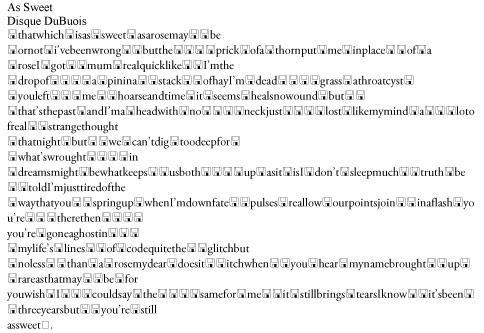
Doubts of Love
Matt Fagaly
You once expressed your doubts of love,
How its gambled wealth is spent by day,
And bid by night in lofty murmurings,
How it strangles passion in solemn regret,
And wraps with foam the wounded healers.
Never again will drops be sown,
By threaded needle without reprise,
Its tip or point dulled from neglectful scorn,
Lost, carried off into foaming clouds and those
Dreams, sunken, yet within pale grasp,
Will become the firmest truth for
Your hopeless bemusement, phantasmal
Wanderings and unutterable pangs
That ensnares your vision and, loitering, you
Stood as the whole of heaven poured down
Its grieving weight so heavily
Drenched on your form outstretched and composed,
For you have seen this many times before:
The division of one into two, fingers
Bracing your cheek for the howling storm.
You once expressed that you believed,
In patient misery to complete the
Fold, but now those benches you frequented
Deny companions, deny bodies pressed in
Fervent abandon untouched by fear.
And yet, once again, you strive to
Obtain quivering hands thirsty and
Meek, to swallow that garden of thorns &
Flood parched lips knowing your scarred remnants will
Vomit the gold that carried you through.
You once expressed your doubts of love,
And now all the shapes and colors feign
Once more their beauty, & feign a modest
Glance, and you see those years and months repeat, but
What does it matter,
How will it weaken:
A face of curling wrinkles,
Of bruised sockets.
No, scathing truths retreat in shame
When hearts are full
And bathe in the day.
Cut and Paste
Kate Galloway
boys like the girls
hot off the presses
ink-woven shirts
and laminate dresses
hair smelling like the
folds of a magazine
designers waging war
closet like a battle scene
blueprints of curves
slogans in the tan lines
living solely on Altoids
and artificial sunshine
calculated wrinkles
but only on the clothes
rips with coordinates
disheveled just so
instant hair removal
for a smoother touch
how does a girl
compete with an airbrush?
Curried Lion with Crab Sauce
Thea Gargas
The muse,
it whispers to me,
gently.
Okay,
not so gently.
It shakes me.
It grabs me by my ankles
and whips me around.
Just to make sure I am listening.
Sometimes I pretend that I am deaf.
But only when my brain
is already too scrambled,
and my heart too tangled.
But it is persistent,
almost to a fault.
I snap back to attention.
Adding some of this,
a little bit of that,
a lot more of this.
Mix,
simmer,
mix again.
Sprinkle with unwanted feelings.
Serve with a side of misplaced passion.
My curried life,
in ink,
on paper,
on a plate.
Here in the Light
Amber Giusti
This girl sits in grass that glows fire under the sun, the contours of every blade at once made stark and hazy by the mere intensity with which they hold the light. There is an orchestra of movement swirling around her still form. Little fuzz microbabies swing through the air between the shadows of elegant, peeling eucalyptus trees whose curving branches sway and whose long leaves stutter in the slow, heavy wind.
Her big, soft hair hangs in wild curls about her slim frame. She is hunched, frozen, watching outstretched hands with deep, eager eyes. Hot, thick blood pours from two gleaming holes that gape back at her from the center of each palm. The constant flow of the blood, her blood, so dark in the huge sunlight against her pale pink skin, reflects a flickering pattern of light that arches gently with every other beat of her heart.
The beauty of this reflected light is dazzling. With wet mouth slightly open, she leans forward and sees that, within this brightness, every single color of the spectrum sits, quietly exploding.
Pale Raven
Monty Hall
in this place you’re foolish to complain
while the deserving fly down the streets
as if the world will never change
those who have no right to leave us
forget creations they left behind
those who have no meaning to need us
built up the woods they left to find
now that the taste of love is strange
you gave my struggle a name
we’re born with truth and reconciliation
and it doesn’t fade, it hasn’t changed
gone, like scarlet in a monastery
like the other side of the pallid eye
gone, like all it ever meant
was to simply wash away and die
august delirium in a raven meadow
autumn tries your potency, one infinity
with infinitely many steps to one power
if it feeds a need, it will bleed the seed.
fell at the movements of hands that we couldn’t see.
saved one.
gone like autumn.
brought down the lights
so you could live so careless
and so fucking free.
stride down the street with pride,
it’s all gone, and you’re someone else’s foolish pride.
what am i to say to all of our demons, tonight...
Handful of Stars
Jolie Harsch
I
held
a hand-
full of stars,
a palm of live wires,
glowing red like an x-ray
tiny fragments of light building energy
nudging, crevasses between fingers, particles free
and
race
into
the night sky,
shooting in reverse
to original position,
taking wishes of the night from lovers’ lips,
casting them back to a time before they fell in love.
The City
Derek Illian
We sat in your mud caked Isuzu
with rust on the paint
and spots on the seats;
burning a blunt
and gazing at the glinting skyline.
Rain hammering a beat on the roof
we talked about the new mayor
and all of his wasteful projects;
just trying to bring more goddamn tourists to our crowded metropolis.
I leaned the seat back and relaxed
as we began to scheme a plan
which would let us come up on some 40’s.
As the flame on the tip started to die
you ashed the roach
put the car in drive,
and pulled out of the worn lot
we called ganja point.
With the whole night ahead of us
we ventured towards the bay bridge
to see what we could do about those 40’s.
Listening comprehension and written production exercise in the course Italian 201 (Third course in Italian) Palomar College, Spring 2010. (4/12/2010)
Didactical adaptation of the poem
Valore by Erri de Luca.
English Translation
I see value in friendship in a world that adores the impersonal cult.
I see value in freely giving compassion in a world that rations tears.
I see value in the freedom to love someone in a world that wants to limit who we can love.
I see value in the faithful friend who is there in the shadows as in the light, and in the love of your parents until they are very old. In a husband who loves you with a true and complete heart, I see value in a nice, pleasant and stupendous teacher.
I see value in a voyage with the woman I love, in the sun shining on our faces, in a glass of wine at the end of a good day.
I see value in my alone time, at work and then at play, to rest and to wake up another day as to remember and to forget…
I see value in being quiet and to dream a marvelous life.
I see value in Jesus Christ who has given us life and the opportunity to go to Heaven.
I see value in family and friends, what you give and your own life.
I see value in being here now with my friends and my family and finding fun in little things.
I see value in the weather in San Diego and in my coffee every morning.
I see value in a moment of effort.
I see value in true friends and in never offending anyone; in respecting everyone in the same way.
I see value in the freedom that allows me to think, do and be what I want to be.
I see value in simple things, in spending time in the nature, close to the water, trees and animals and in learning new cultures.
I see value in learning when learning is not a possibility for everyone.
I see value in every shining smile that sparkles on a summer day.
I see value in the love of my husband, in the friendship of my friends, in the loyalty of my dog, in the sun on my face, in the wind in my hair, and in the snow on my tongue, in tall mountains, deep oceans and vast prairies.
I see value in the laughter that provokes unexpected smiles, in the fire that warms up the heart of my home.
I see value in my family, in my husband, in my life in this world every morning when I get up, in my faith in my God and in never taking my eyes off my final day.
I see value in pleasant people with smiling faces and in my beautiful family.
I see value in the ability to survive, in resilience, in the bond with one’s own land.
I see value in chance, through which we have met, that has bonded us, giving birth to sincere friendships. This value, we (in the class), have known.
La classe di Italiano 201 Palomar College Spring 2010
Tamara Thibodeau, Claire Doubleday, Irene Howe
Annamaria Petrov, Andy Luciani, Heriberto Magana
Mason Turvey, Joe Mazzola, James Busacca,
Nick Signorino, Steve Haerr, Denise Haerr
Warren Dicianni, Alexandra Ancich, Sandra Flores
Tim Trevakis, Amanda McCauley, Marina Laneri Schroeder
Italian version
Esercizio di comprensione auditiva e produzione scritta nella classe Italian 201 Palomar College, Spring 2010. (4/12/2010)
Considero valore l’amicizia in un mondo che adora il culto impersonale.
Considero valore dare compassione liberamente in un mondo che raziona le lacrime.
Considero valore la liberta’ di amare qualcuno in un mondo che vuole restringere chi possiamo amare.
Considero valore l’amica fedele che c’è nell’ombra e nel sole e l’amore dei tuoi genitori fino a che sono molto vecchi, il marito che ti ama con un cuore vero, completo, una professoressa simpatica, gentile e stupenda.
Considero valore un viaggio con la donna che amo, il sole sulle nostre facce, un bicchiere di vino alla fine di una buona giornata.
Considero valore il tempo che passo da solo, al lavoro e poi a giocare, per riposare e per poi risvegliarmi un altro giorno, a ricordare e a dimenticare.
Considero valore stare zitto e sognare una vita bellissima.
Considero valore Gesu’ Cristo che ci ha dato la vita e l’opportunita’ di andare in Paradiso.
Considero valore la famigilia e i miei amici, quello che dai e la propria vita.
Considero valore essere qui adesso con i miei amici e la mia famiglia ed il divertimento nelle piccole cose.
Considero valore il tempo di San Diego ed il mio caffè ogni mattina.
Considero valore un momento di sforzo.
Considero valore i veri amici, e non offendere mai nessuno; rispettare dal piu’piccolo al piu’ grande, alla stessa maniera.
Considero valore la liberta’che mi permette di pensare, fare ed essere cio’ che voglio.
Considero valore le cose semplici, passare tempo nella natura vicino all’acqua, agli alberi, agli animali e imparare nuove culture.
Considero valore imparare quando per altri non e’ una possibilita’.
Considero valore ogni sorriso luminoso che luccica in un giorno d’estate.
Considero valore l’amore di mio marito, l’amicizia dei miei amici e la fedelta’del mio cane; il sole sulla faccia, il vento nei capelli e la neve sulla lingua; le montagne alte, gli oceani profondi e i campi vasti.
Considero valore la risata che provoca sorrisi a verificarsi; il fuoco che riscalda il cuore della mia casa.
Considero valore la mia famiglia, mio marito, la mia vita in questo mondo ogn mattina quando mi alzo; la mia fede nel mio Dio e non staccare gli occhi dal mio giorno finale.
Considero valore le persone simpatiche con facce sorridenti e la mia bella famiglia.
Considero valore la capacità di sopravvivenza, la resilienza, l’attaccamento alla propria terra.
Considero valore il caso, che ci ha fatto incontrare, che ci ha uniti, dando vita ad amicizie sincere, da coltivare. Questo valore, noi della classe, lo abbiamo conosciuto.
La classe di Italiano 201 Palomar College Spring 2010
Tamara Thibodeau, Claire Doubleday, Irene Howe
Annamaria Petrov, Andy Luciani, Heriberto Magana
Mason Turvey, Joe Mazzola, James Busacca,
Nick Signorino, Steve Haerr, Denise Haerr
Warren Dicianni, Alexandra Ancich, Sandra Flores
Tim Trevakis, Amanda McCauley, Marina Laneri Schroeder
Watcher
Joshua Jackson
Four forty-five.
Listening to the constant beat of music
Pulsing through my headphones
I sit and watch.
With only a bottle of soda
as my companion.
The cloudy sky
Tinged with irrepressible blue
Drifts by.
I see my unknown friends talking
Laughing about the party
That I wasn’t invited to
Or were they gossiping about Sue and Joe?
Could have been about the Super Bowl
Debating who should win.
Wish they’d ask me.
A woman
Blue fleeced jacket and jeans,
Walks by
Talking on her cell phone.
She might be talking to her husband
About what dinner should be tonight.
My stomach gurgles from hunger
As I take my last sip of soda.
With the taste of Cola
Swishing around my tongue
Hinting of cherries
I sit and watch
As the bubbles burn
Remember the Miss
Ryan Kerr
Everyday old memories fade
And new ones are harder to come by when you’re sad
Clothes pile up and the bed is rarely empty
Because of these old memories
I still smile and laugh and bullshit
But I go home to dirty dishes, half smoked cigarettes
And loose women that are below my standards
All trying to replace these old memories
Sitting on stools in dark corners
I think about the roses
Watching petals wilt away
Using whiskey instead of water
It’s all been said and done
And nothing is, anymore
And all of these new memories
Just remind me of the old ones
So Said She
Simon Jason King
Softly spoke She,
Sounded sincere
Saying someday
Somewhere
Somehow
She’d
Sing
Sounding serene she sings.
Surrounded, somehow silhouetted, she speaks
Somewhat softly
She’s saying, stop
Save She
Save
Me
Douglas County
Jason Klingerman
Once again, a patch of land is stamped
with red dye: ACCESS GRANTED,
permitting deep pockets to feast
on this land, ancient and royal.
A king presides over a dying kingdom:
the Rocky Mountains his throne,
Pike’s Peak his crown,
decked in the purest essence of ordinary brilliance,
with jewel encrusted robes
of jade, lime, tan, basil, burgundy;
adorned with lakes and mountains,
ravines overgrown with thickets of pinon,
willow, wild rose, chokecherry, juniper scrub;
and, woven in the threads, sylvan designs
of ponderosa pine, spruce, and fir.
All burns in man’s ash-tray.
Sections are cleared, cleansed and purged,
then paved.
The wound crawls with maggots--
homeless bobcats and imperious cement trucks.
Earth folds over earth, pressed,
splattered with asphalt and concrete,
then steam-rolled to perfection.
Floodplain
Larry Narron
Driving nowhere in particular the marrow perimeter
swings lopsided planets like a waltz, a cold ellipse
that will inevitably wobble me home. Here in the
night of rain where roads refuse to believe in cul-de-sacs,
the darkness wrestles the low-beams that slowly unravel
oblivion. This station wagon is a star that dims
chasing the end of a universe that keeps expanding.
Cars pass me by in the dark like unvisited relatives.
I think about their nagging deaths and it occurs to me
that we are no longer children. You have held me
under water for nearly a decade. From below I’ve
watched your face while drowning glide across the
surface like an oil spill. Tell me how something
that smothers the sun can fill me with a million
rainbows. I’ll promise to start censoring my heart.
Some of the roads have been closed indefinitely.
Whatever happens, at least we’ve got eyelids
like windshield wipers to brush away the rain.
We can take comfort in the firm belief that
windshield wipers are made in Japan, come
with a warranty, last long if properly maintained.
These so-called bends are so straightened it could just
be the curvature of the Earth deceiving my warped sense
of depth perception yet again. I will hug the shoulder
of the road like it belongs to you. On the radio the
music flees the storm for somewhere people listen.
Drifting on cruise control, I keep the dial tuned
between stations, eavesdropping on static, hunt for
harmonies that ride the quiet frequencies of God.
At the Red
Casey Nelson
Waiting. Marley singin’
“Can’t run away from yourself.”
And you, on the corner,
coming from a night full of faceless men
wanting more than they’ve got to give.
And you, giving
because it’s more than you’ve got.
But when the green signals me to leave
I wonder who Bob’s singing to
and in the mirror I can see
you were never listening.
the task
ruth rice
it is warm in elsie’s room,
lace curtains patterning afternoon sun
we are in companionate quiet
me, elsie, coleen the caregiver,
and death, lounging amiably
in the chintz armchair.
we know why we are here today
old colleagues and sisters at the wheel.
coleen cracks her knuckles,
puts on a tape of hymns to play,
elsie clasps fast my hands
lips moving like leaves
of an offered wish, while
death hums a distracted tune,
biding the moment.
we are a still life of buttered light
ripening a final afternoon
with the rightness of our being
together in this room.
A Waking Dream
Syd Sebastian
As the light falls out of the sky
Translucent pearls begin to form upon the waves
Thundering in on darkened waters
Jewels too precious for any man to hold
The light is gone
The treasures slowly drop deep beneath the waves
Sleeping until the new dusk dawns
But a new dream begins to unfold
A carnival of false reflections plays just above the waters
Never reaching the onyx depths
If only the world appeared this way
But nothing is as it appears anyway
Suns too small to light a world’s way float along loitered paths
If only they truly did float
If only they did not need those steel poles to stand
Then maybe it could be a dream for all to share
But when you stand at the end
When the brilliant ruby colors have left the sky
And all that is left are those false reflections and suns
Dreams almost seem like reality
If only for an evening
If only for a minute
If only for an moment
What a waking dream that is to be treasured
in the memories of all
Sink
Sonni Simmons
An internal spiral
It spins down
A cold sink as the water drains
It turns from my throat
Down my chest and into my stomach
Like swallowing an ice cube
Too big to make it through
My heart disappears down the black hole
I want it back so I claw at the opening
A lost wedding ring and my fingers bleed
I’m tired, looking for lost car keys
I give up on the effort
It’s sick and I know this so well
Like an addict knows the pinch of a needle
But my mind nags not to stop
I want myself back.
No reflection in the mirror
As I wash my hands of the failed attempt
I watch my colors as they swirl
Twisted dancing around the porcelain
Tiny blue orbs and ribbons of red
They are swallowed by the opening
Never to be seen again
Drowning self inflicted promises
I take a drink and reach in for one last try
My fingers graze a piece
One staggering step forward
A promise of my heart’s remains
A warm hand on my shoulder
The rushing water stops for now
A 5x7 of my favorite moment
Taped to the back of my mind
This is something to remember
I roll down my sleeves
And instead of waiting around
For the drain to spit me out
Coughing out its food after it’s chewed
One day I will have the control
One day I will have the strength
To catch myself before I fall.
Pillow Talking
Bonnie Trang
Every morning I used to watch her sleeping next to me;
I couldn’t help it.
That was when she was most beautiful.
Everything about her was soft—
Her skin, her breath, her scent, her hair—her beautiful hair.
Those loose honey-brown strands would hide her face,
And I always wanted to tuck them behind her ear
To let the morning light bounce off her cheek,
But no, I couldn’t disturb my slumbering goddess.
Her delicate figure would curl up against me,
Enveloping me in her scent.
I could lay there forever.
Sometimes she would pull me even closer to her.
That was the best.
I knew our relationship wouldn’t last,
But I never thought it would end so soon.
I long for her touch, her warm embrace—
The ones that can no longer happen.
I have been replaced because
I am not what I used to be.
Why would she want me now?
I am torn.
I am torn. I can’t help it. I am just a pillow.
Jack v. Jill
Cody Wick
Jack and Jill went up the hill
Wrapped in bandages and chains
As they stumbled toward the courthouse
While the bailiff held the reins.
The chaos that had happened
Left the villagers in dread
Of “the court case of the decade”
For two siblings at luck’s end.
The courthouse was made ready
Where the Queen of Hearts presides.
The jury had been gathered
But their fates, she would decide.
Jill made her way up to the stand
And swore on Mother Goose
That she was not the one at fault
And Jack should wear the noose.
She said that for the past three weeks
She worked as a volunteer
In the psychiatric ward
With her motives all sincere.
The work was dull and menial
As the courthouse could attest.
Sewing the emperor’s new robes
Should leave anyone depressed.
During the allotted time
When workers have their break,
Jack entered the establishment
At exactly twelve o’ eight.
Jack’s reputation had spread far
For his manner of cruel tricks.
The reigning champ at crying wolf
Was known to cause conflicts.
Jill said that “with an evil glare,
He slithered his way in
And picked the locks on all the cells
In the entire loony bin.”
The “patients” fled unhindered;
Each one causing great dismay,
For Puss in Boots had found a weapon
And the Mad Hatter snuck away.
Through the chaos Jill persisted
To repair all Jack had done,
Till’ Humpty fell upon her head
While she was dialing 911.
As she passed into unconsciousness,
Jack’s laughter filled her brain
Until the King’s Horses came marching in
And left him trampled in the lane.
After cross-examination
Her case did not seem fake,
For Humpty was still shattered
As was the damage in their wake.
All the room was in an uproar
As Jack approached the stand,
They could see the restraint it took him
To give the statement he had planned.
“I know it seems I’m guilty,
But Jill’s crimes are all far worse.
She was working not to help the lost,
Just to date the male nurse.”
“I was helping till the garden
Good intentioned by all means
Until my sister sabotaged my work
By planting magic beans.”
Within a fraction of a second,
Jill pounced at her brother’s face.
Both tumbled unencumbered
As they thrashed about the place.
The Queen had quite enough
And sentenced both outright
Soon Sleepy Hollow was filled in
With two coffins late that night.
The moral of the story is
That if you raise some hell,
And anger the Mad Queen of Hearts
You should bid your head farewell.
Re-Vision
Lori Yost
I used to write
A lot
Words flowing through pen
Onto page
That is all gone now
These words are a struggle
A curse
I see only flawed
Intentions
Critique and censure
Lead to silence
Revise, reedit, redraft
Repeat
Til there is nothing left
No soul
Just ink
Nothing tangible
Just thin paper
Easily wrinkled
Disposable like me
Revise, reedit, redraft
Repeat
Til simple existence
Gives way to
Perfection
That’s not me


